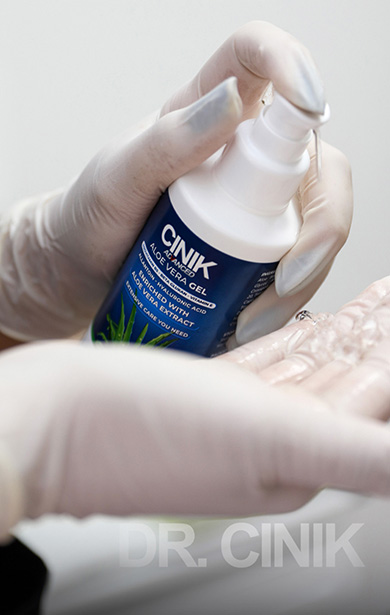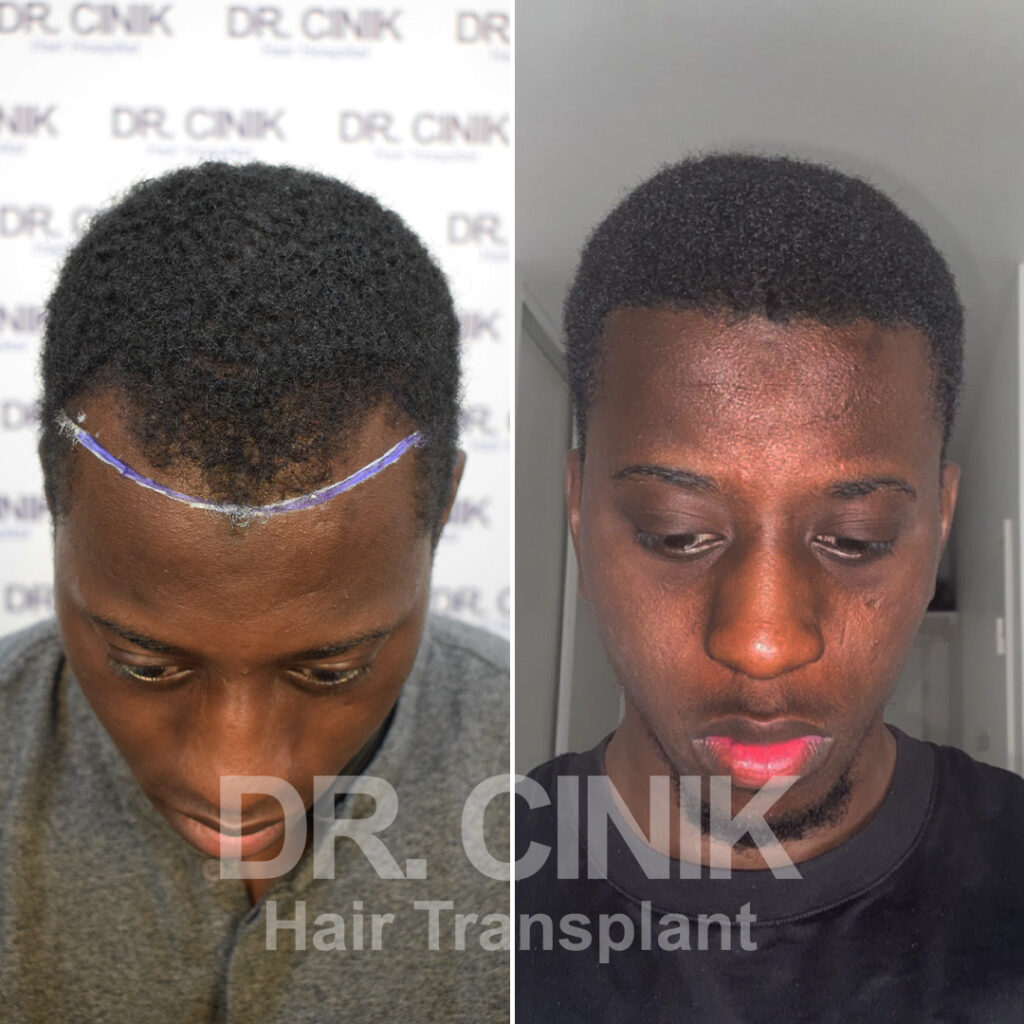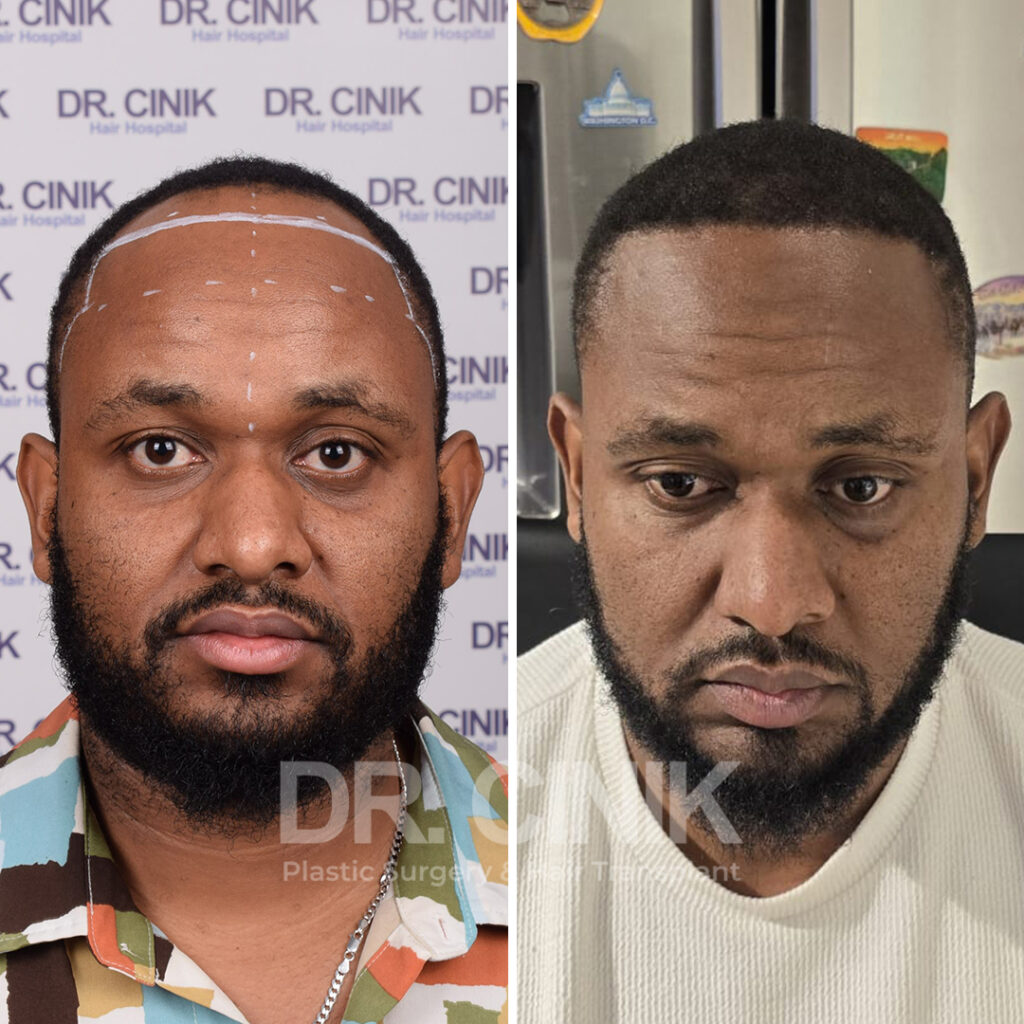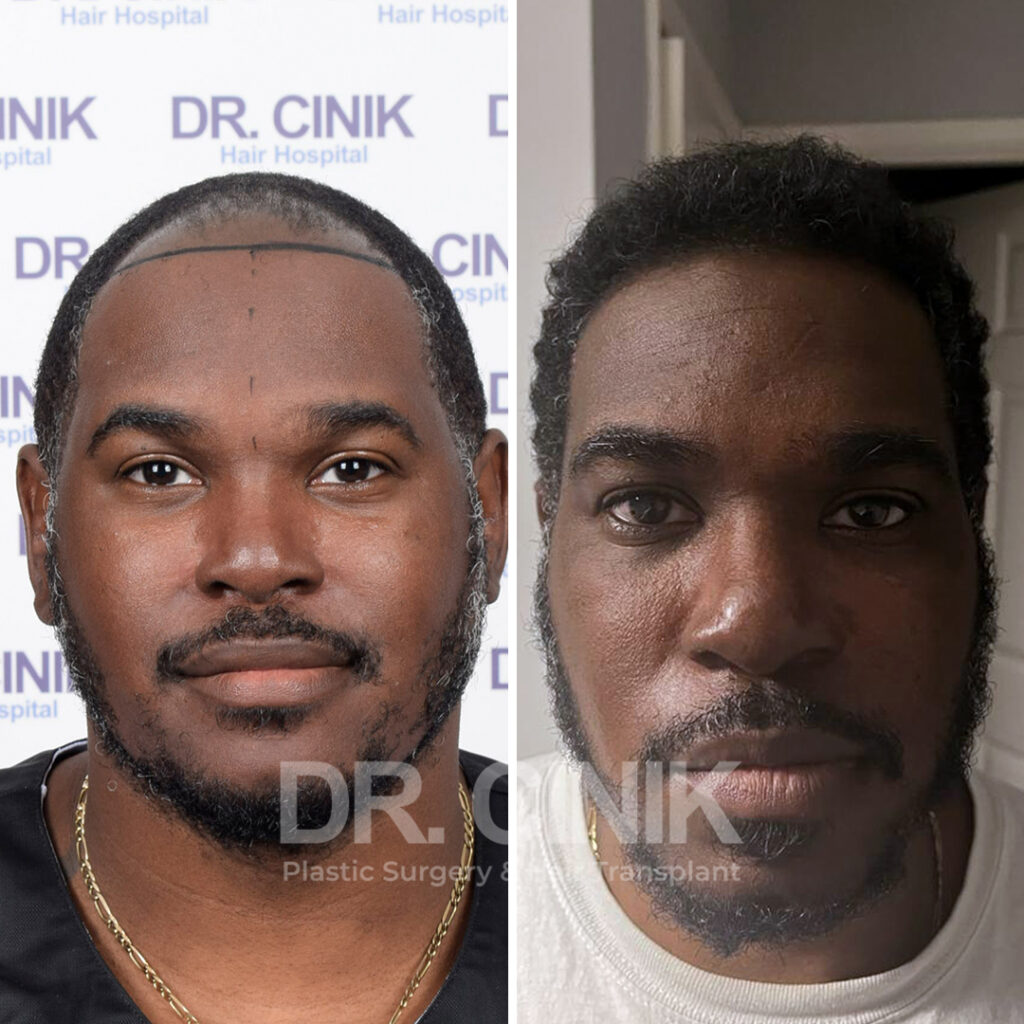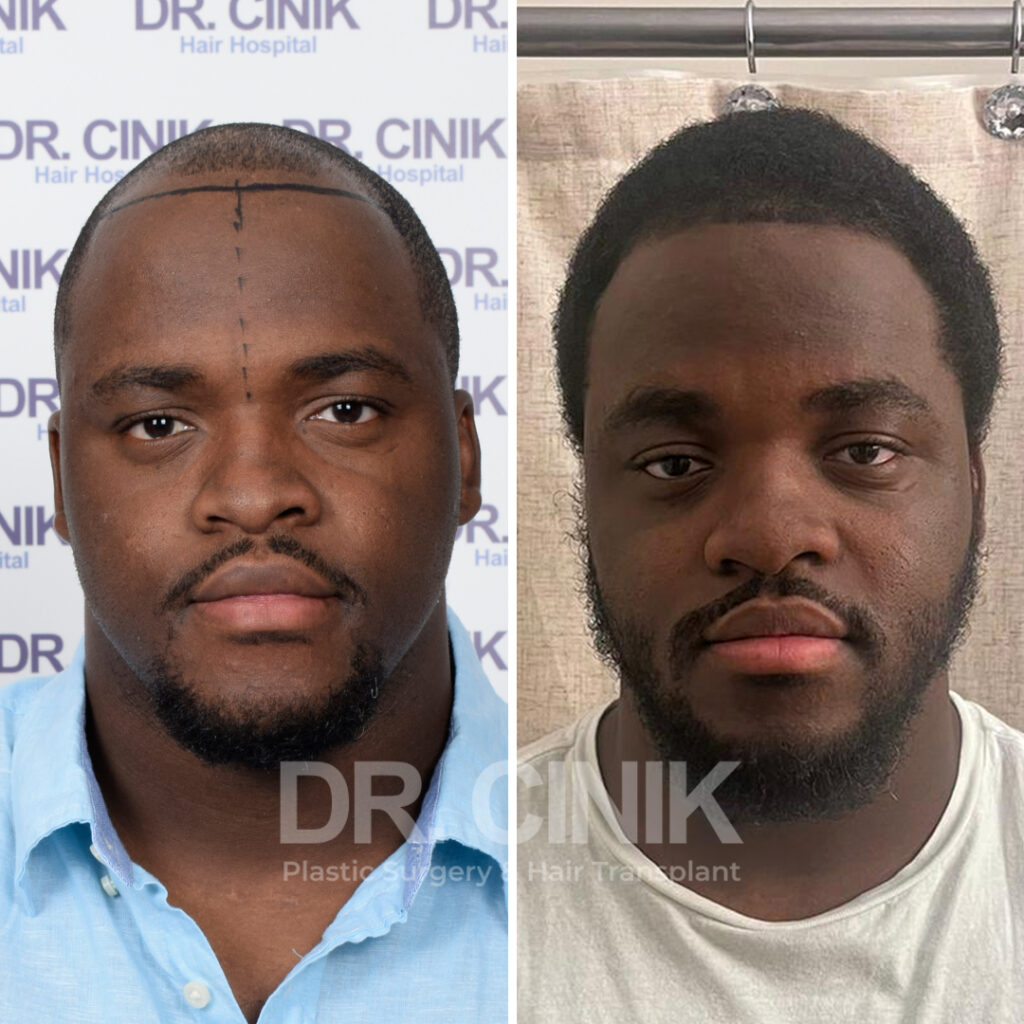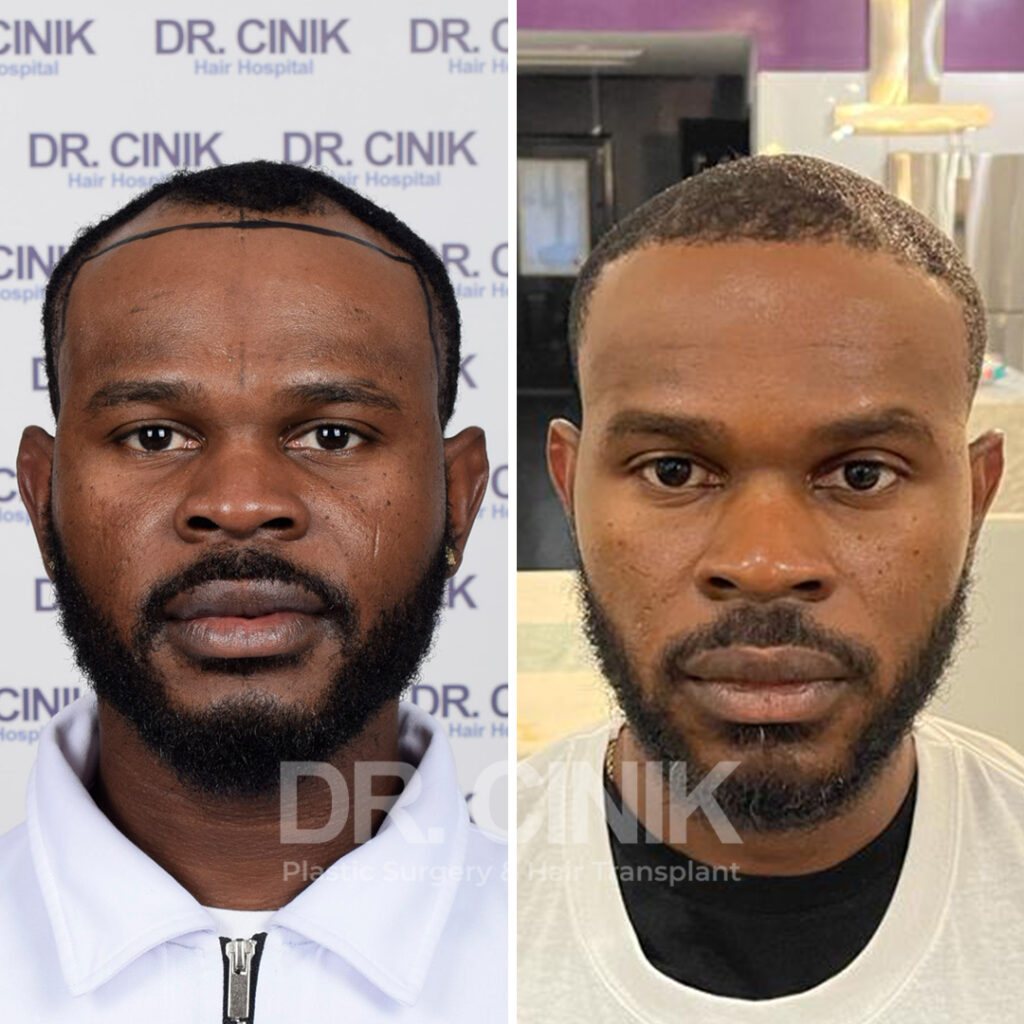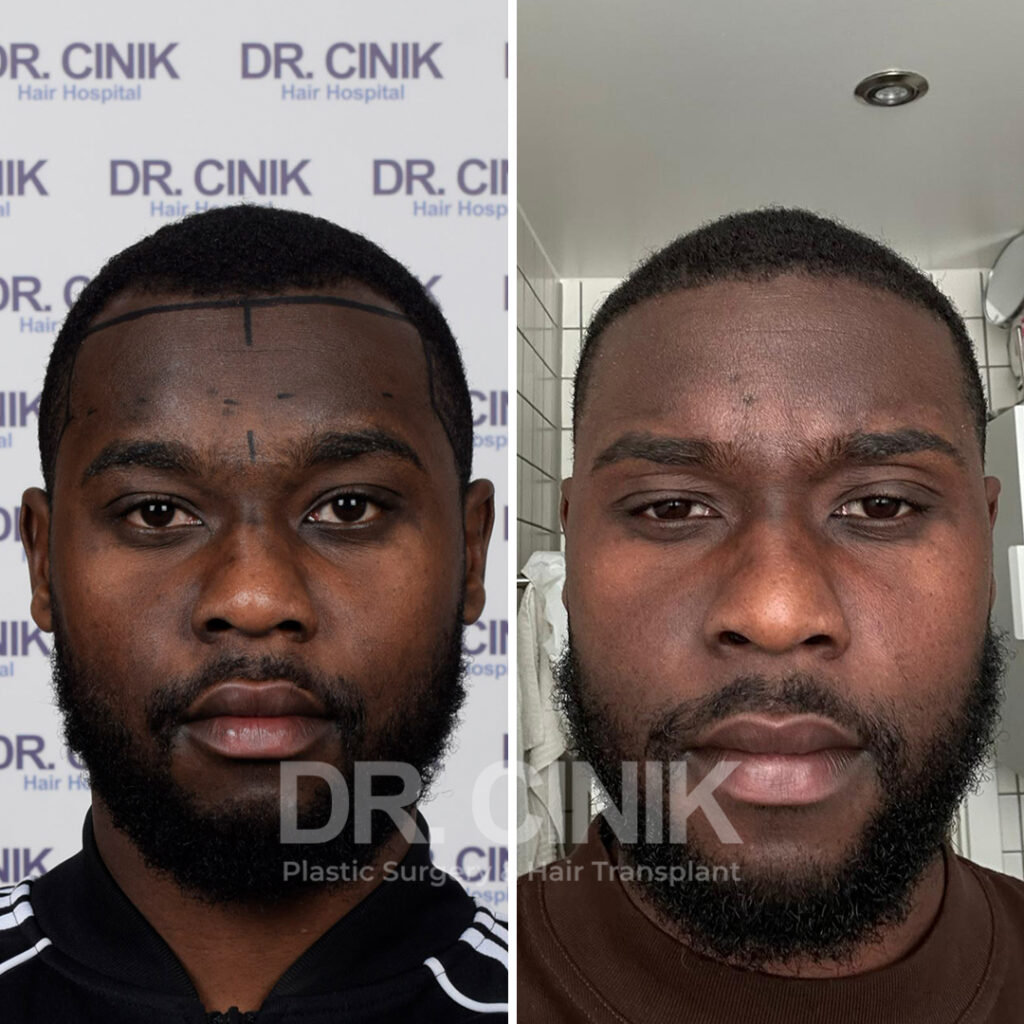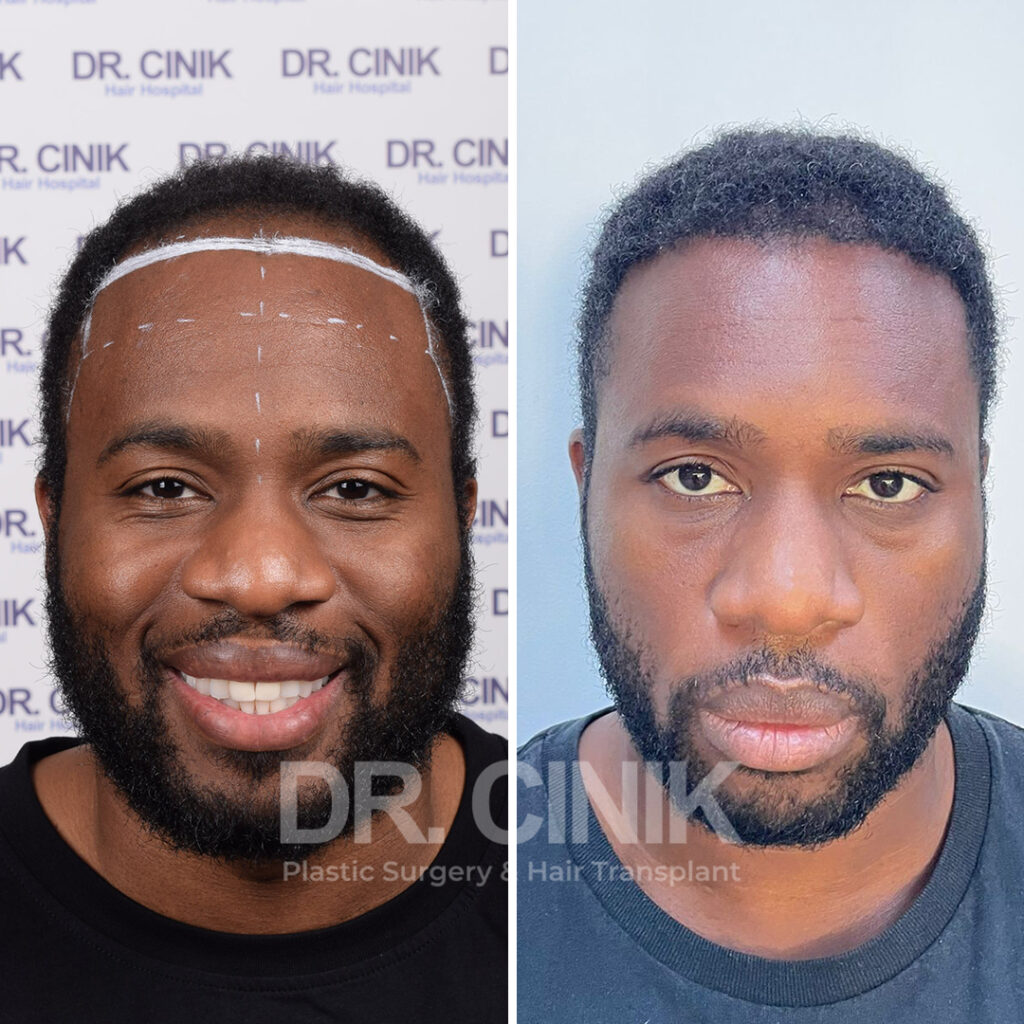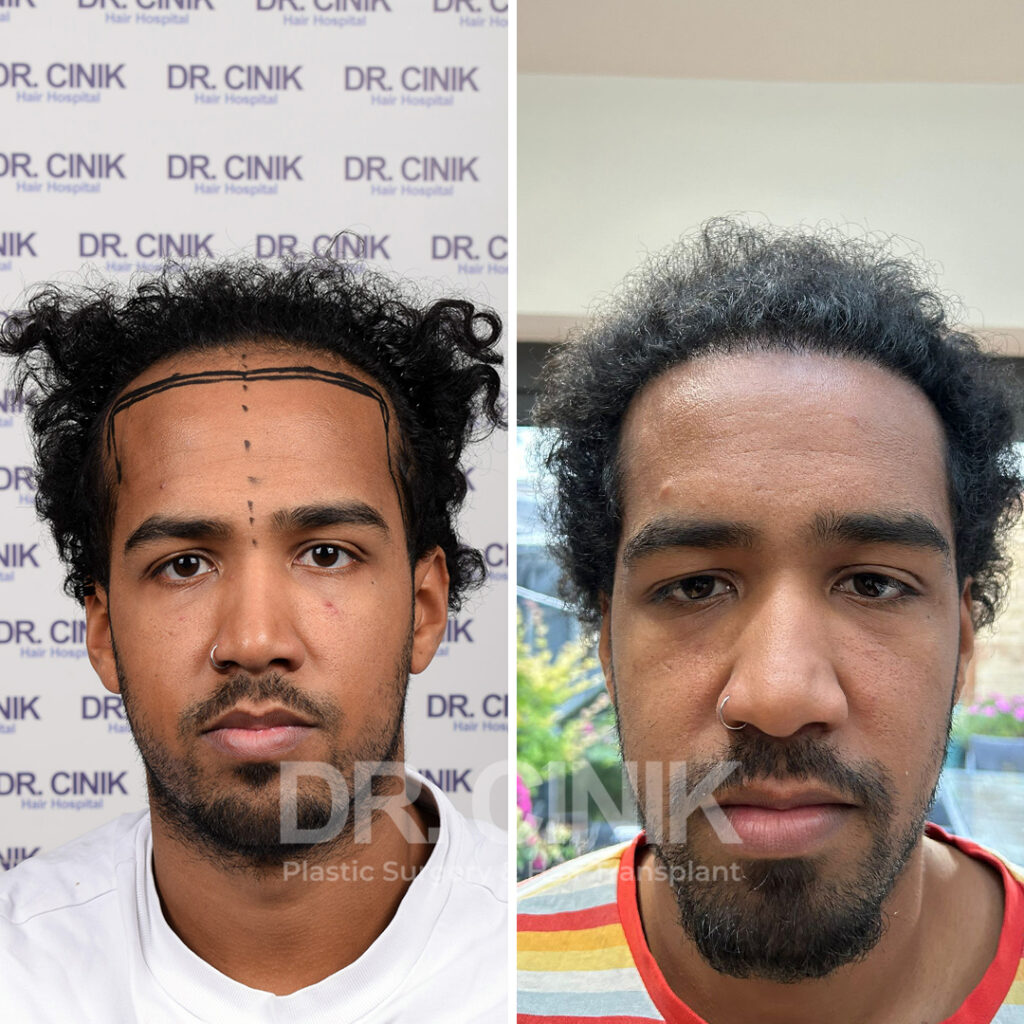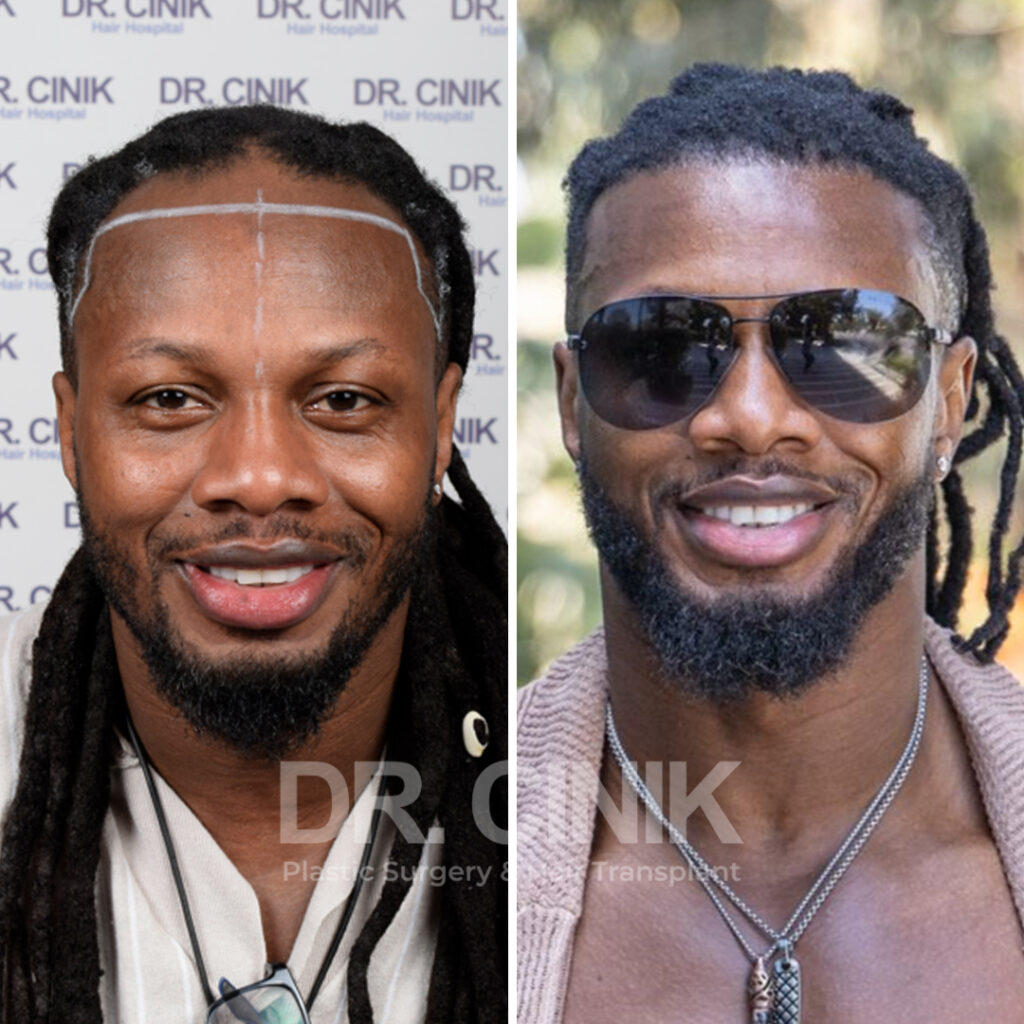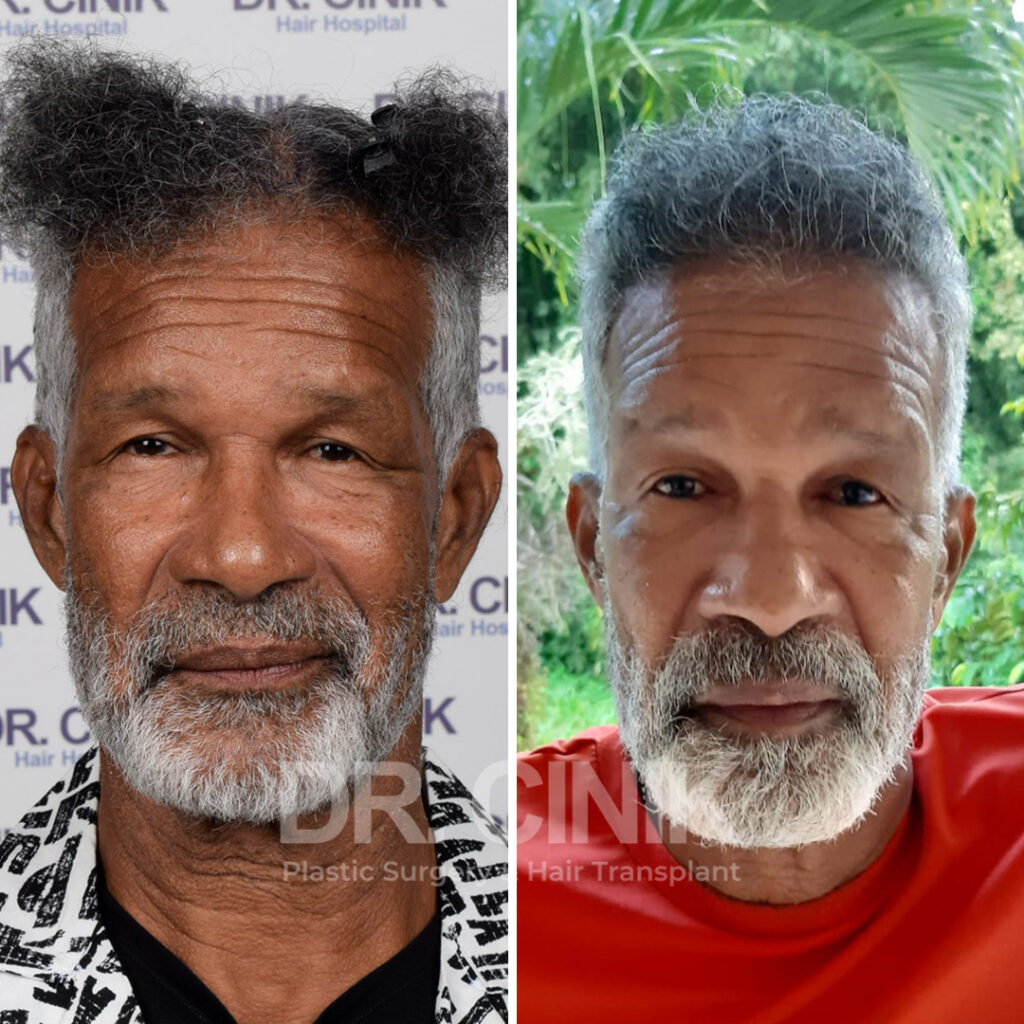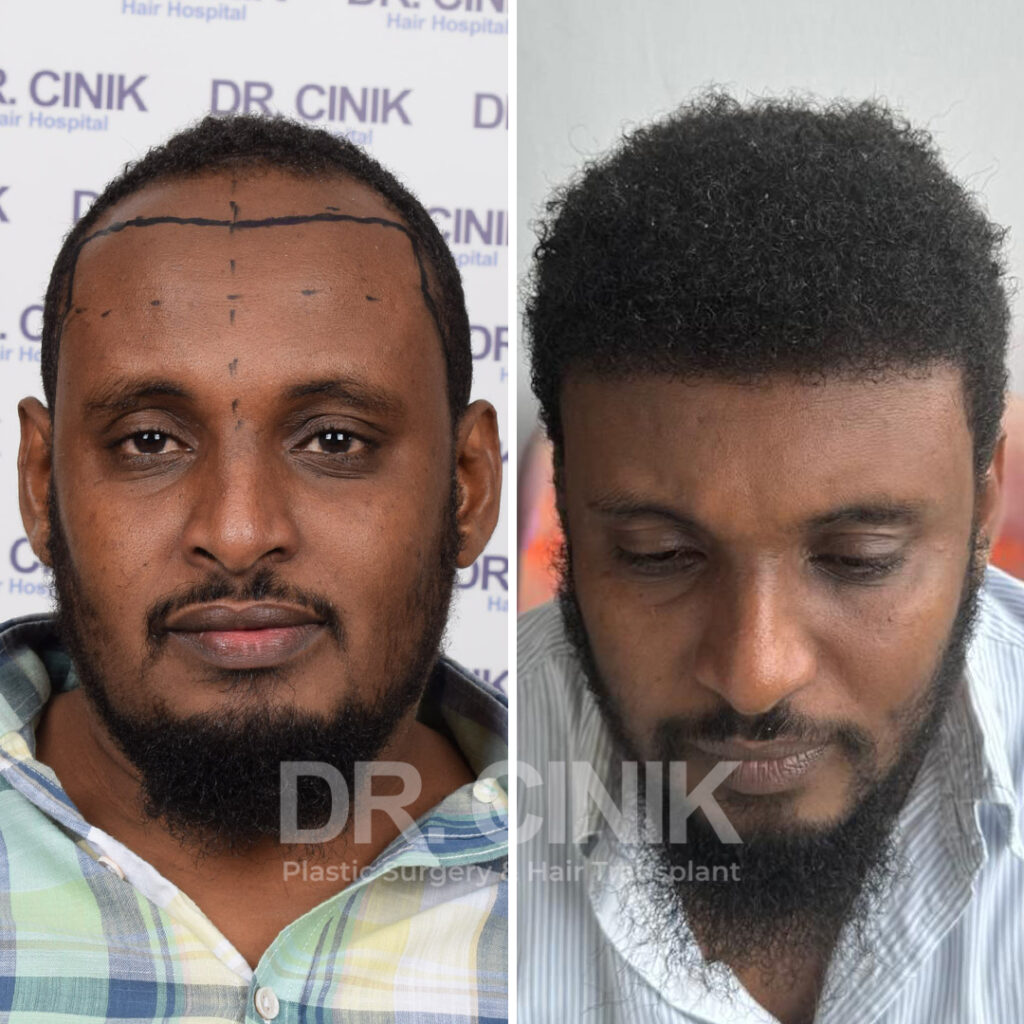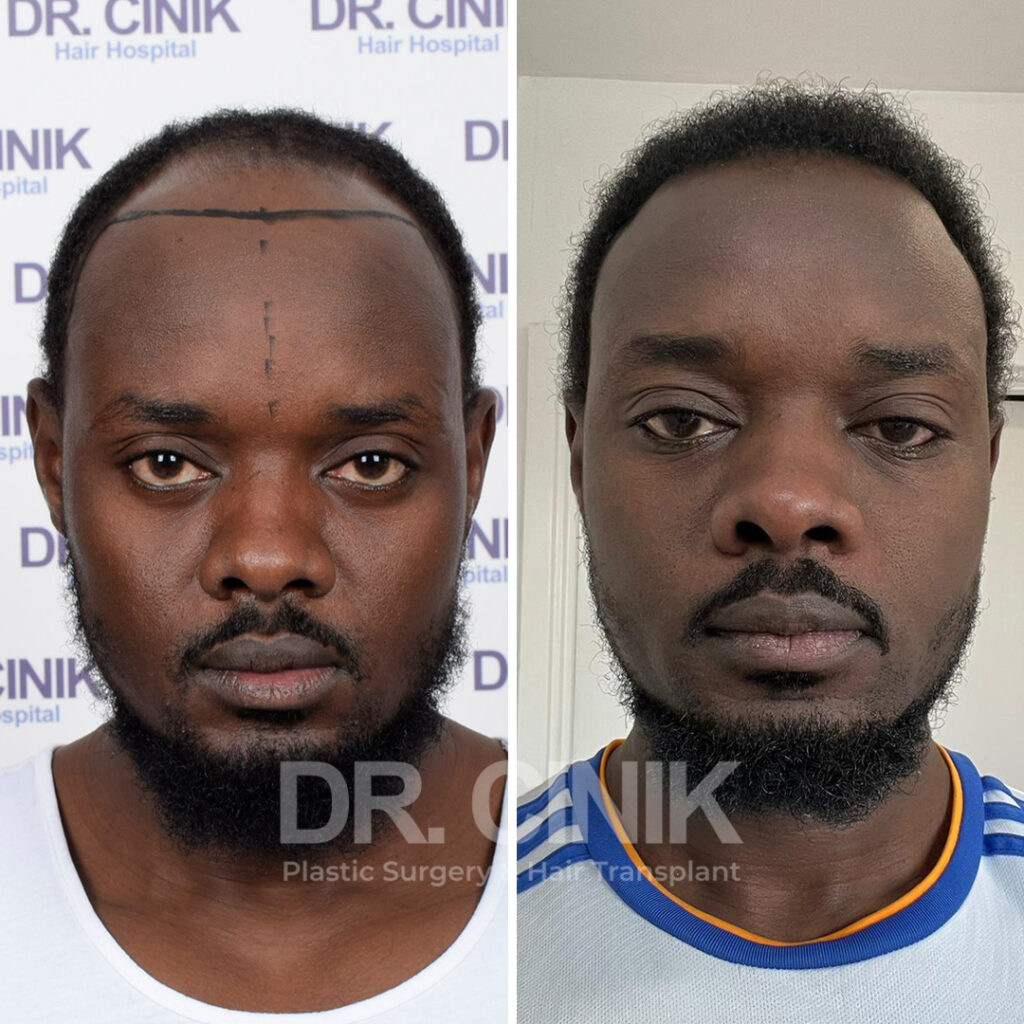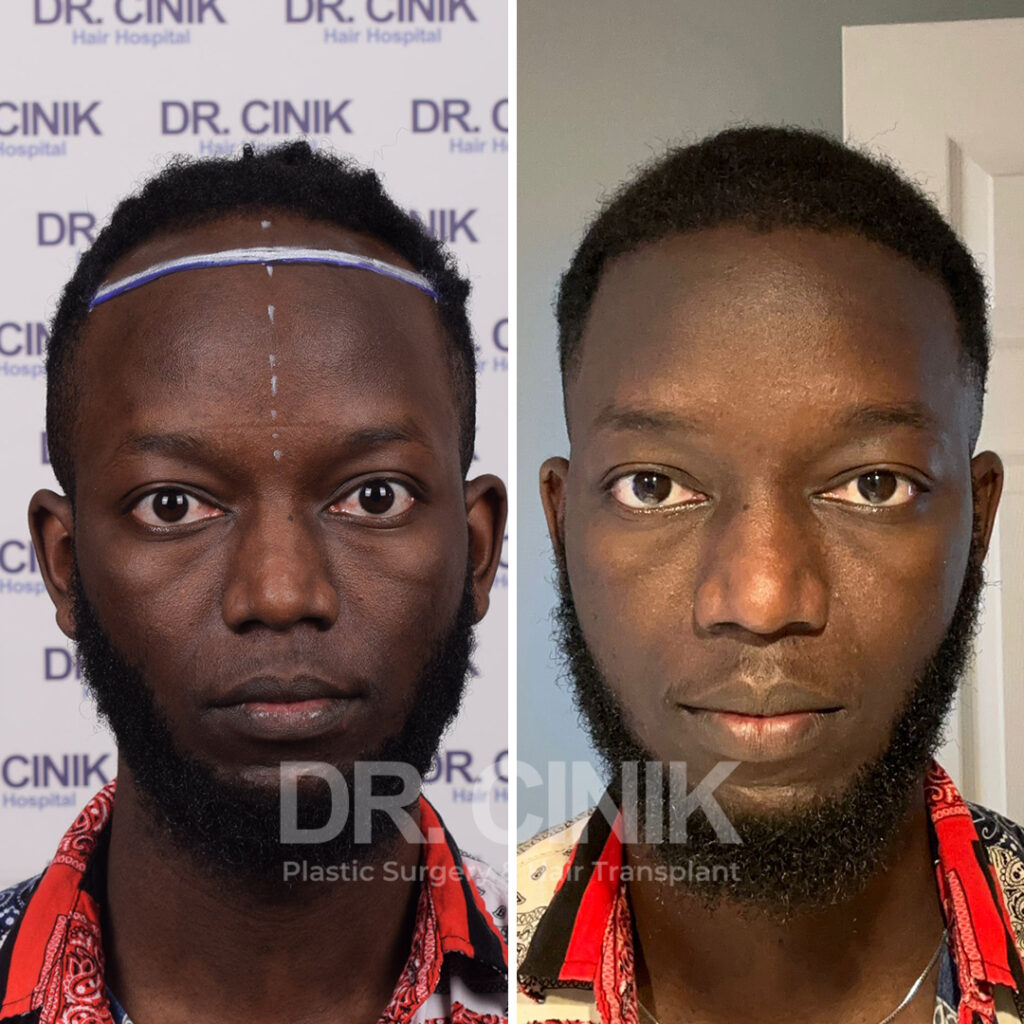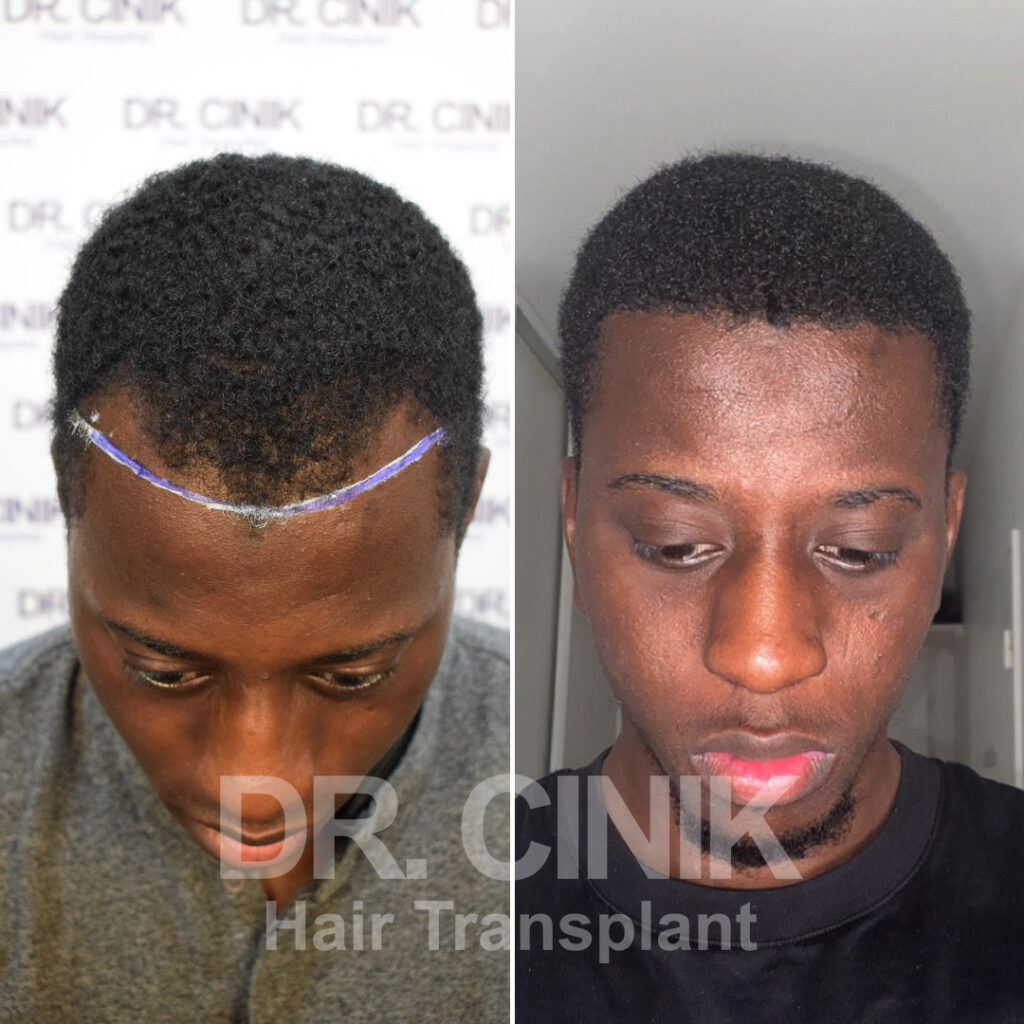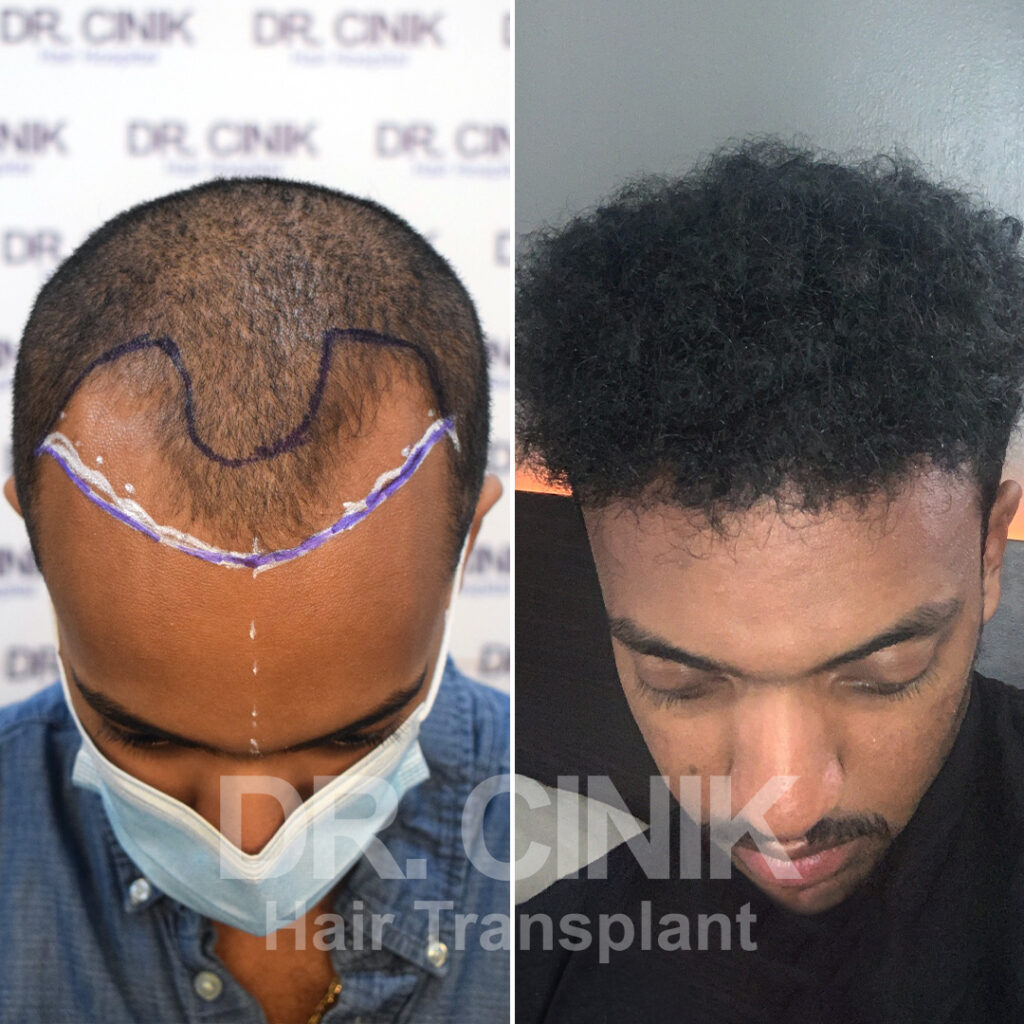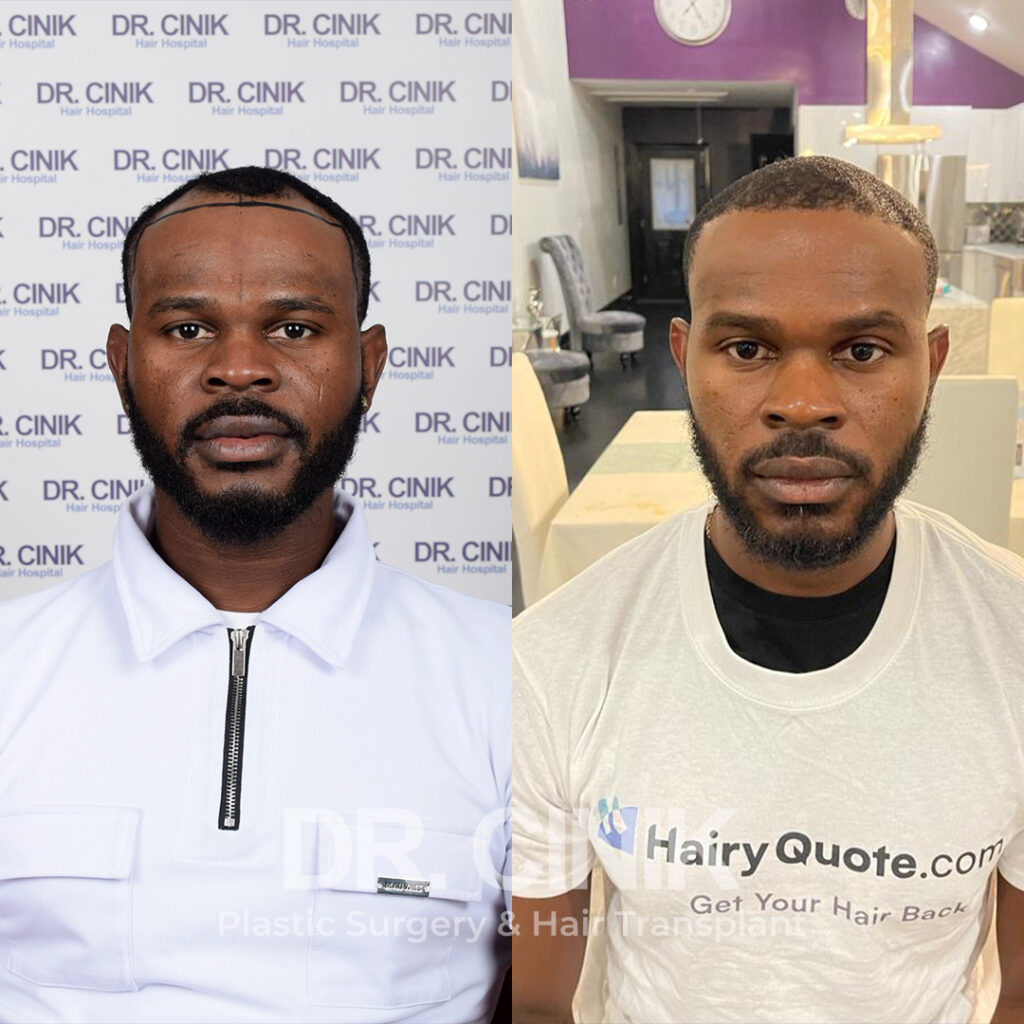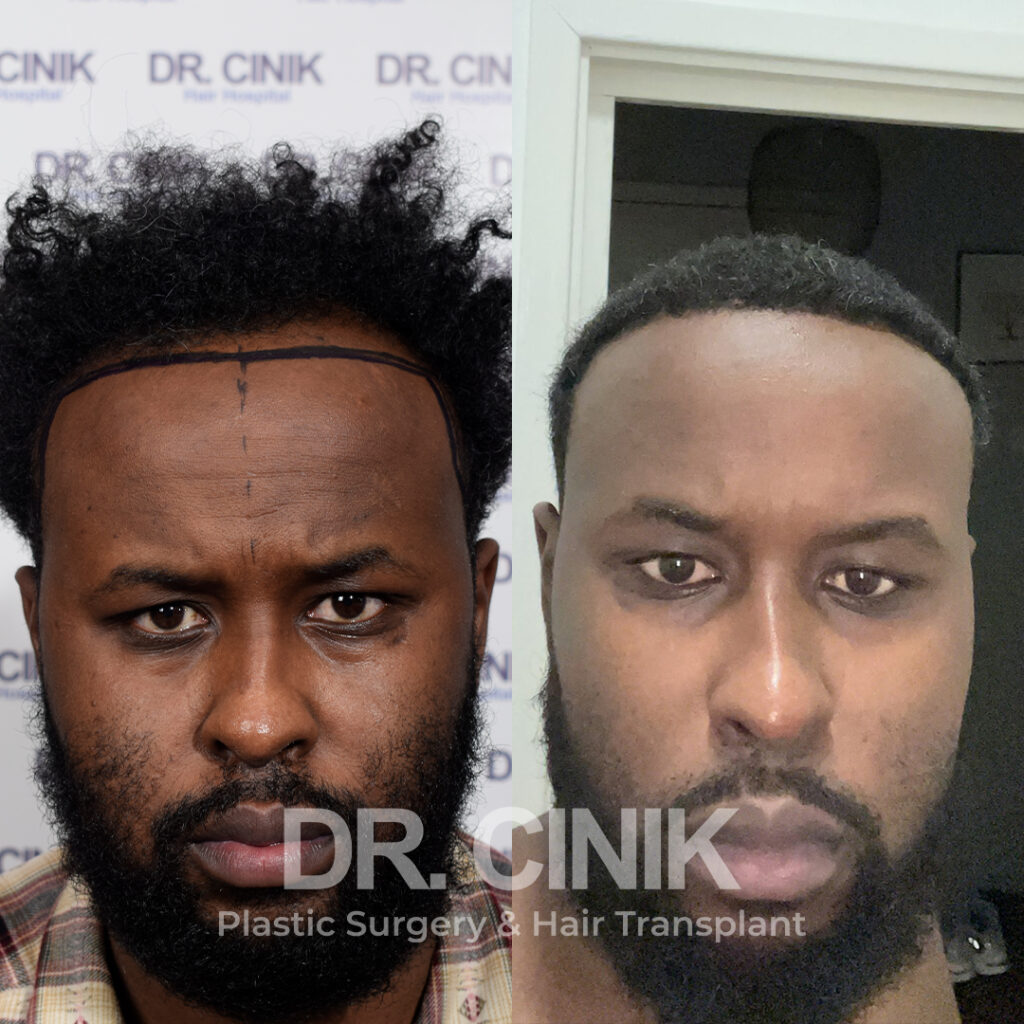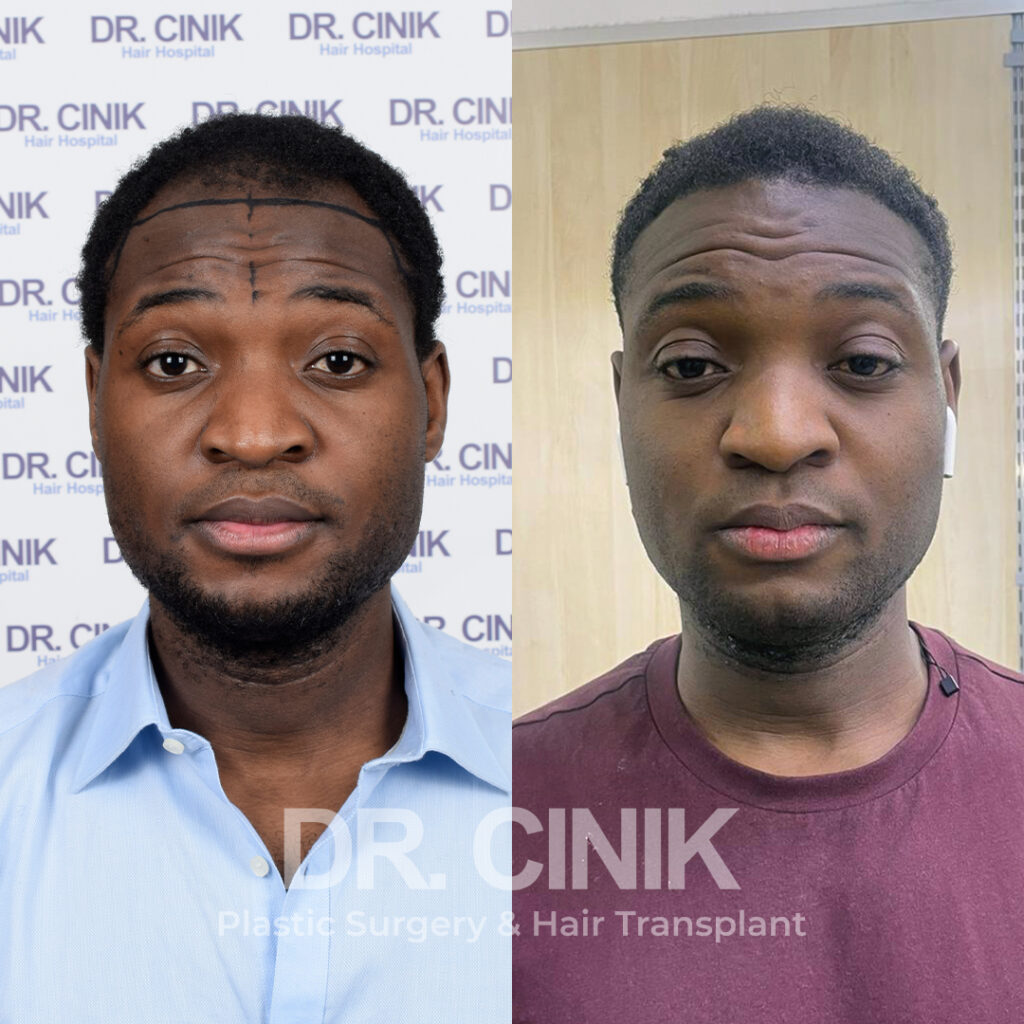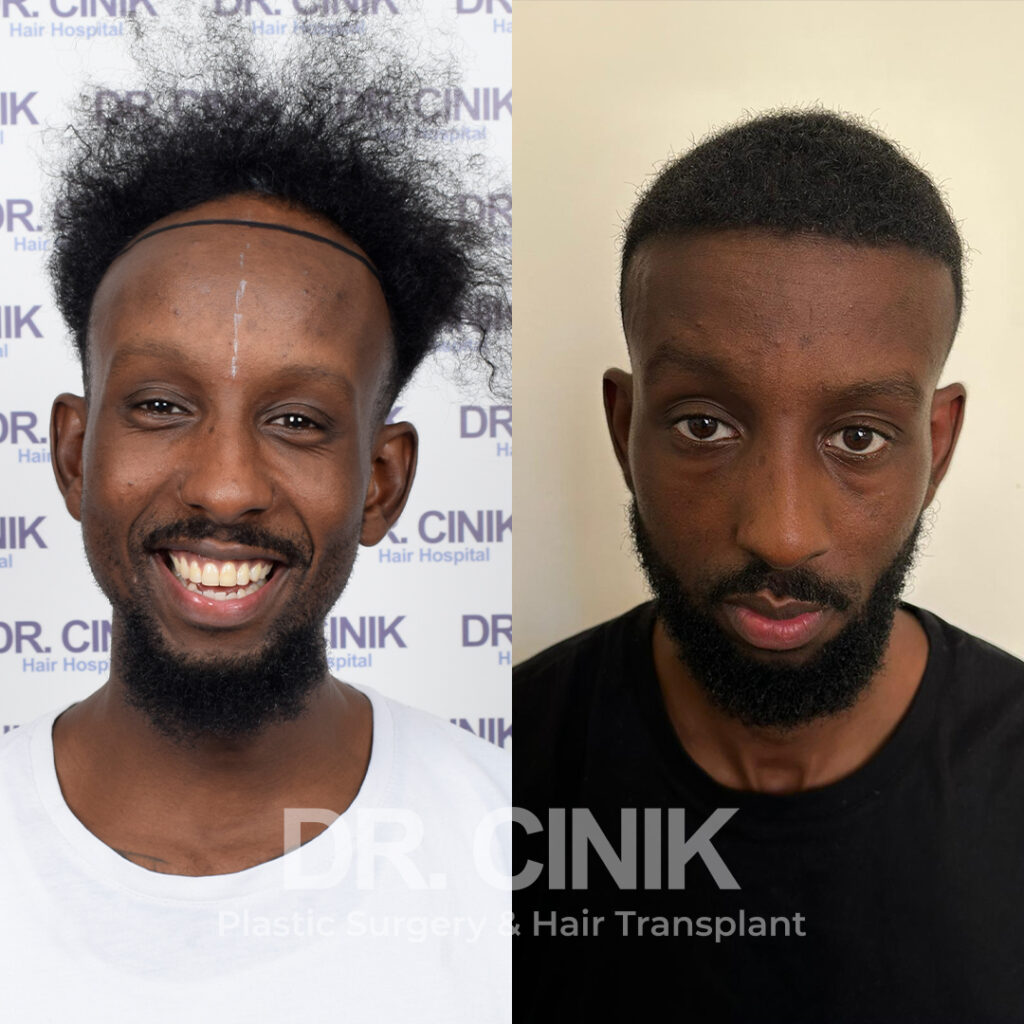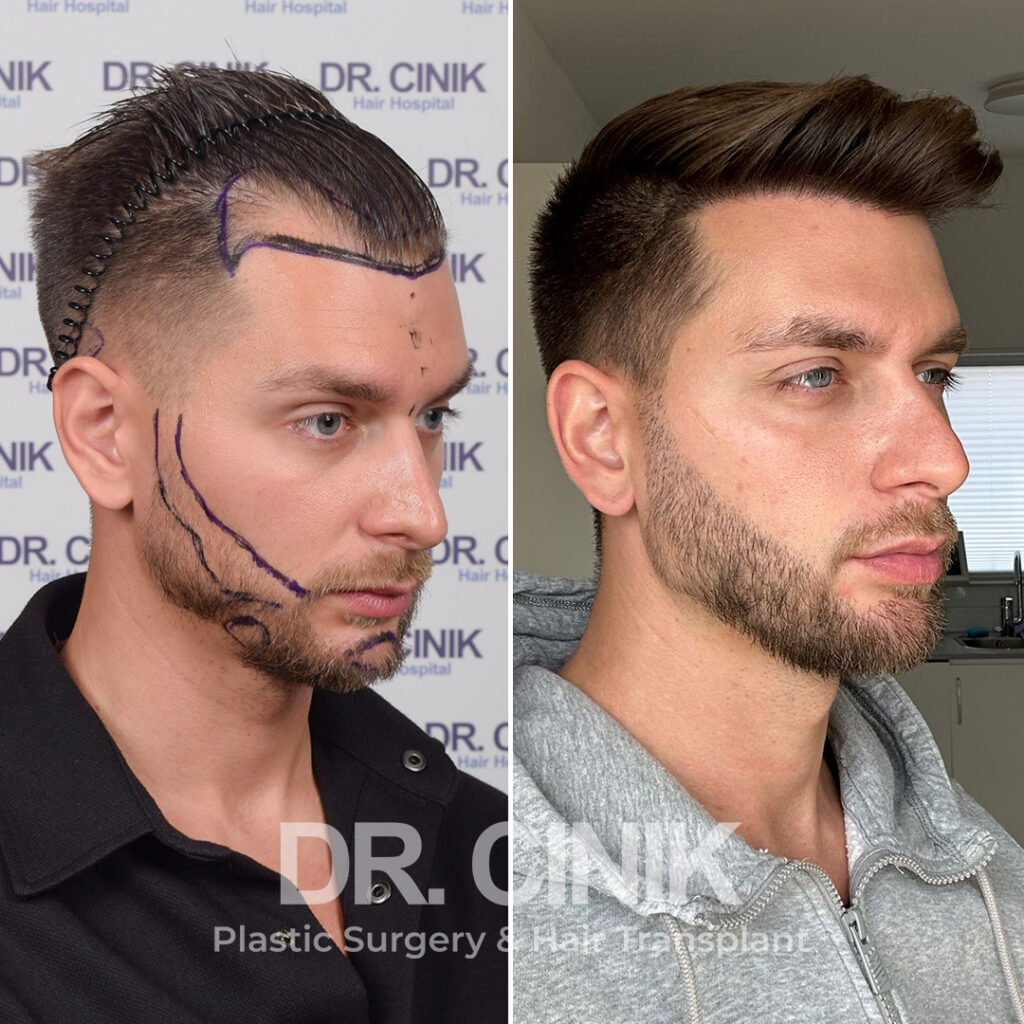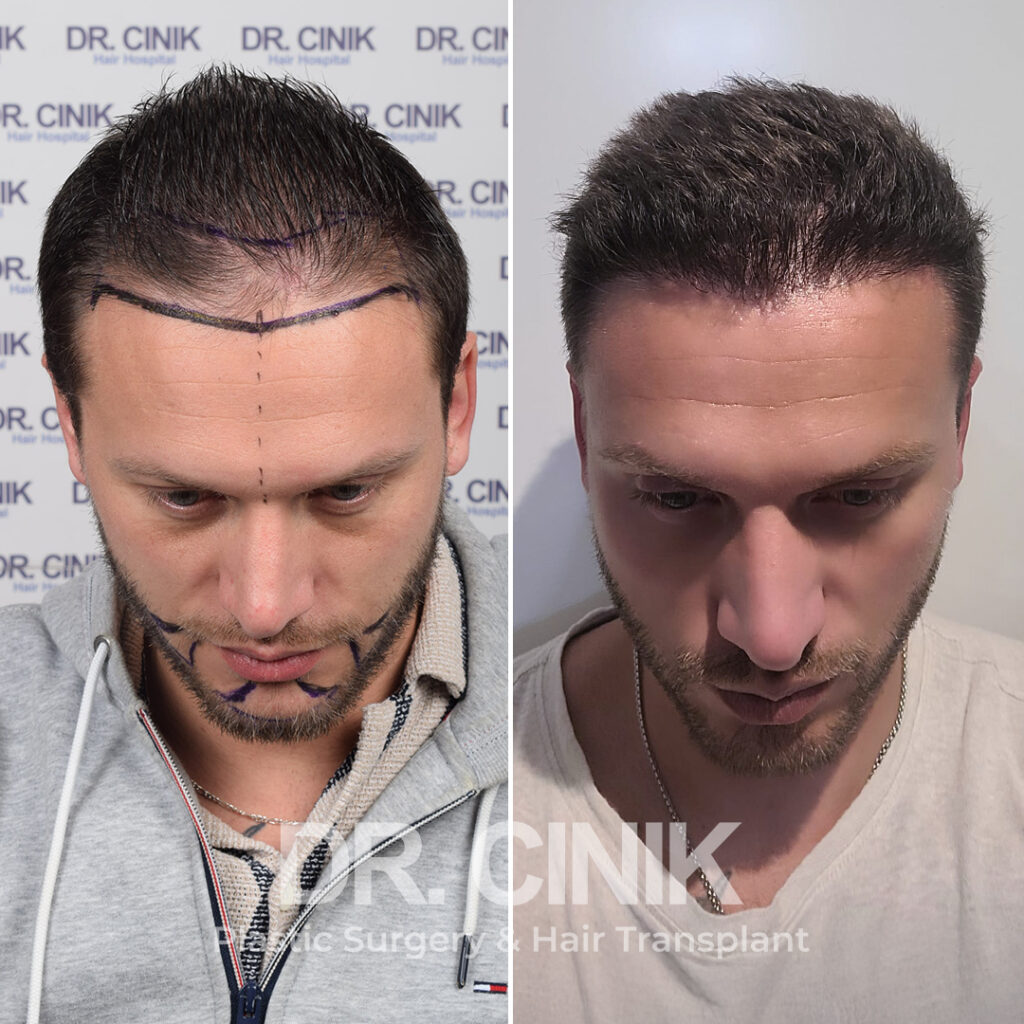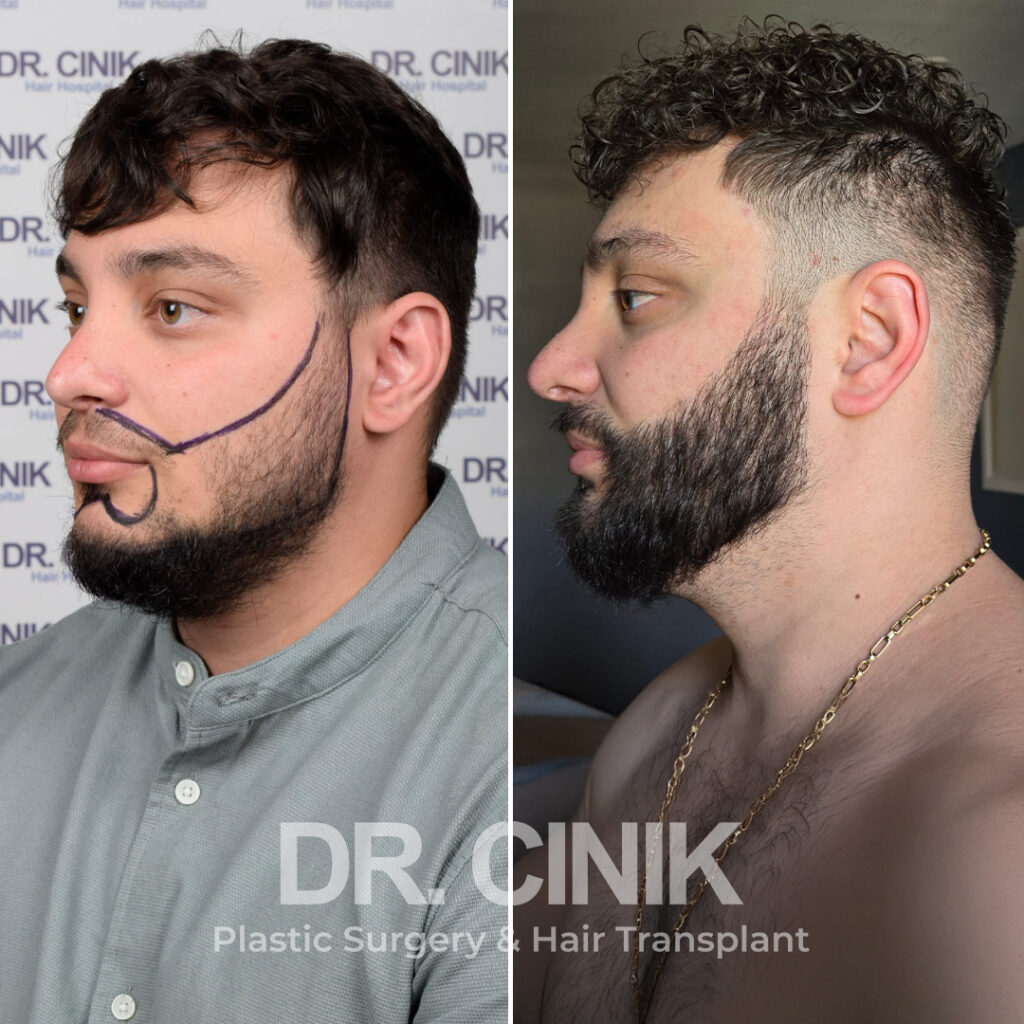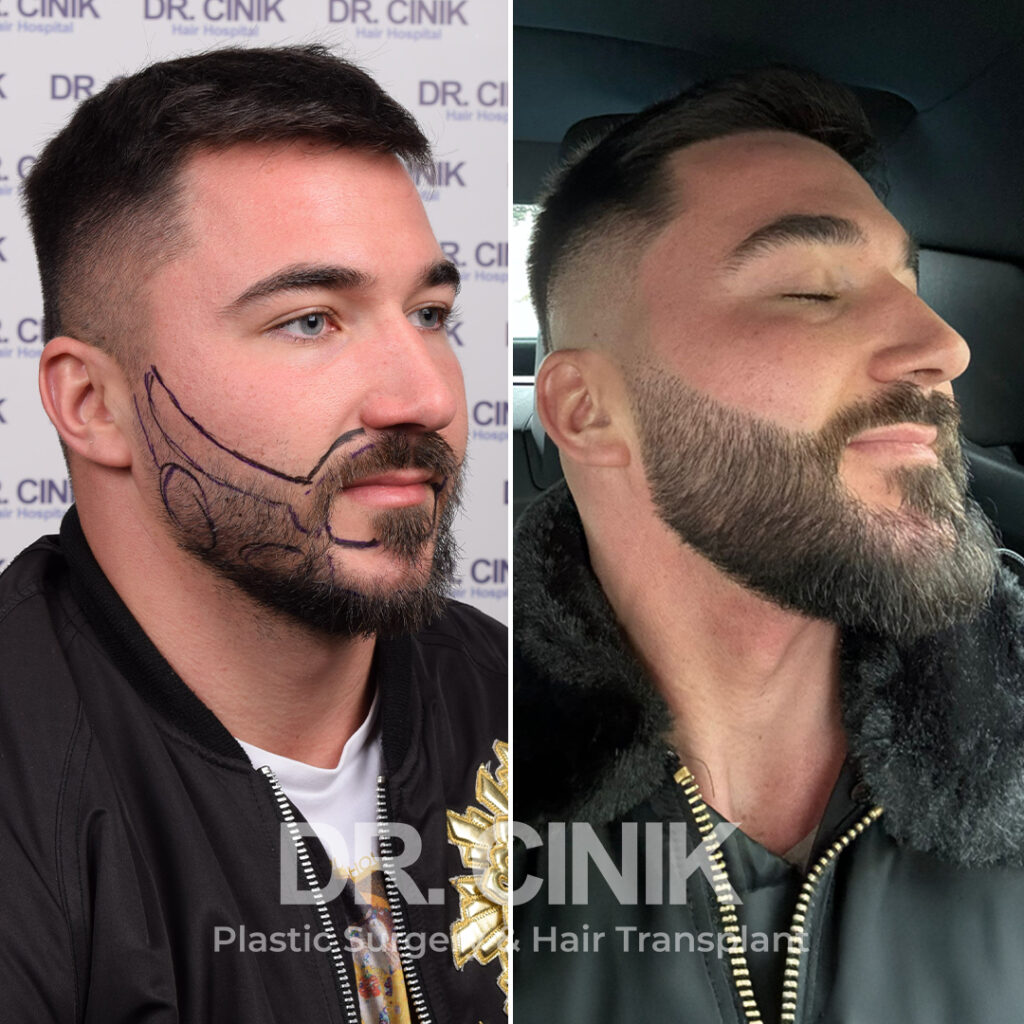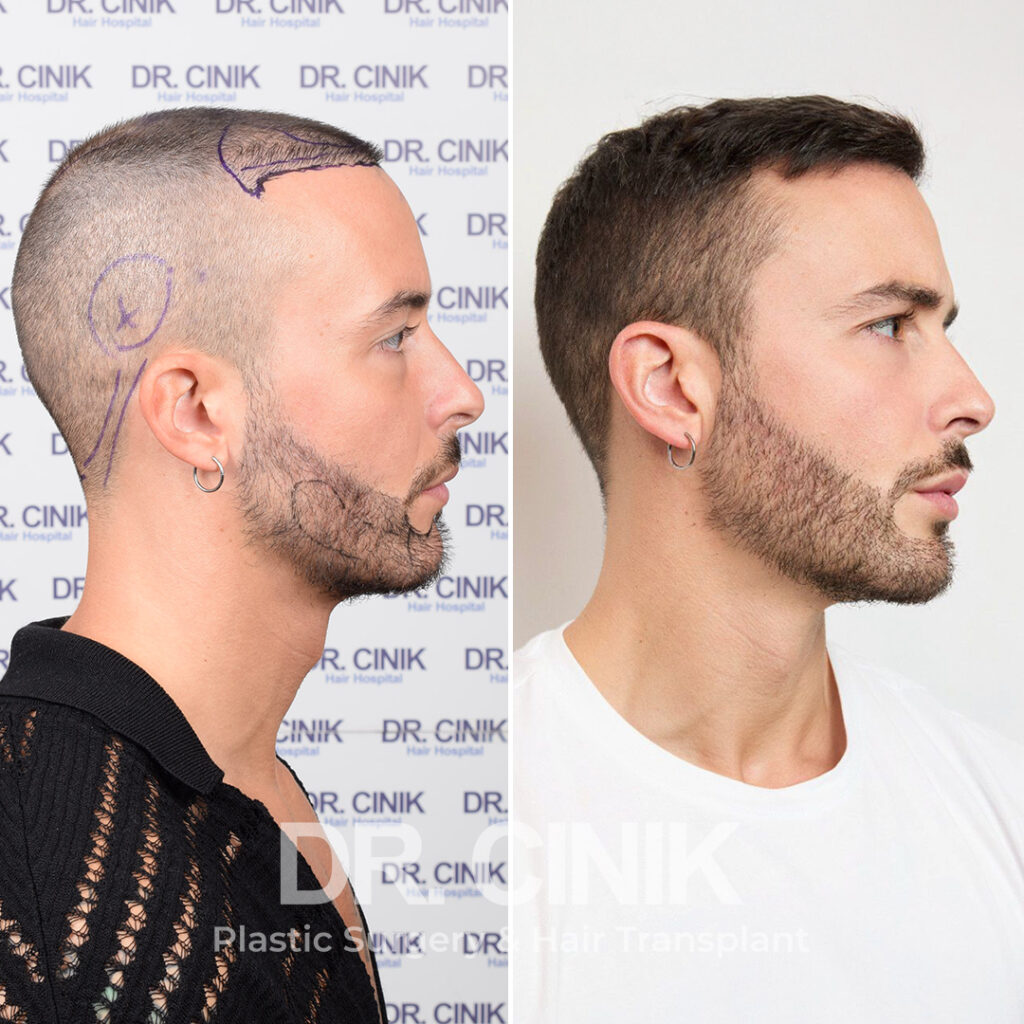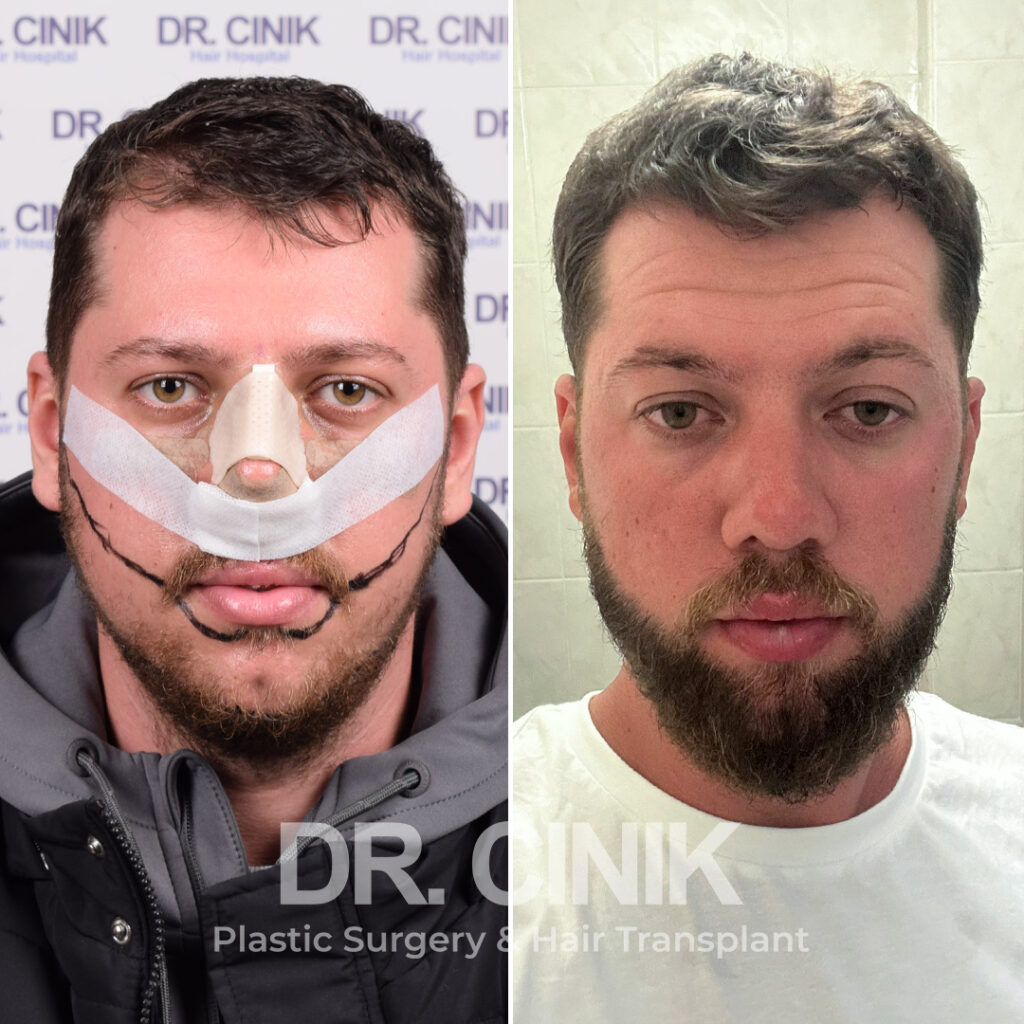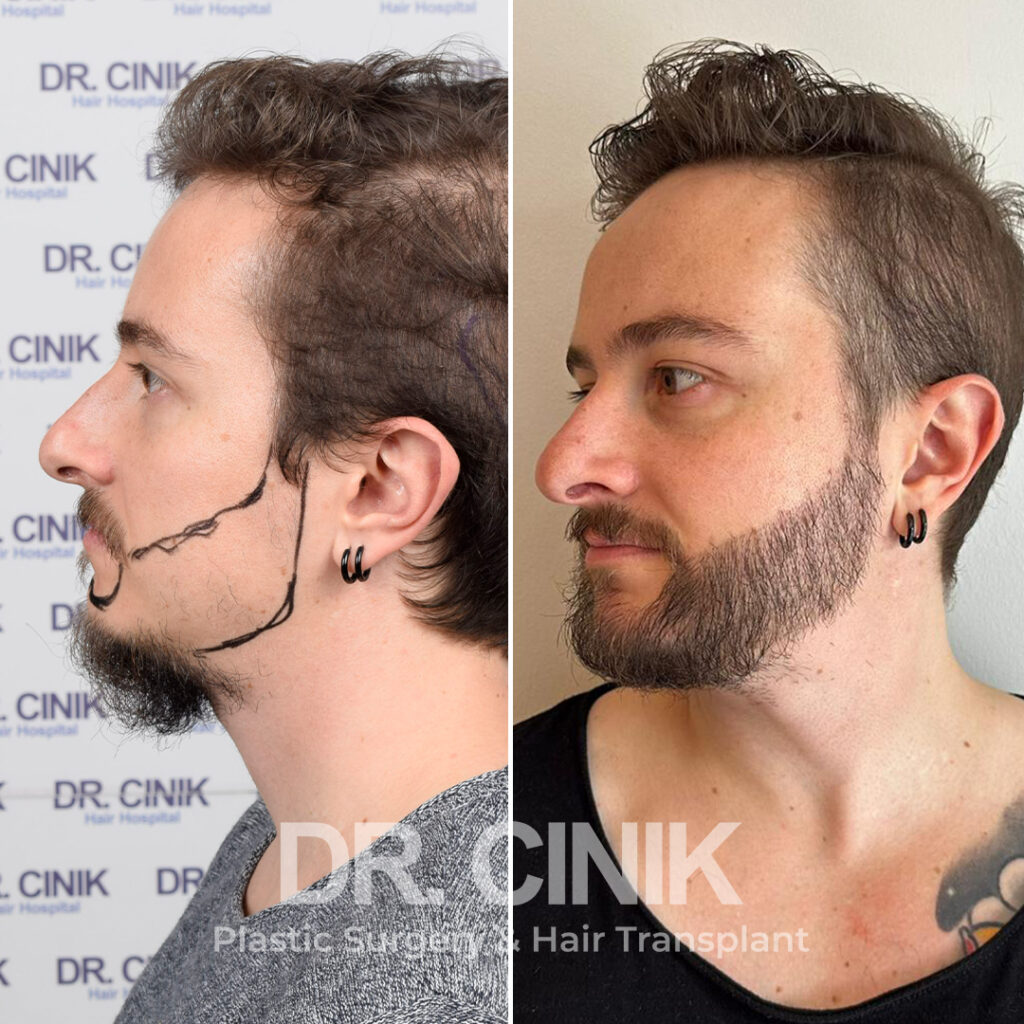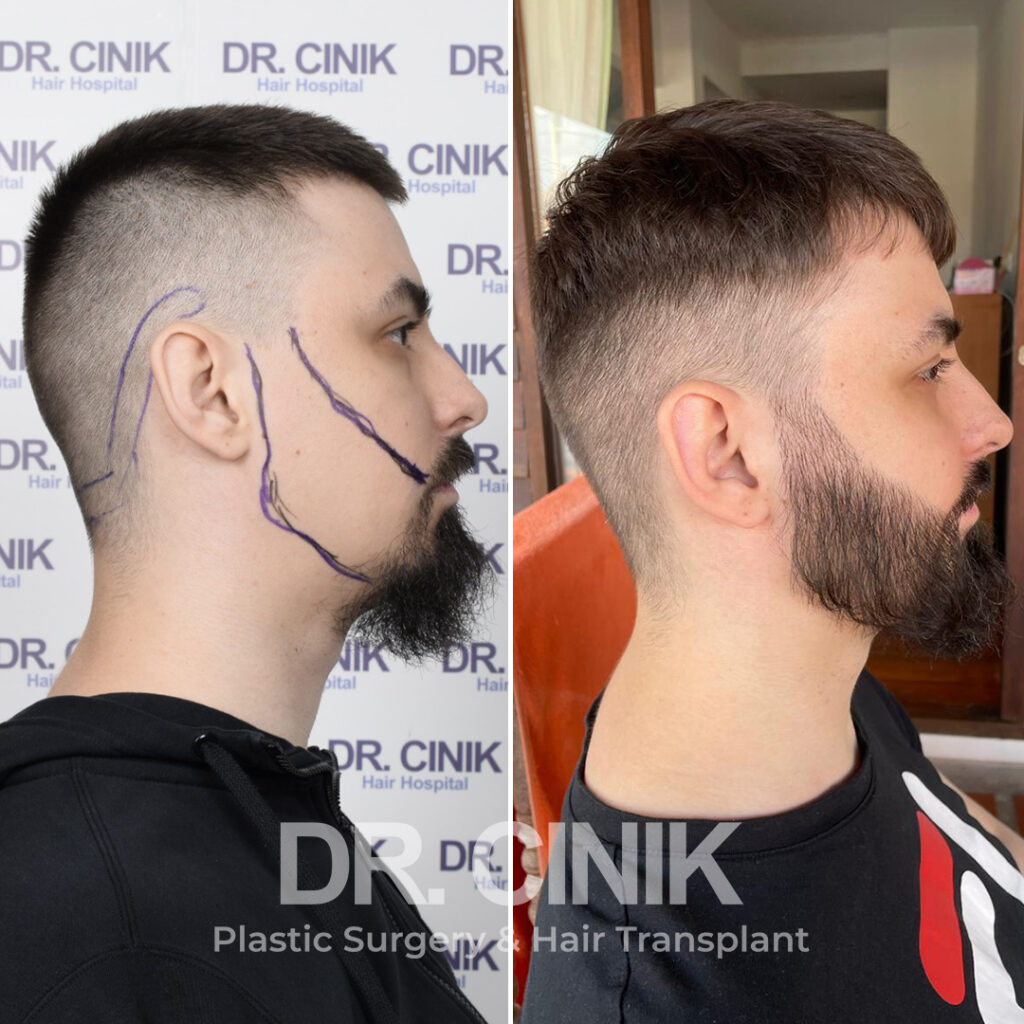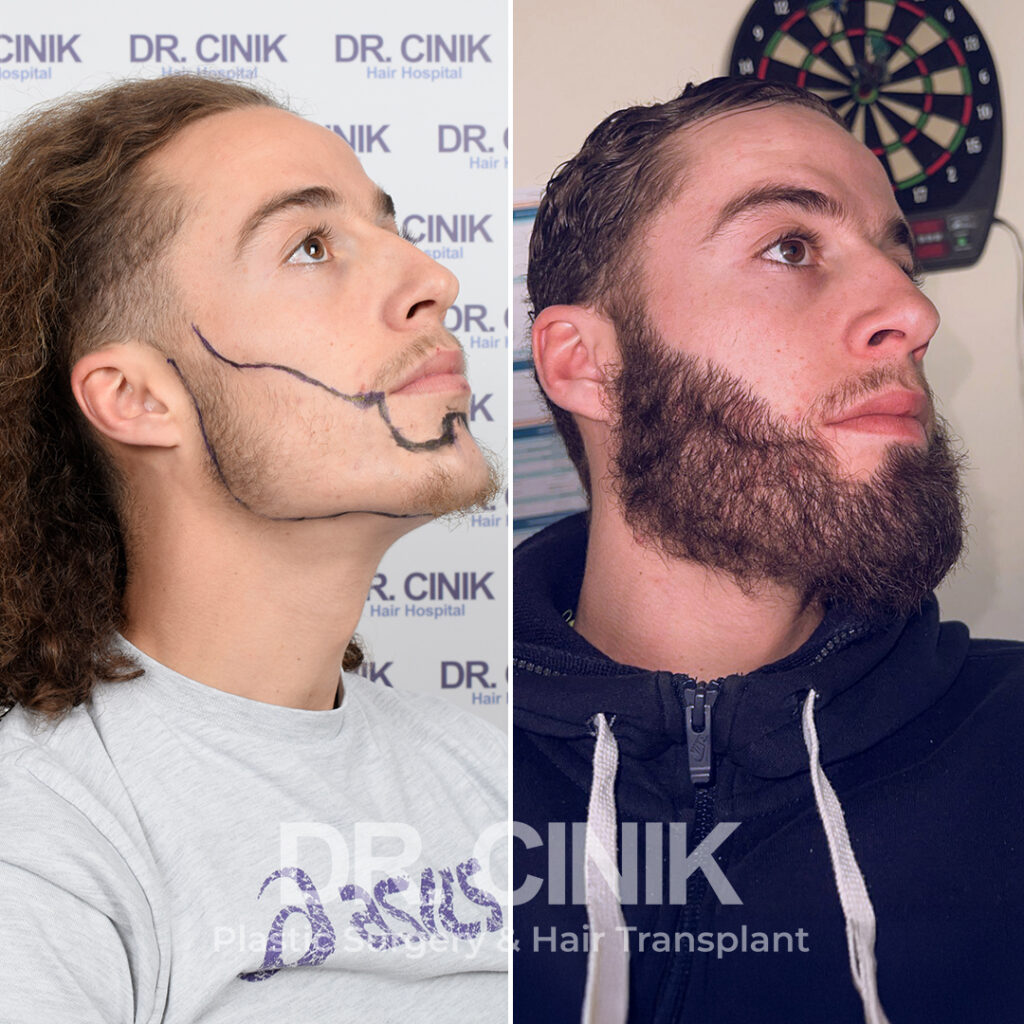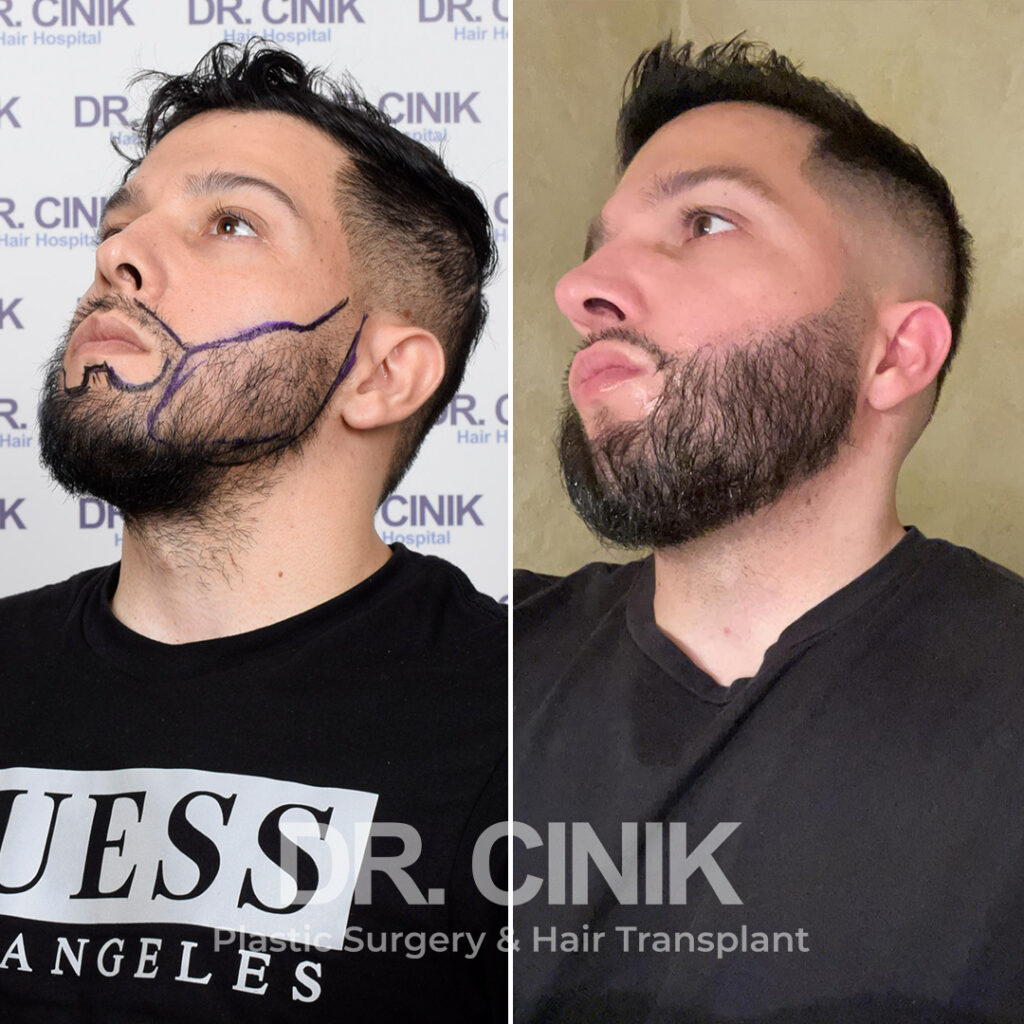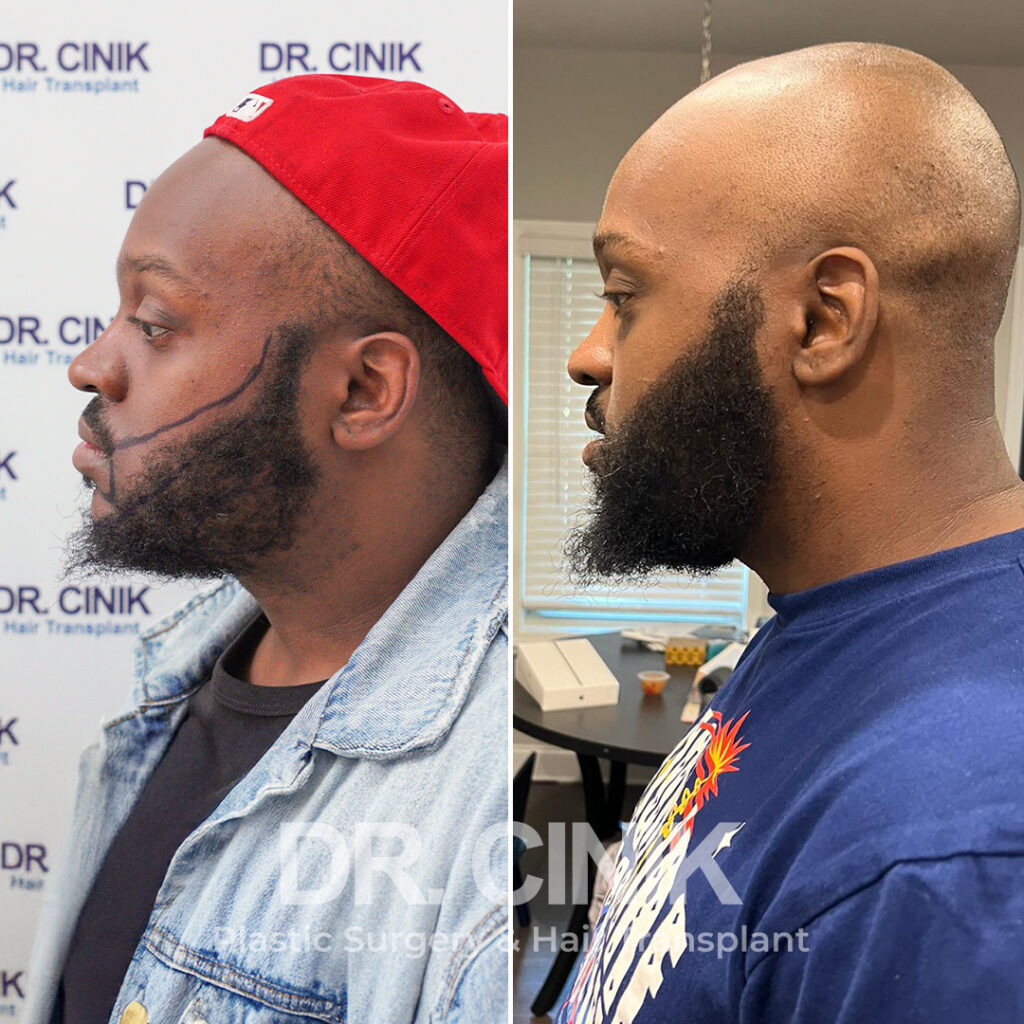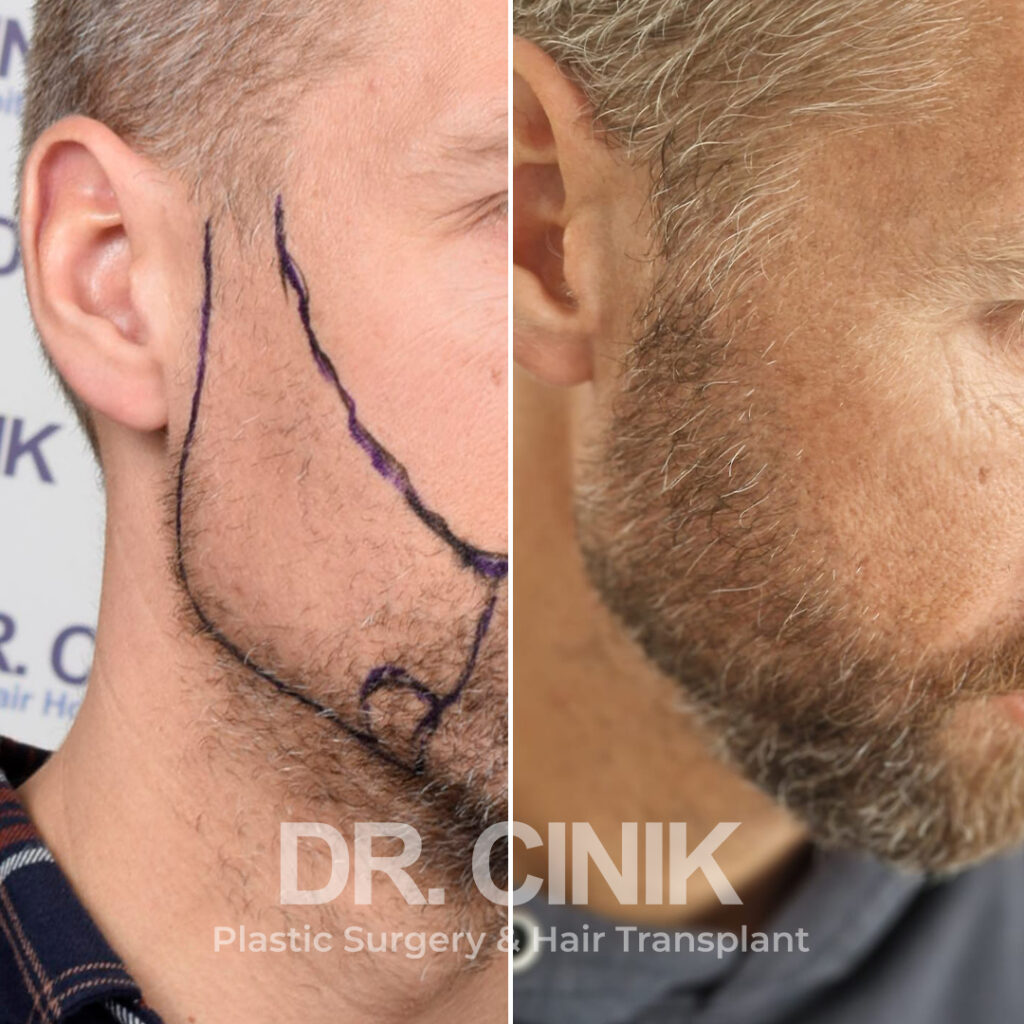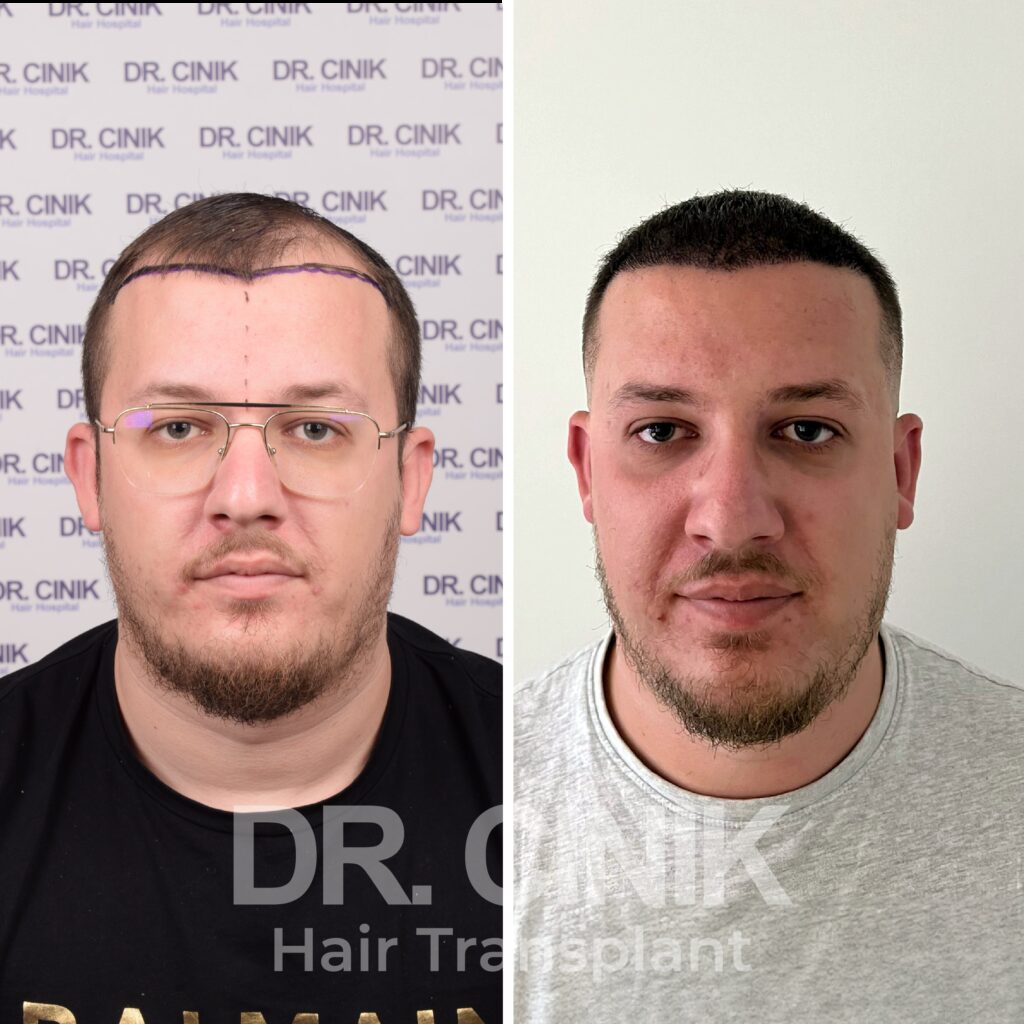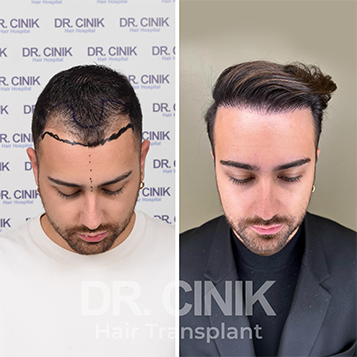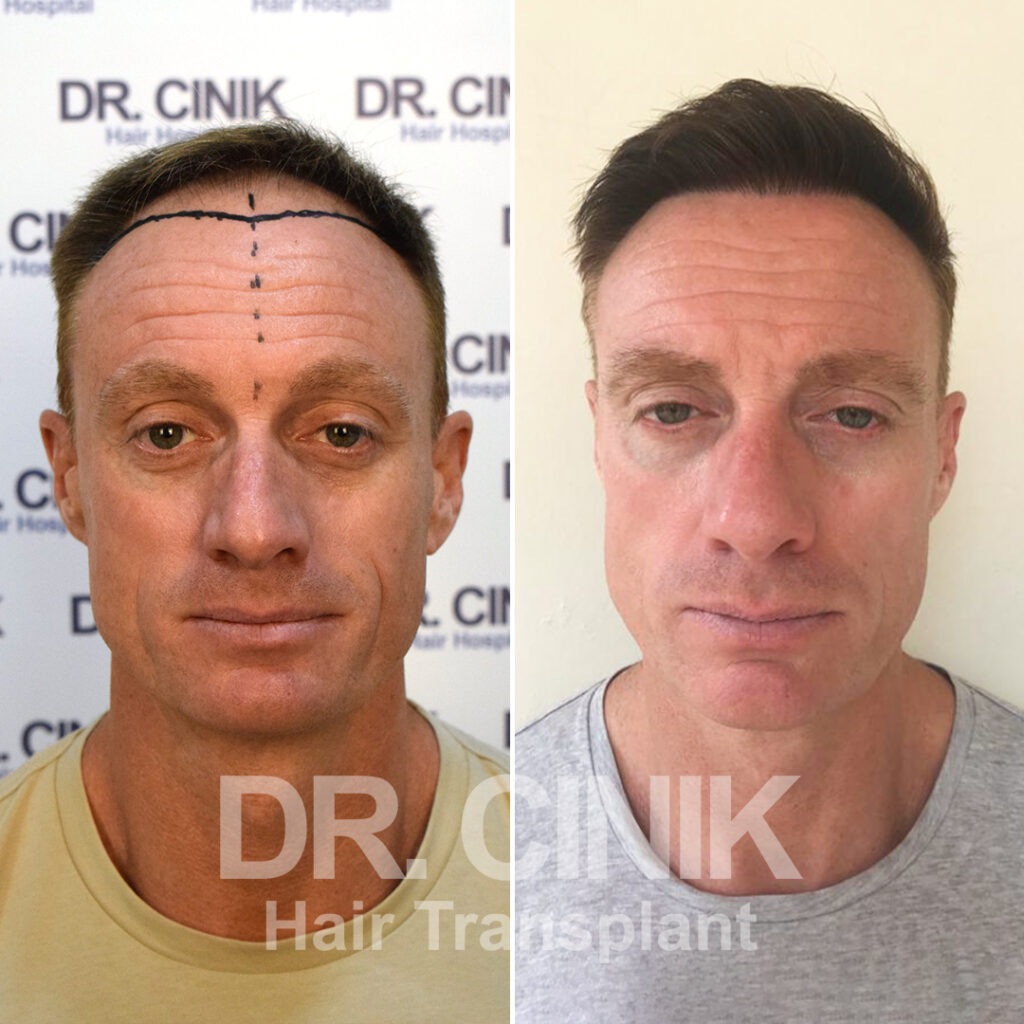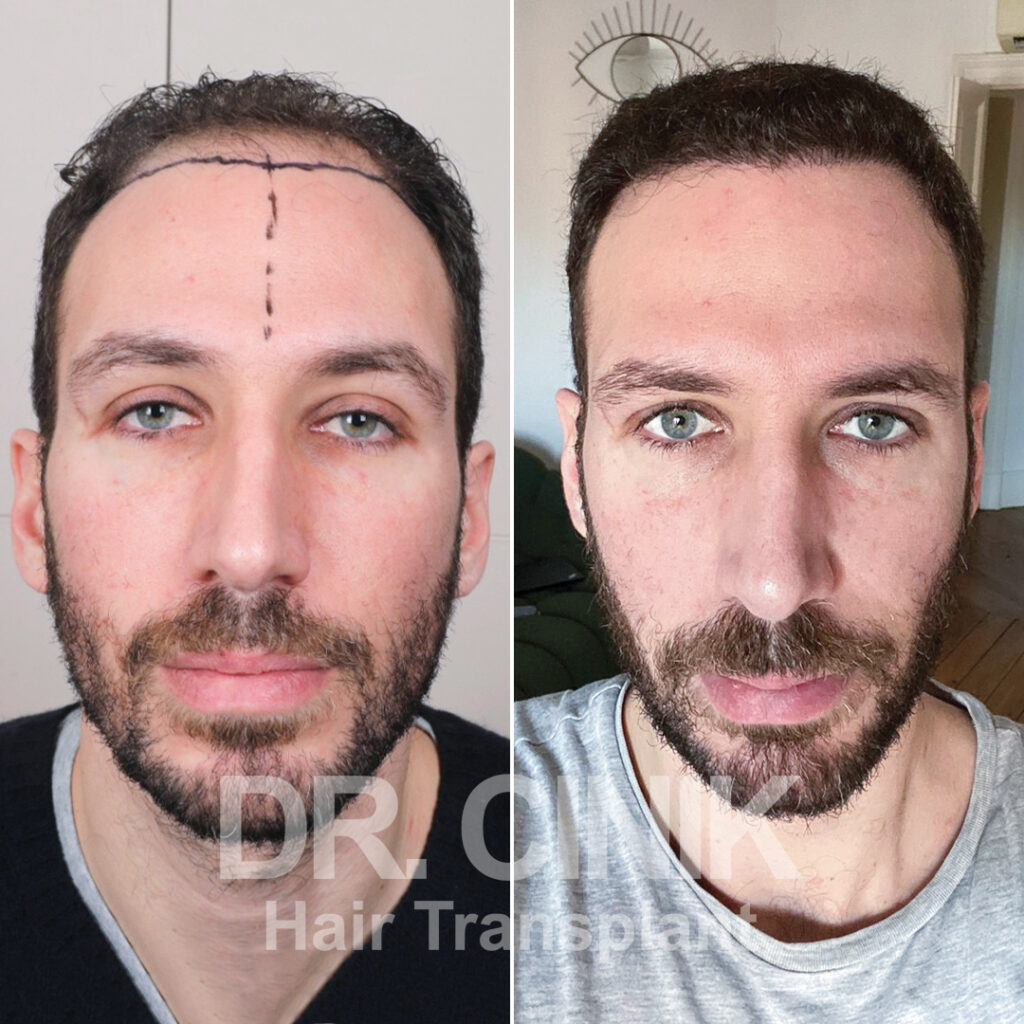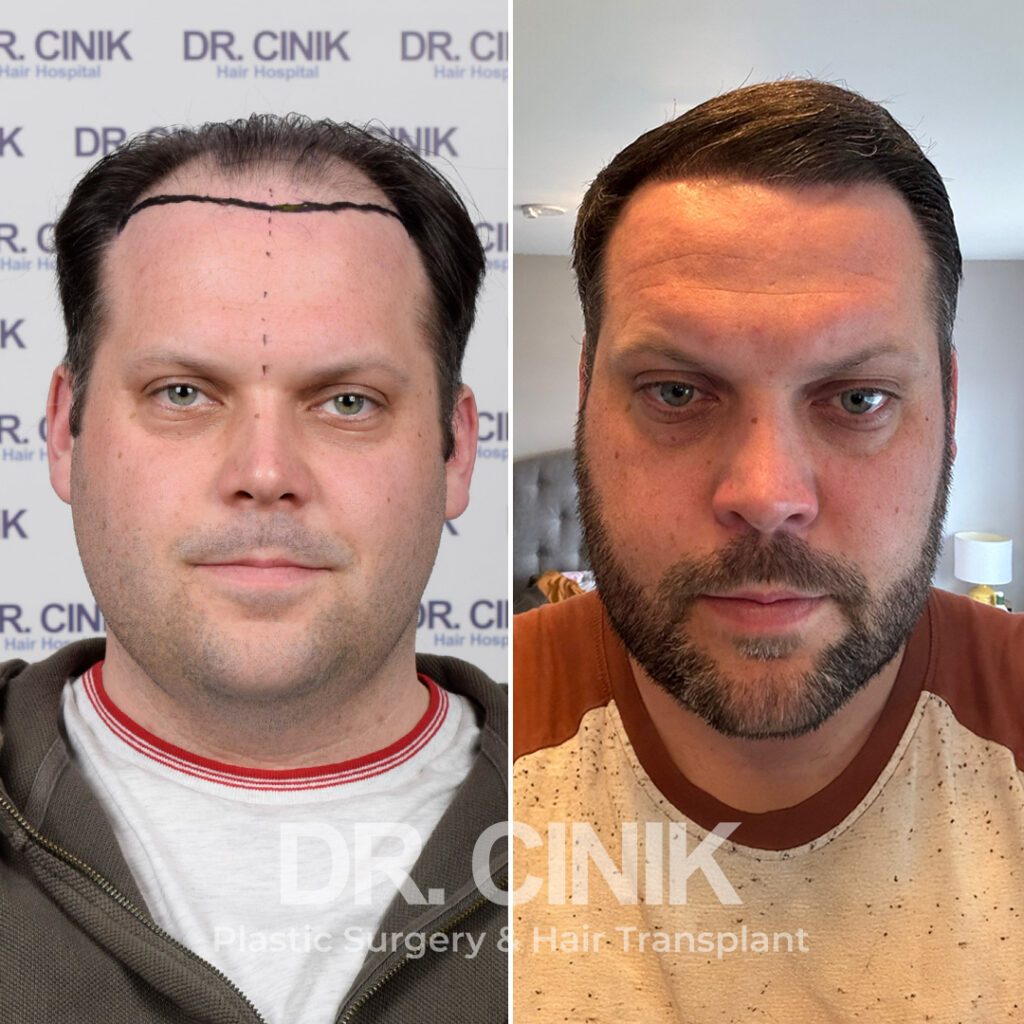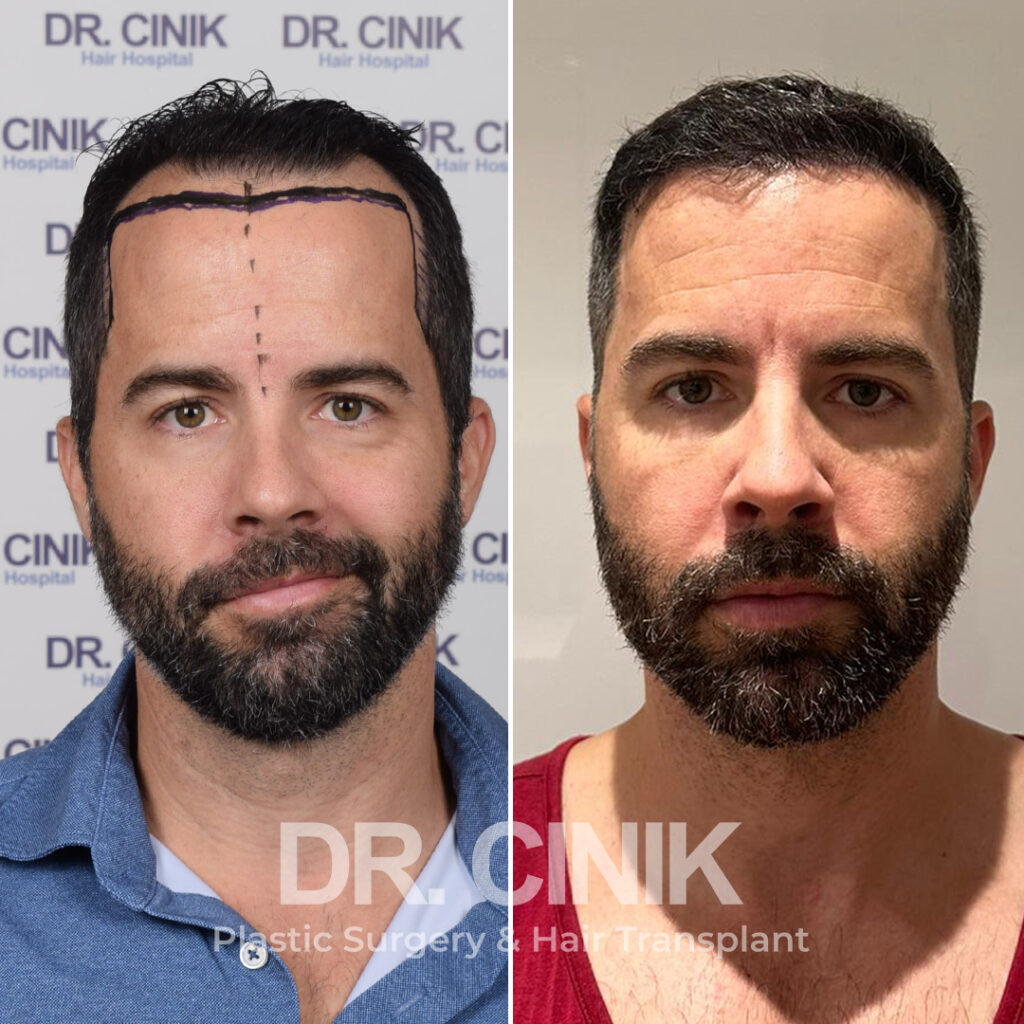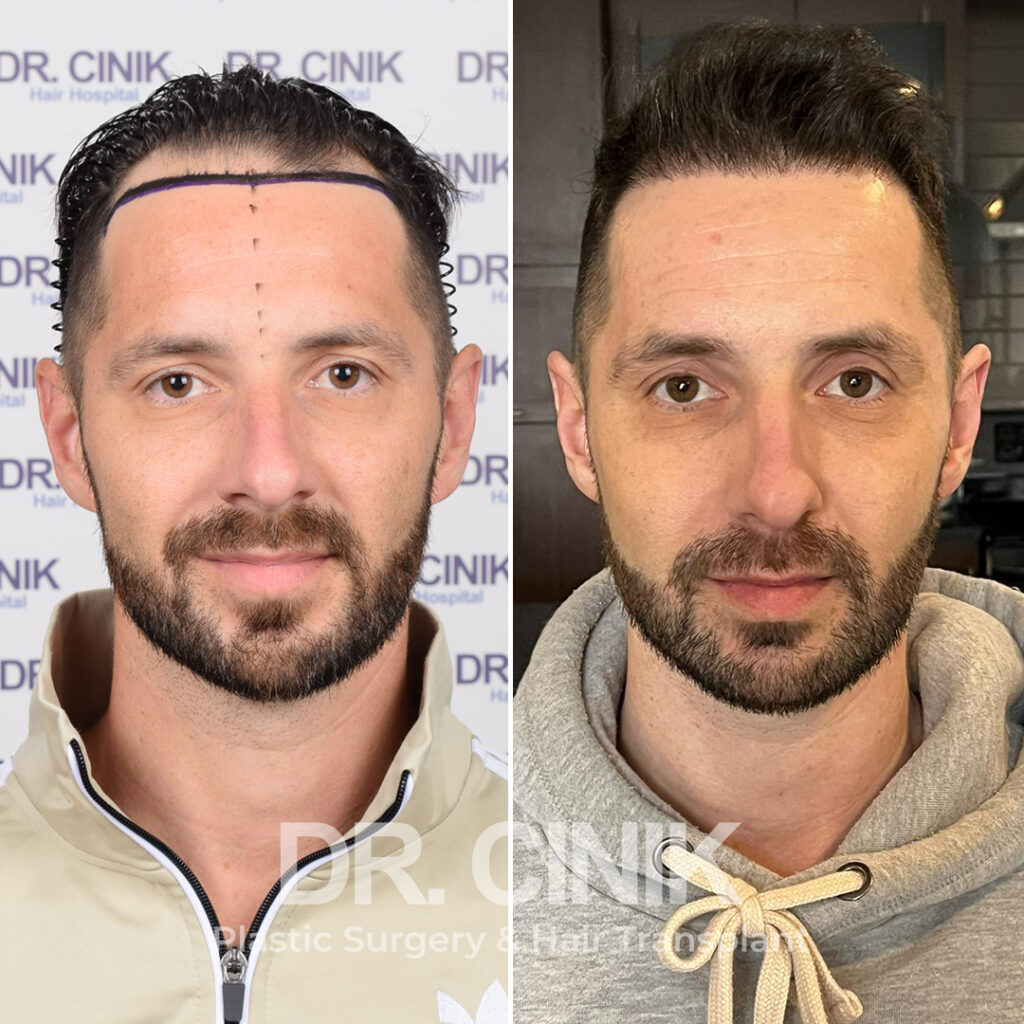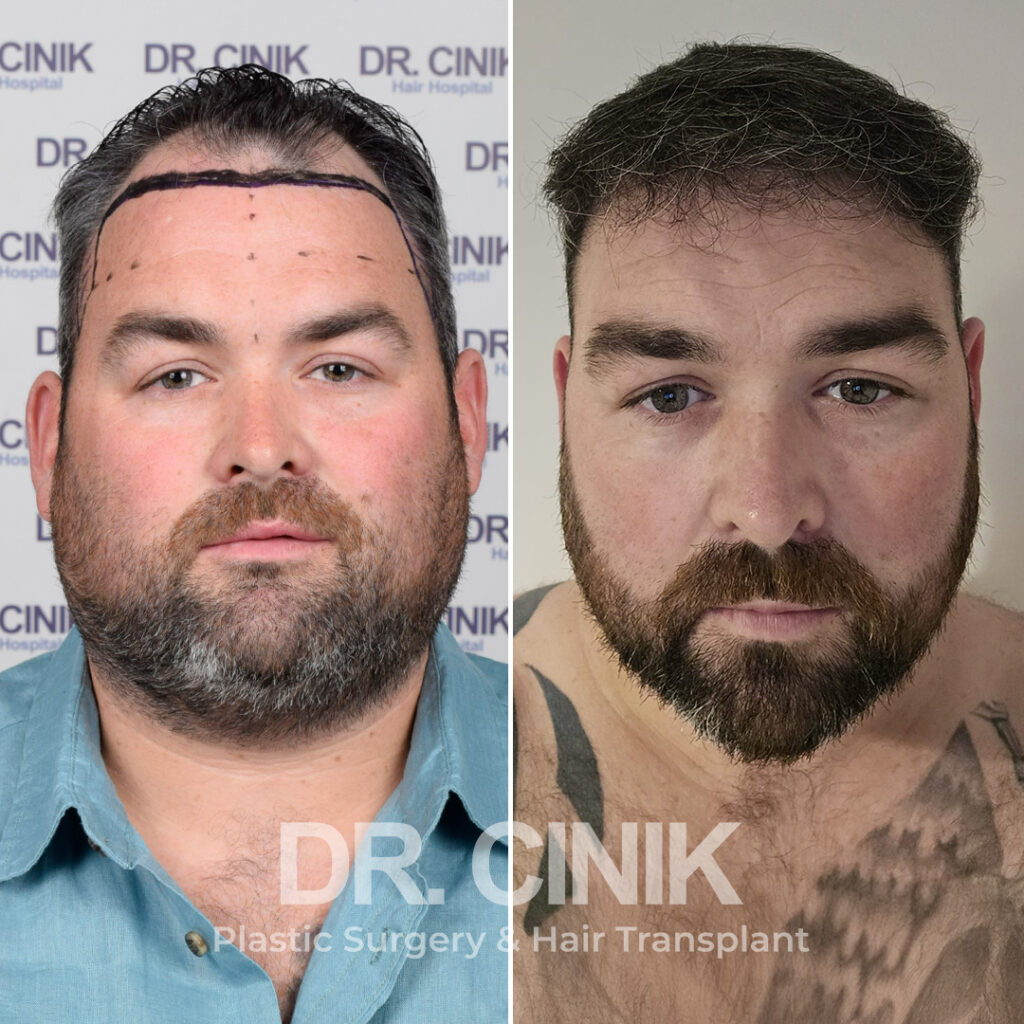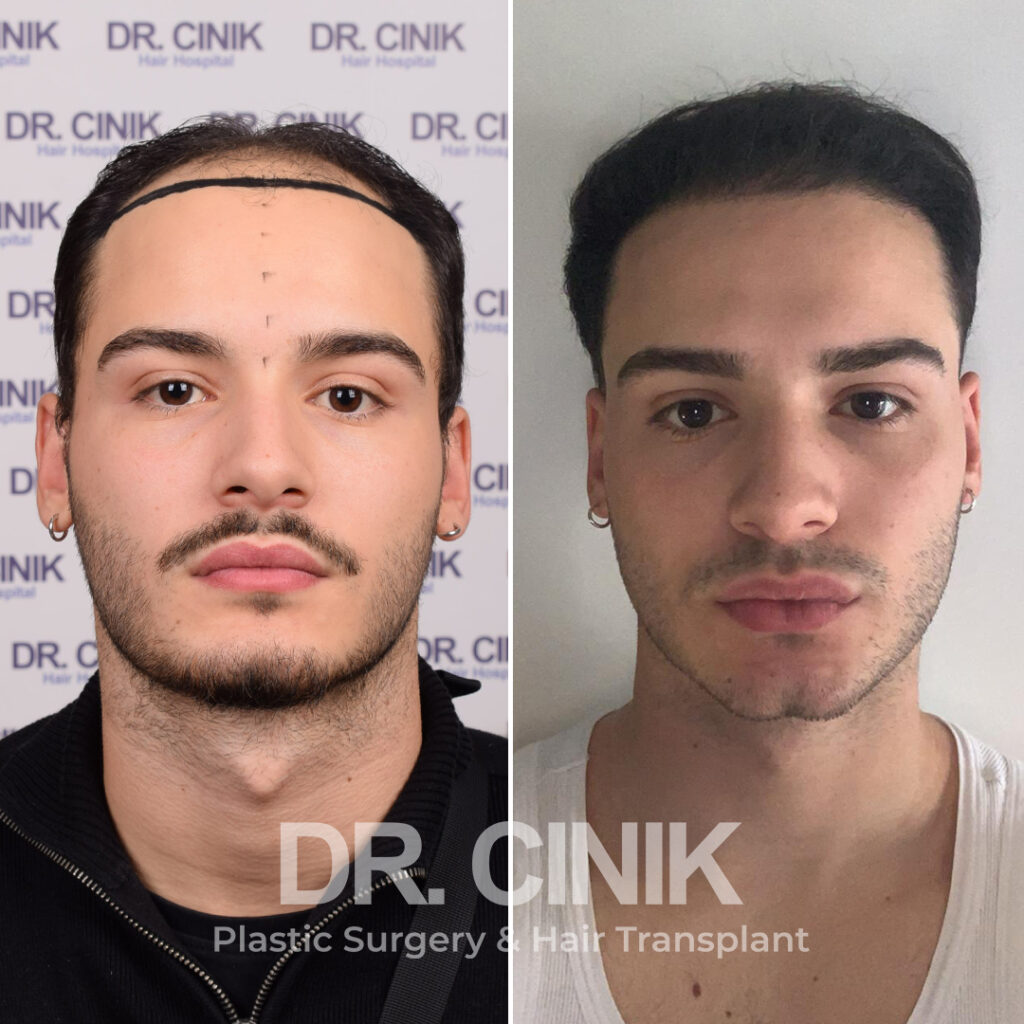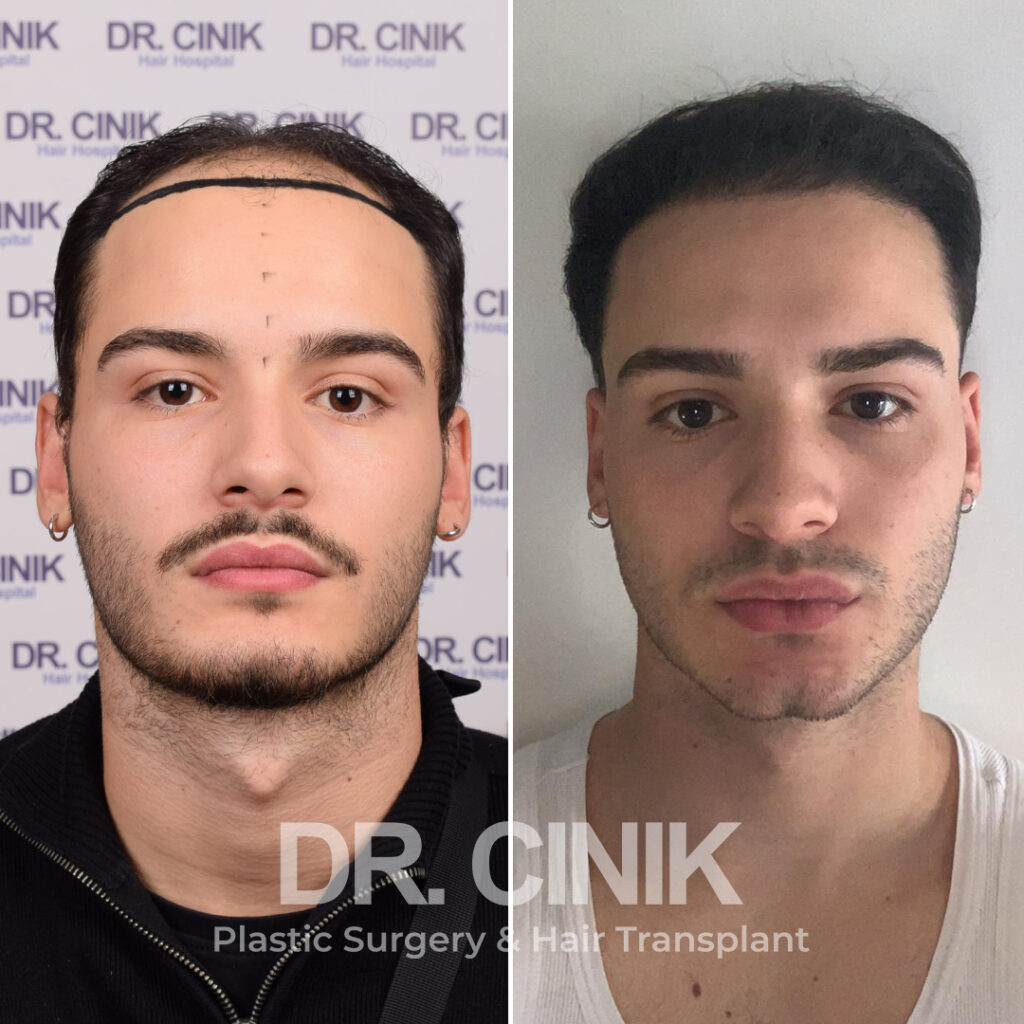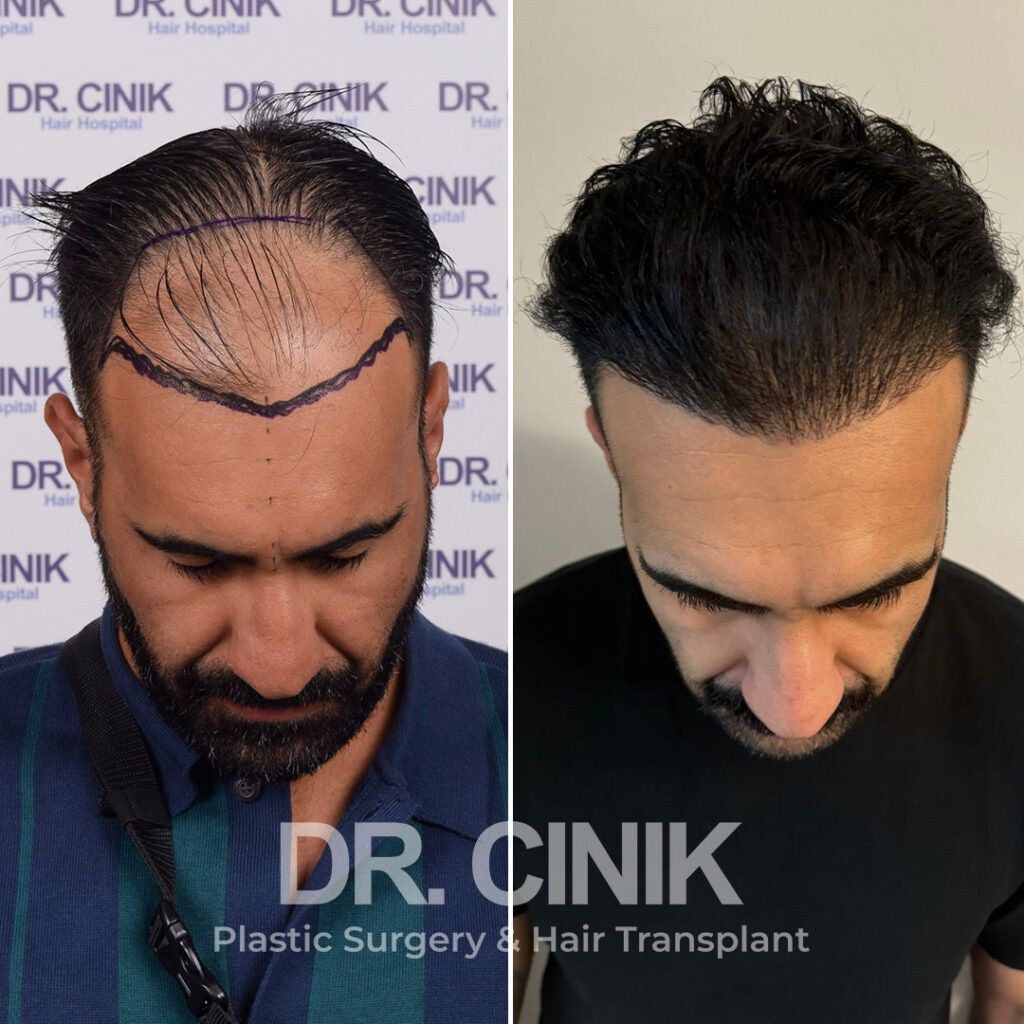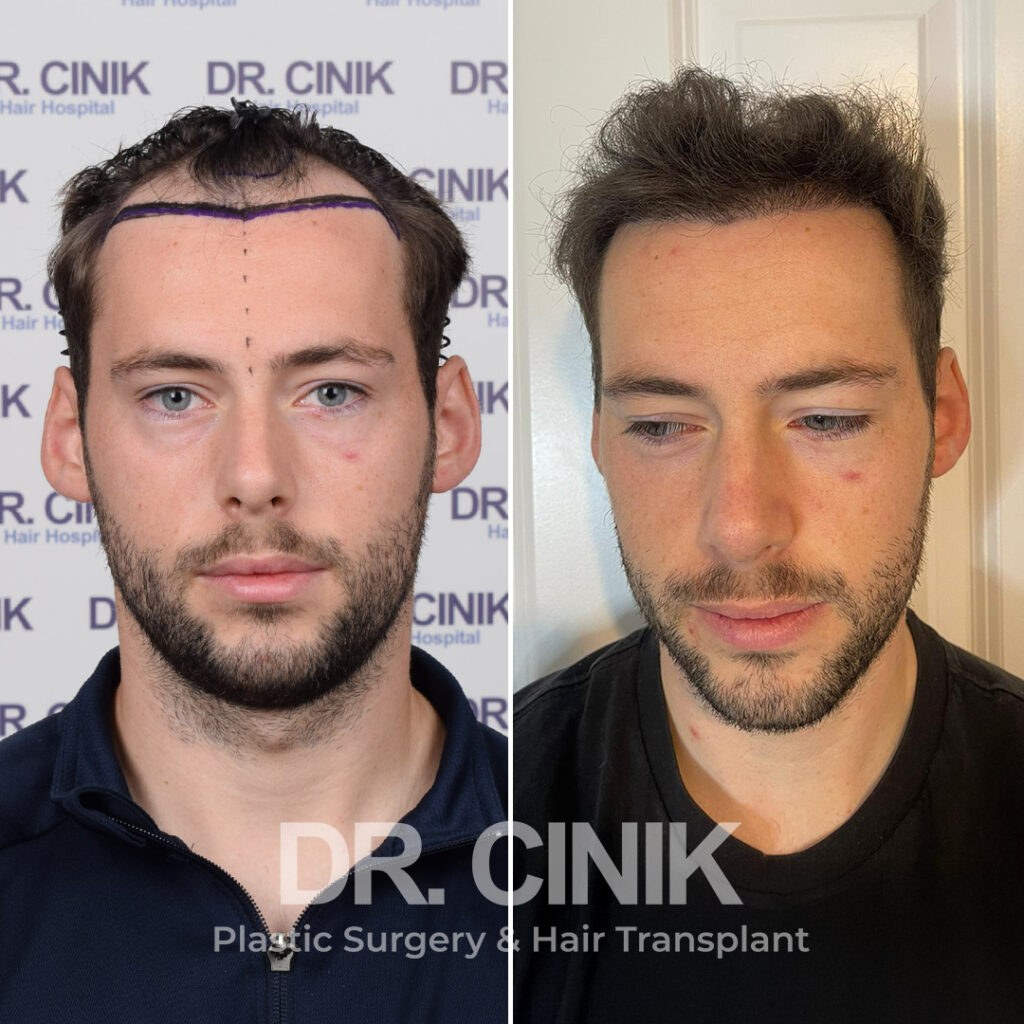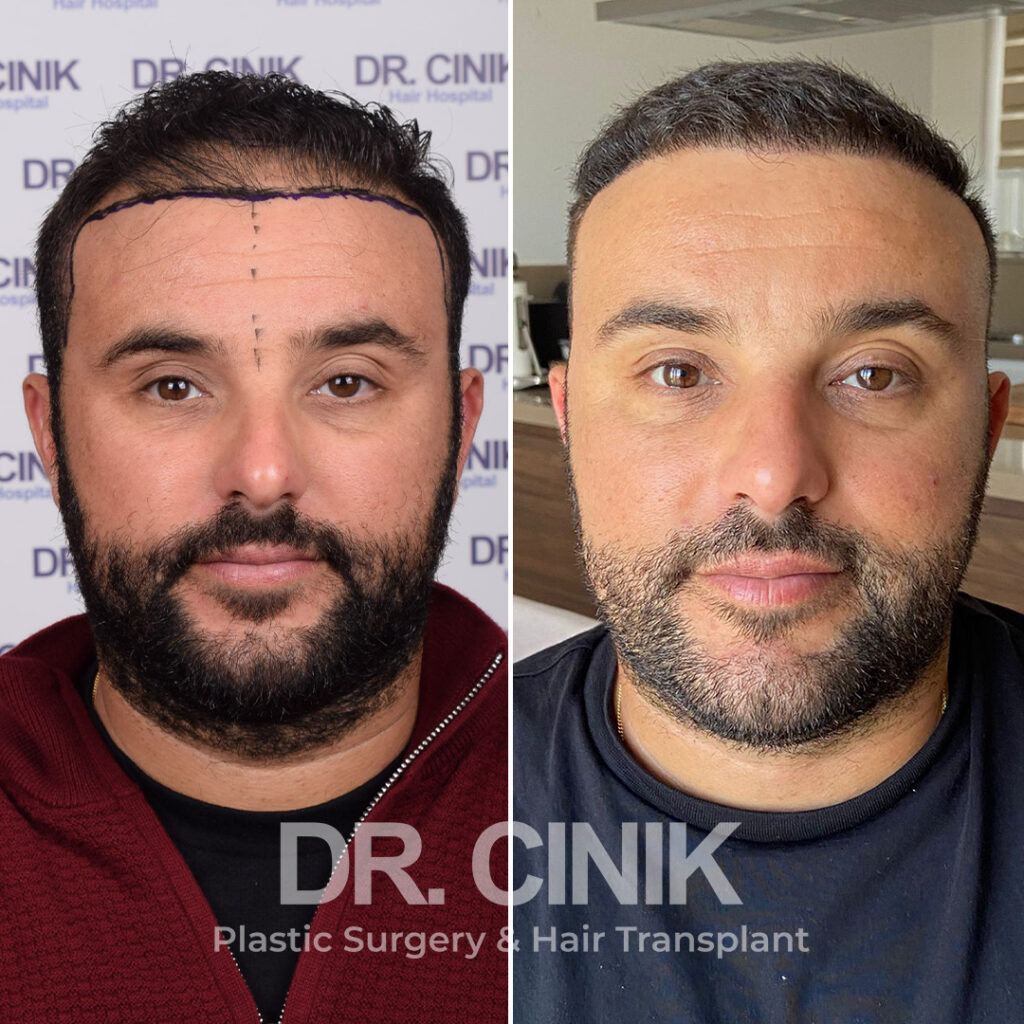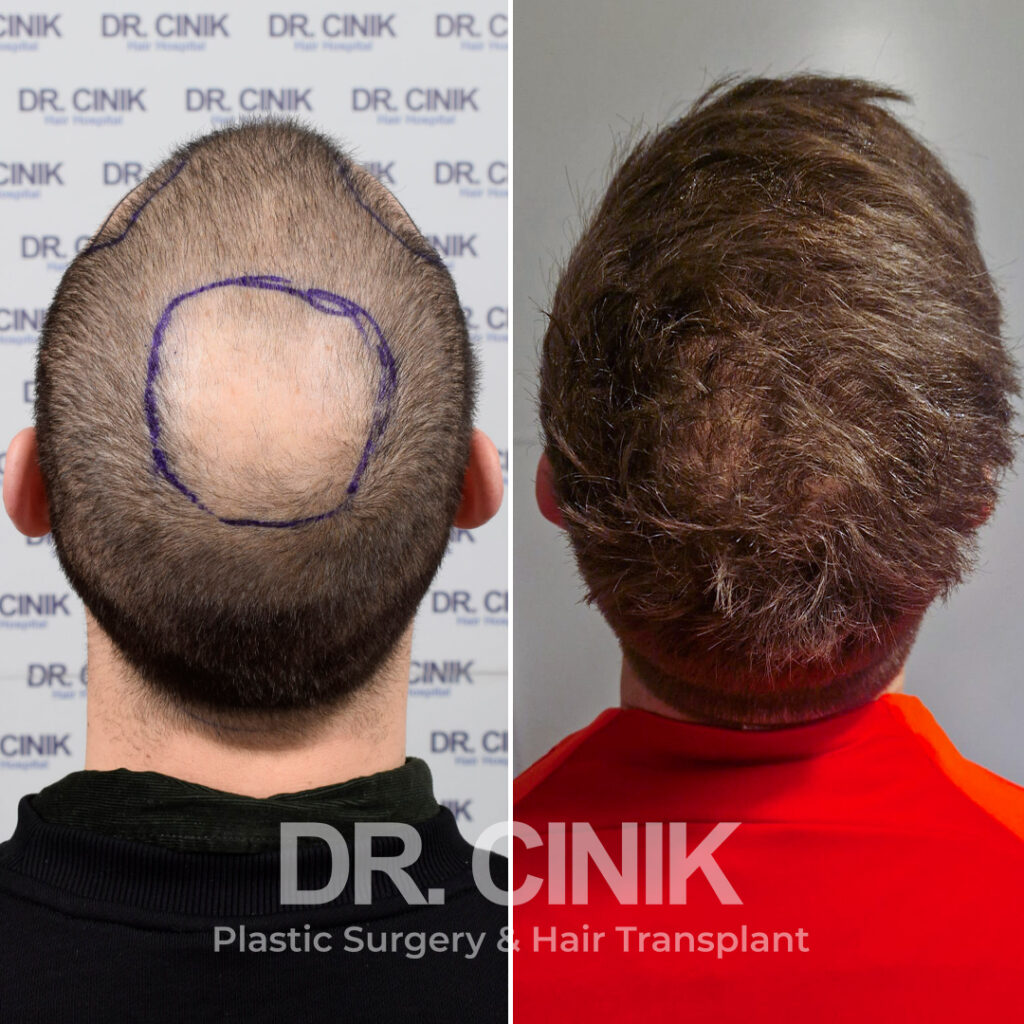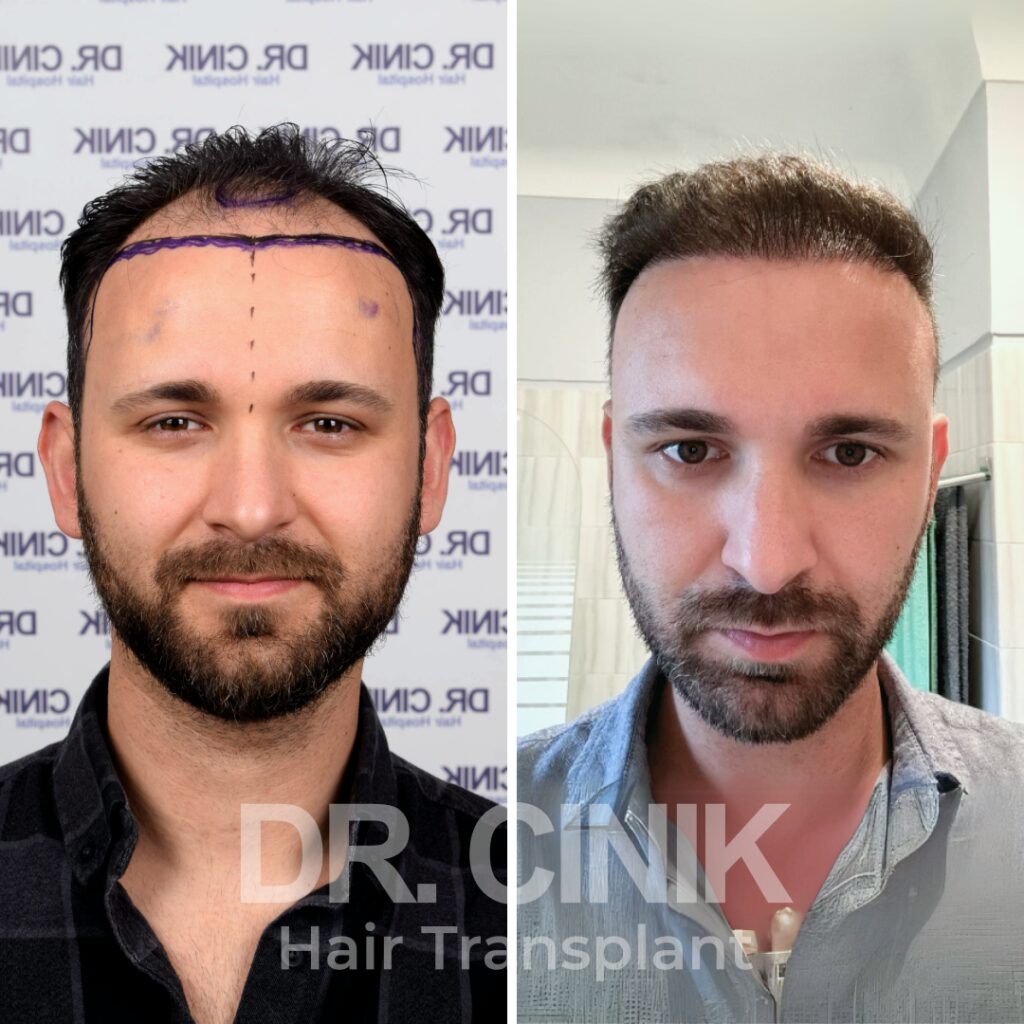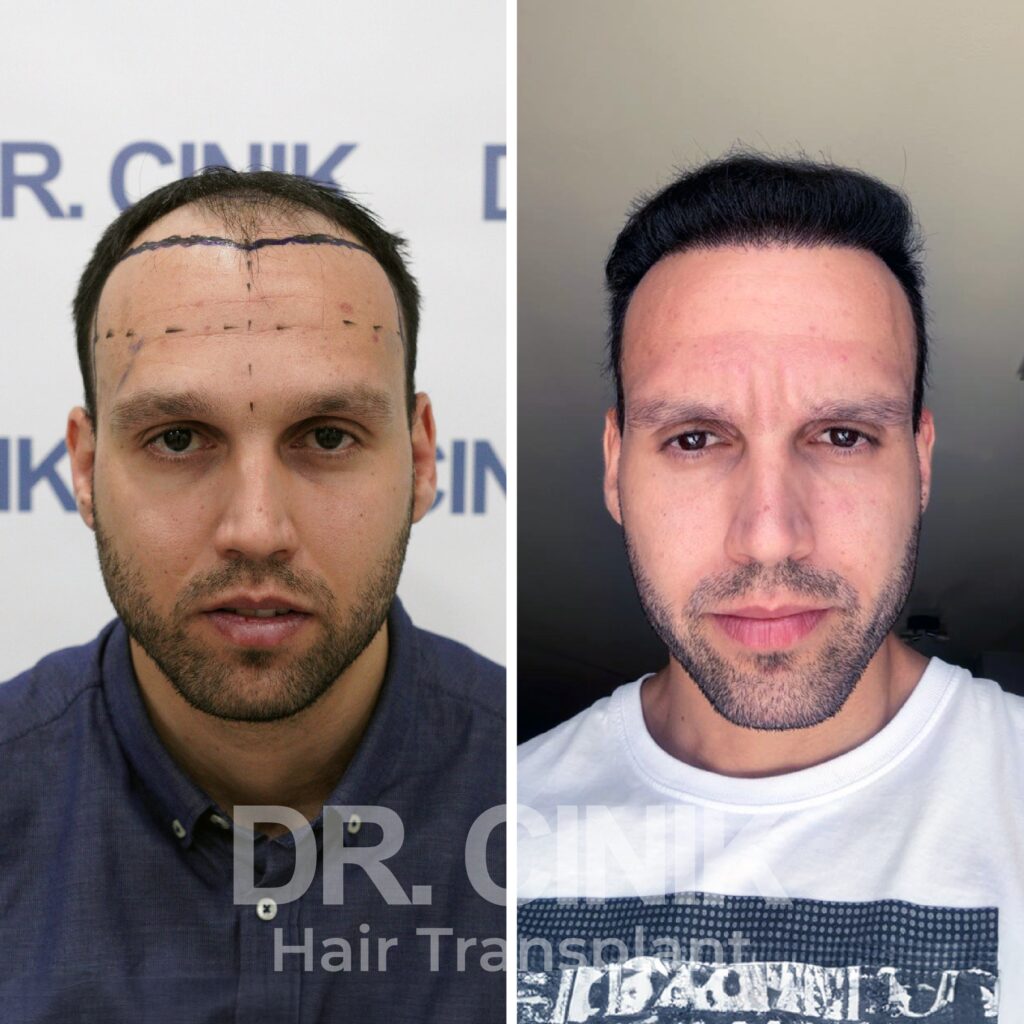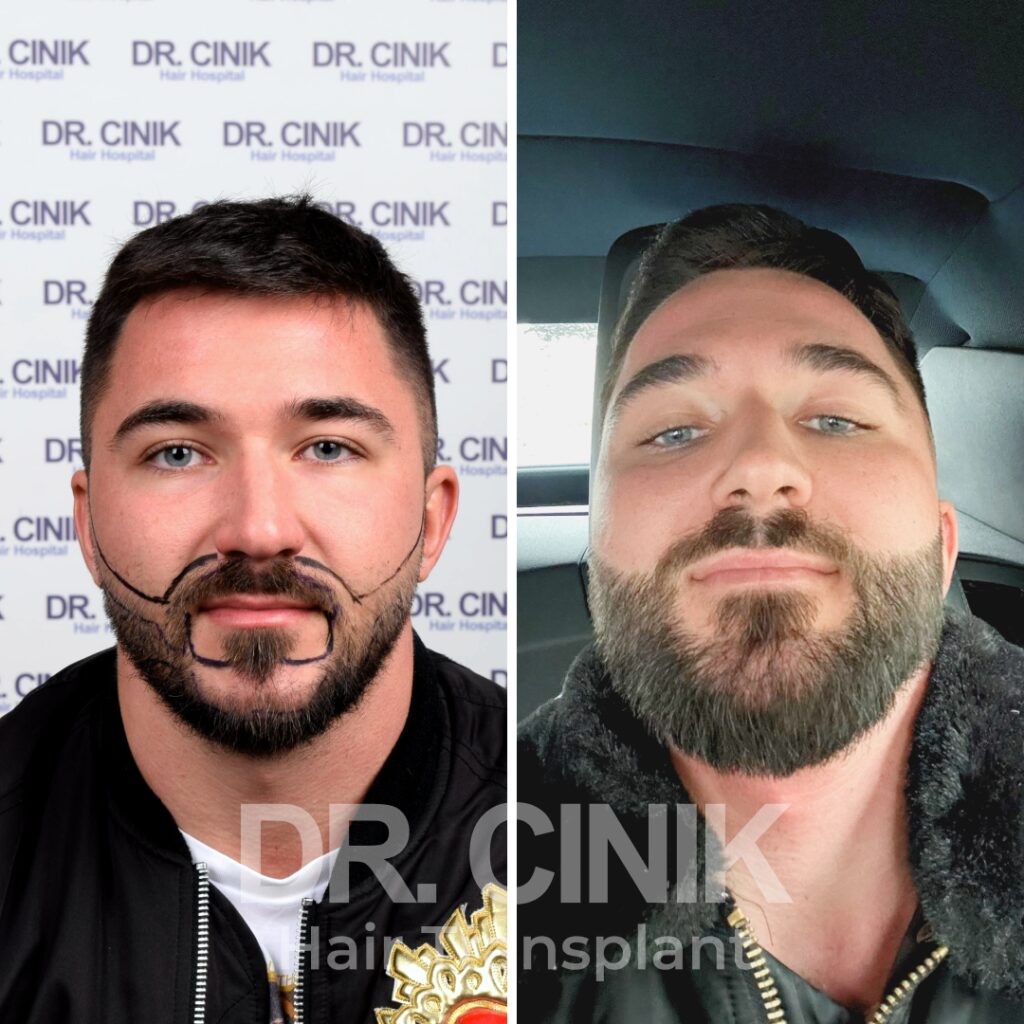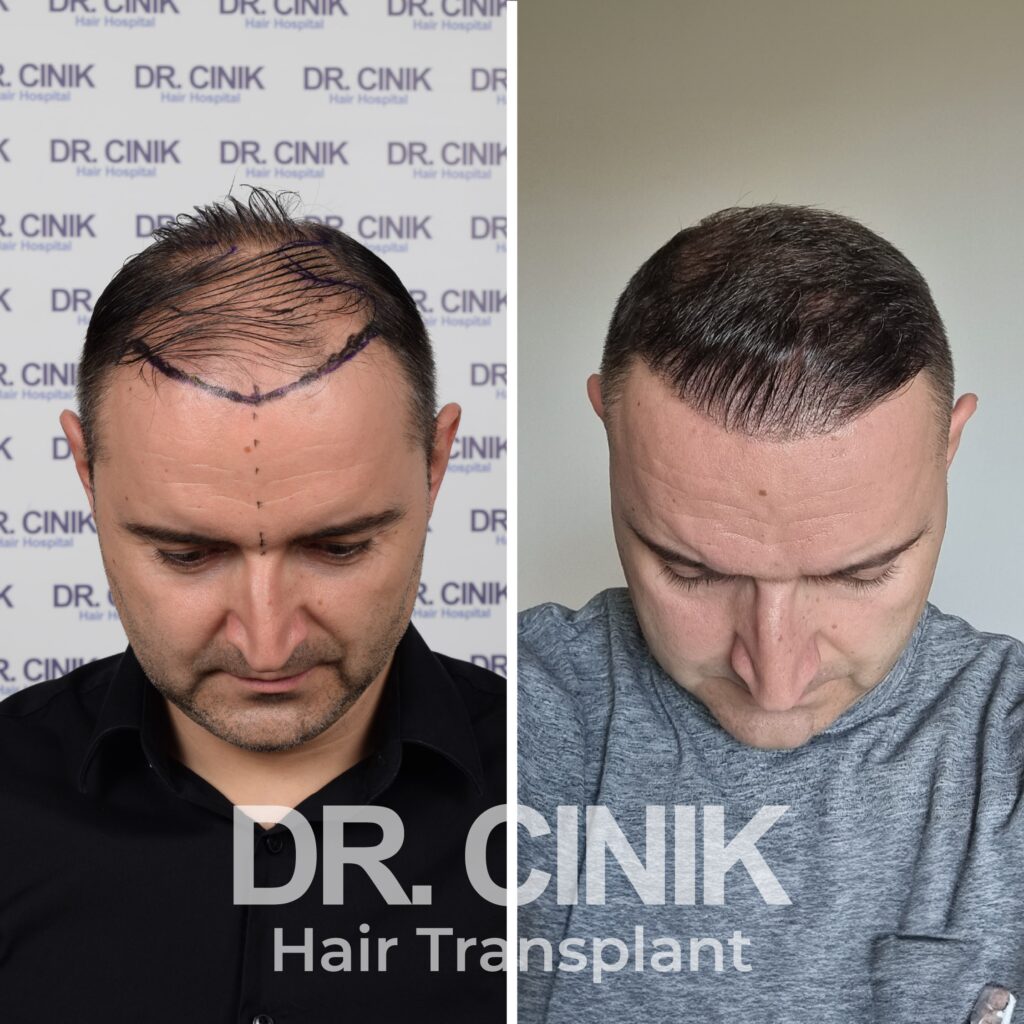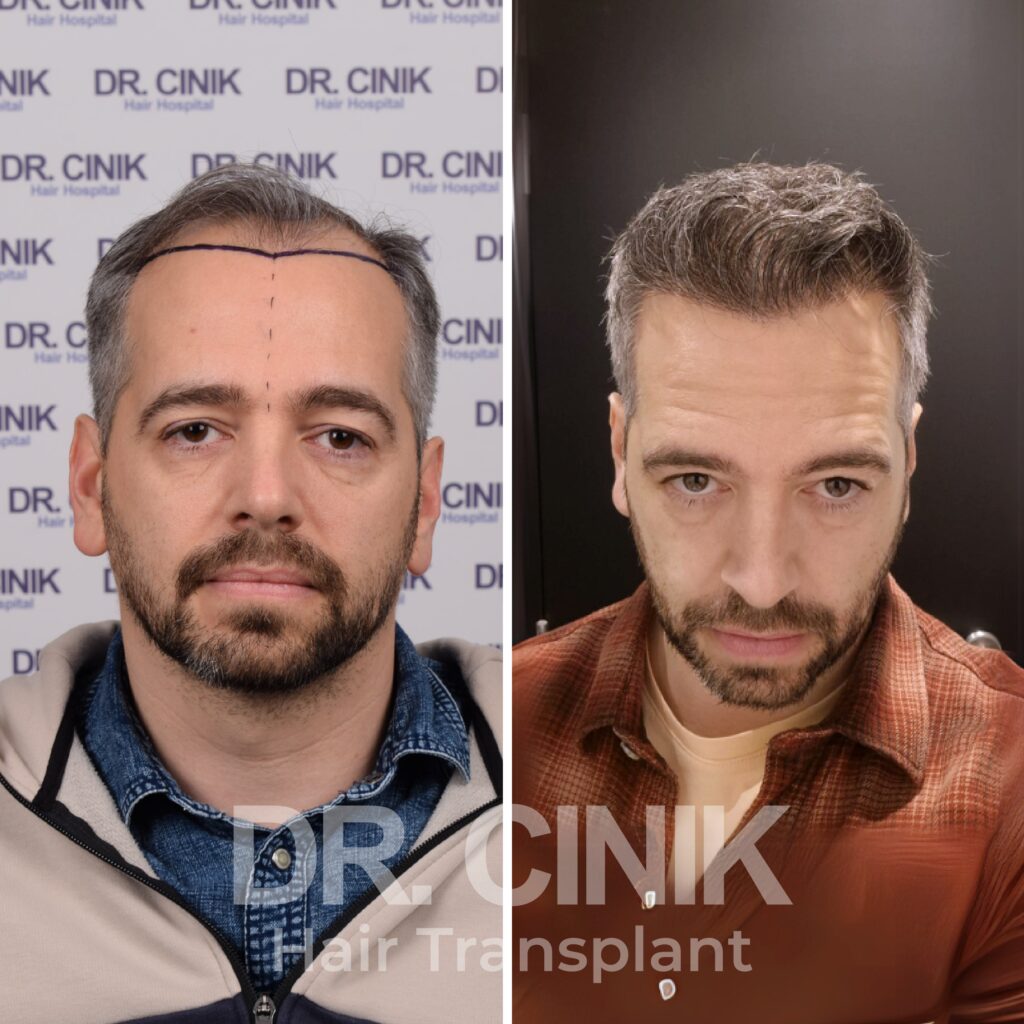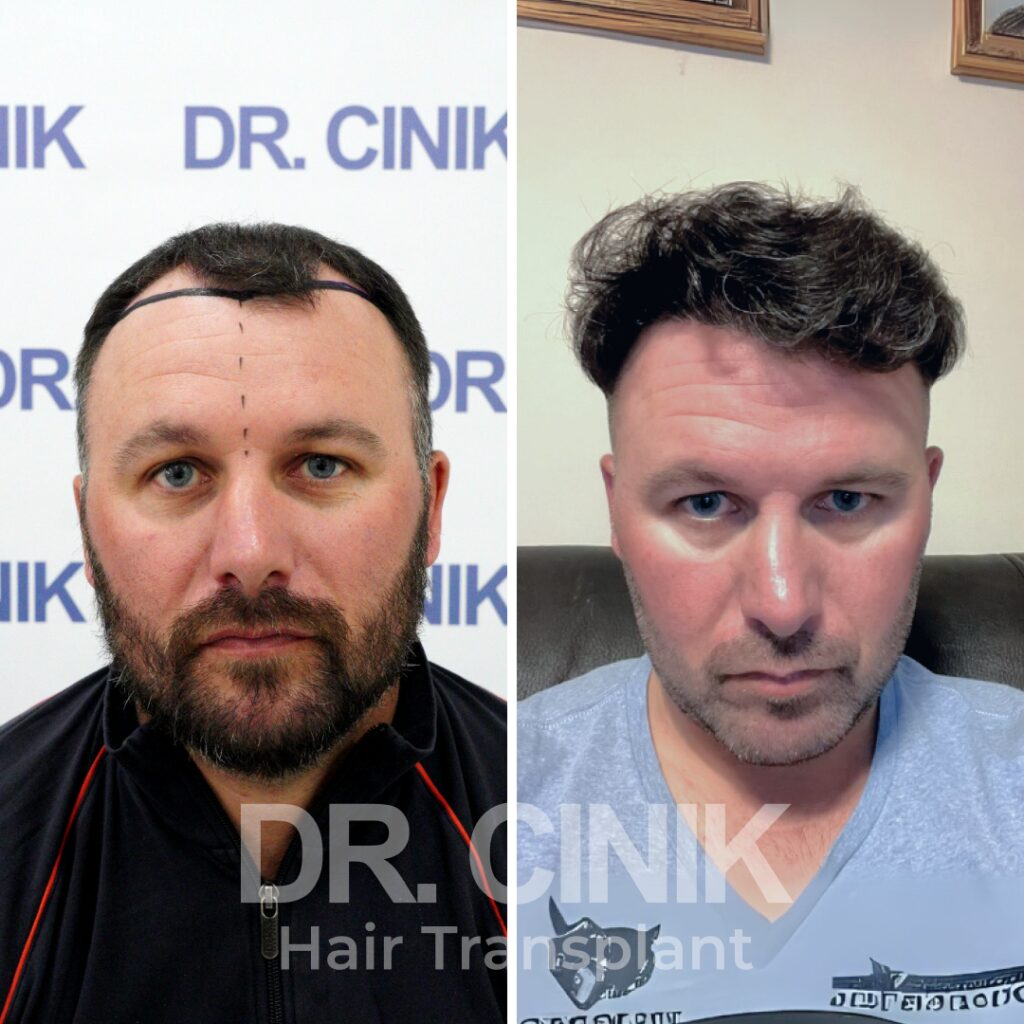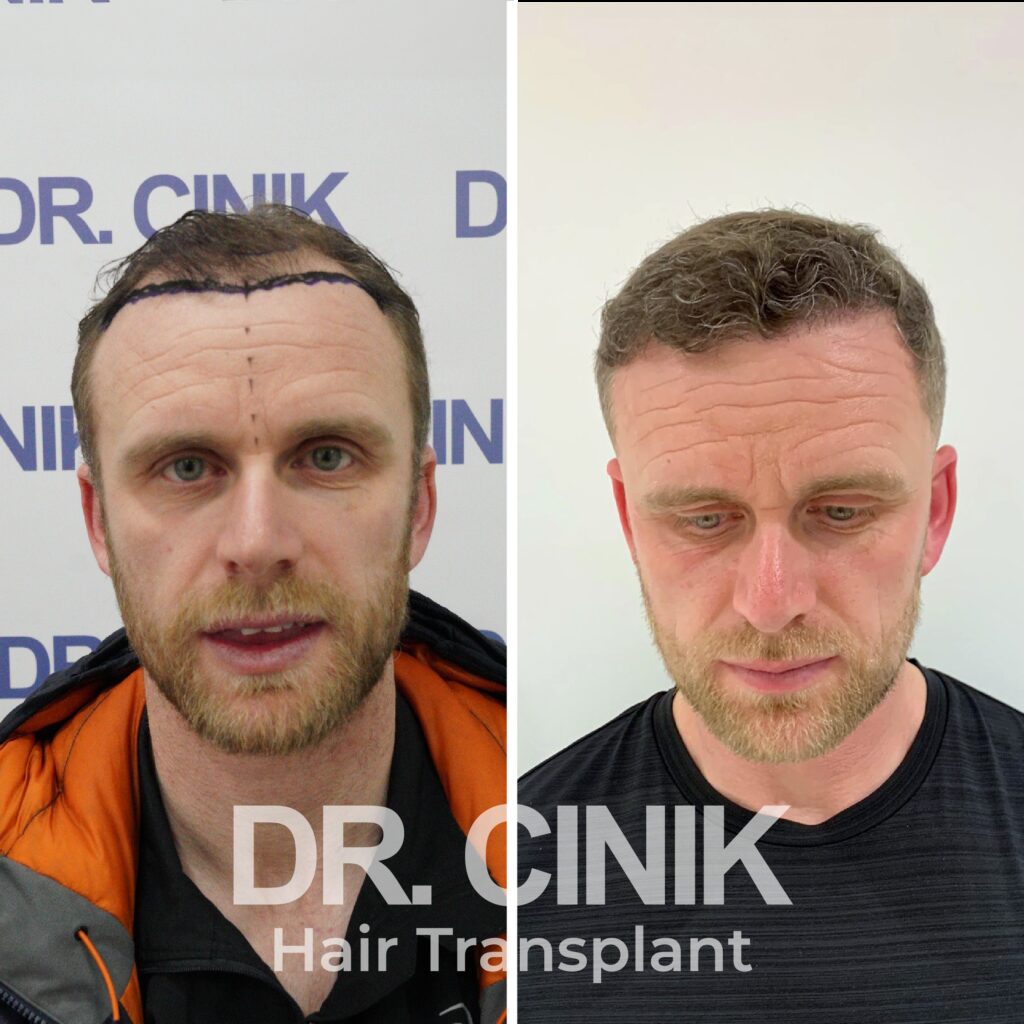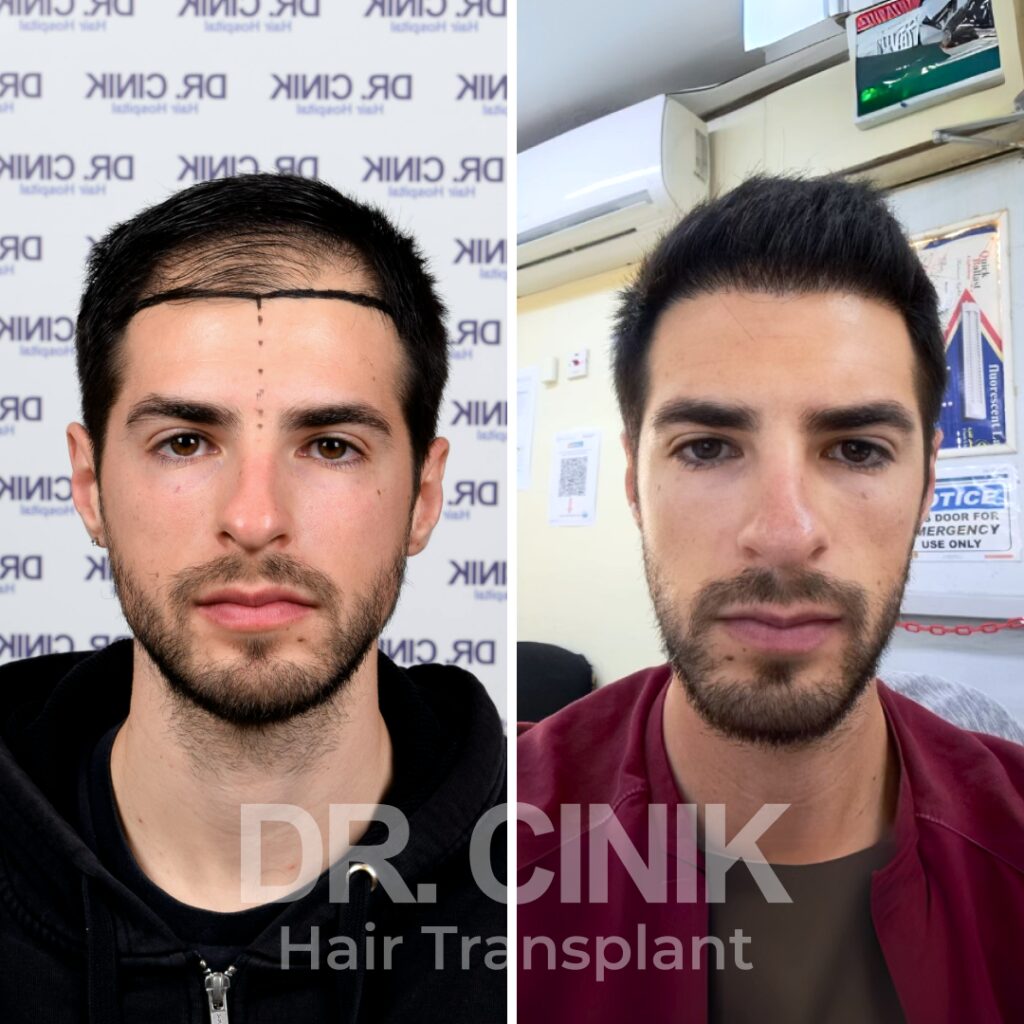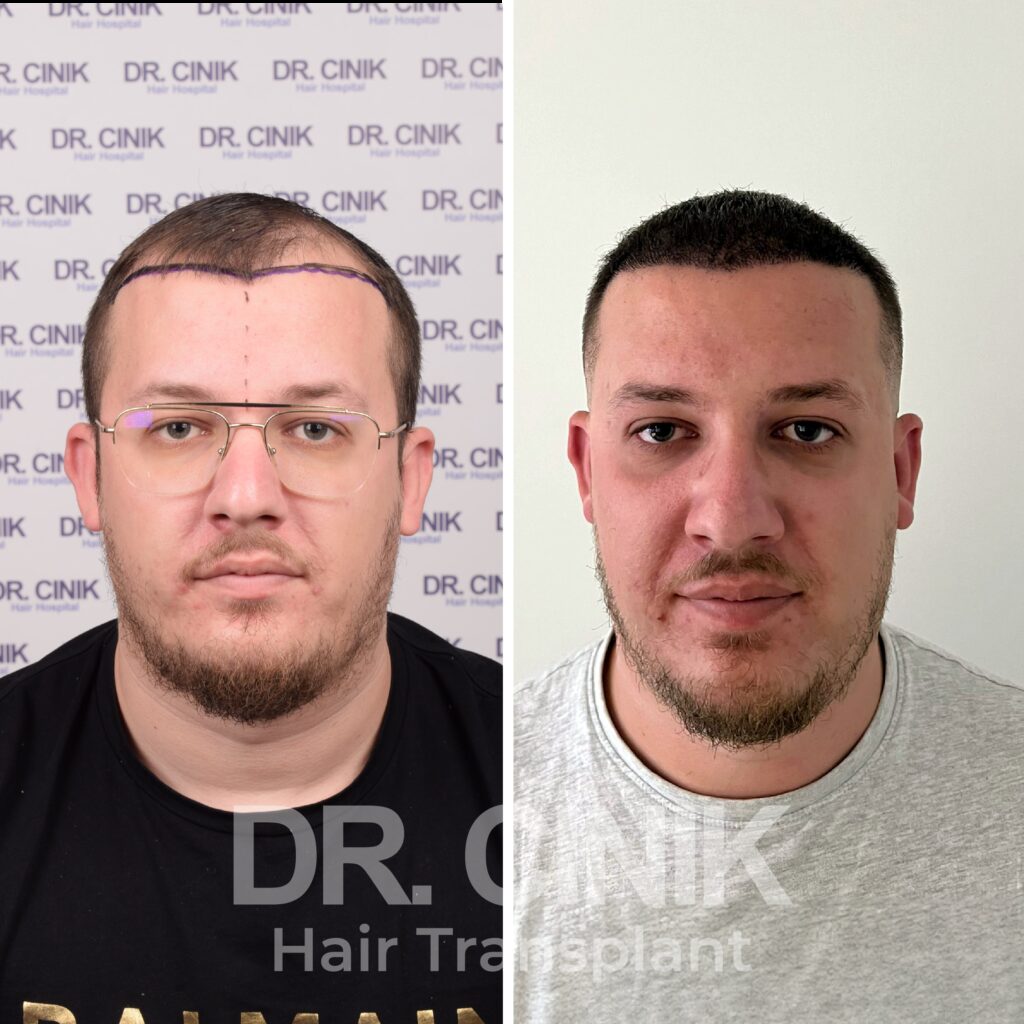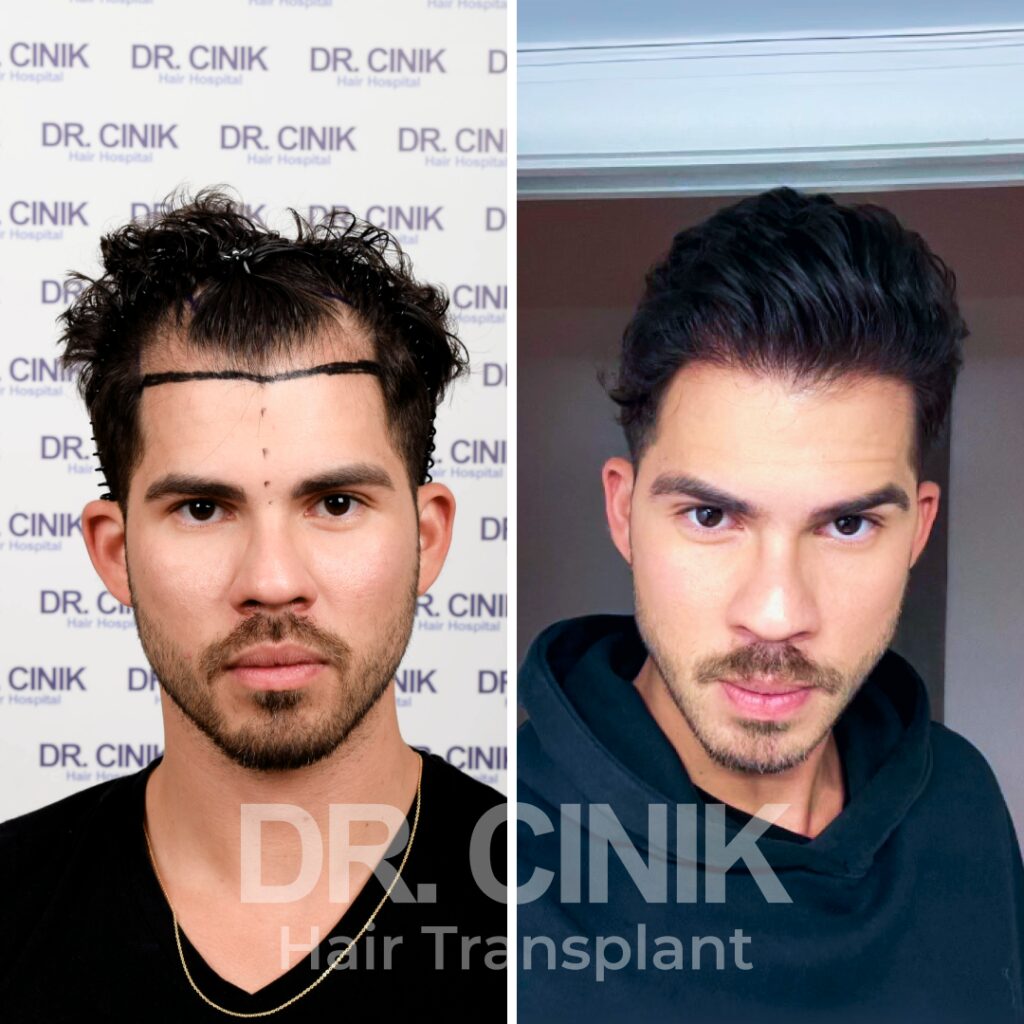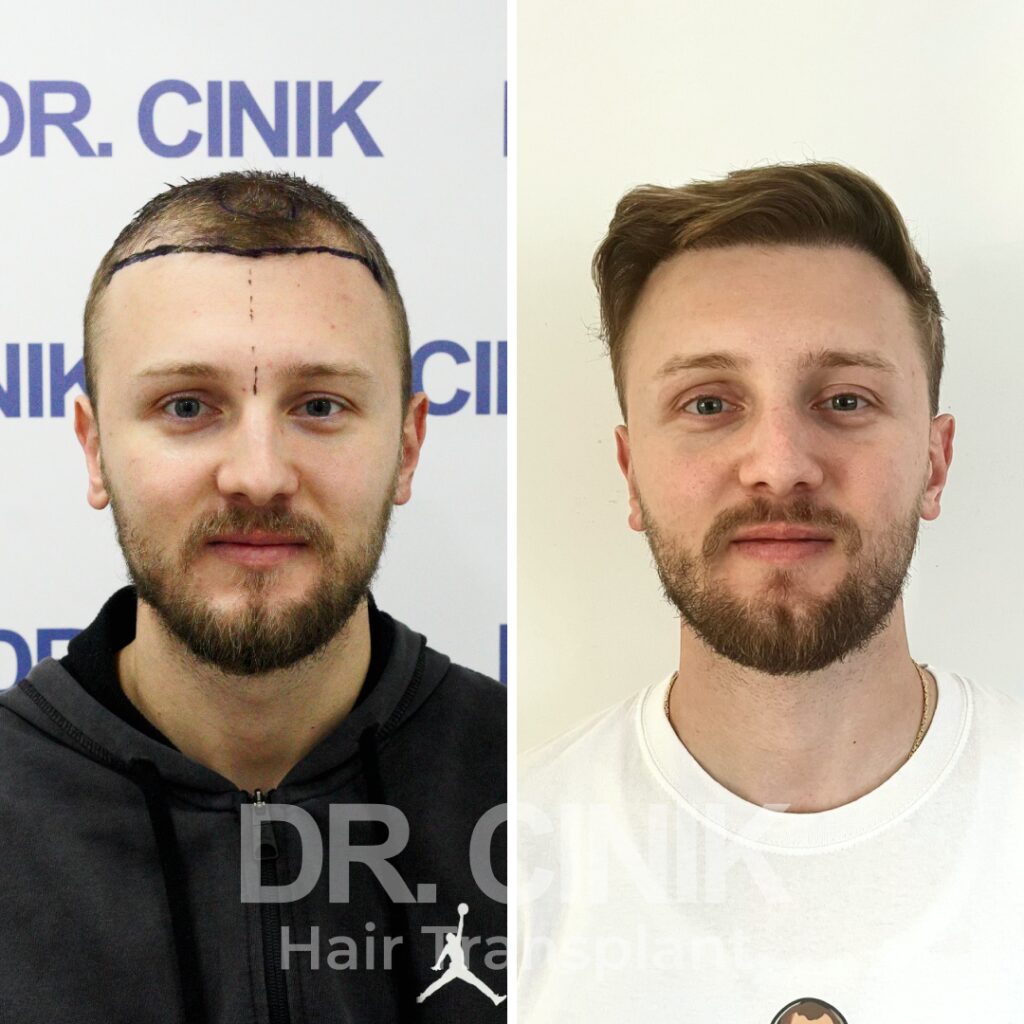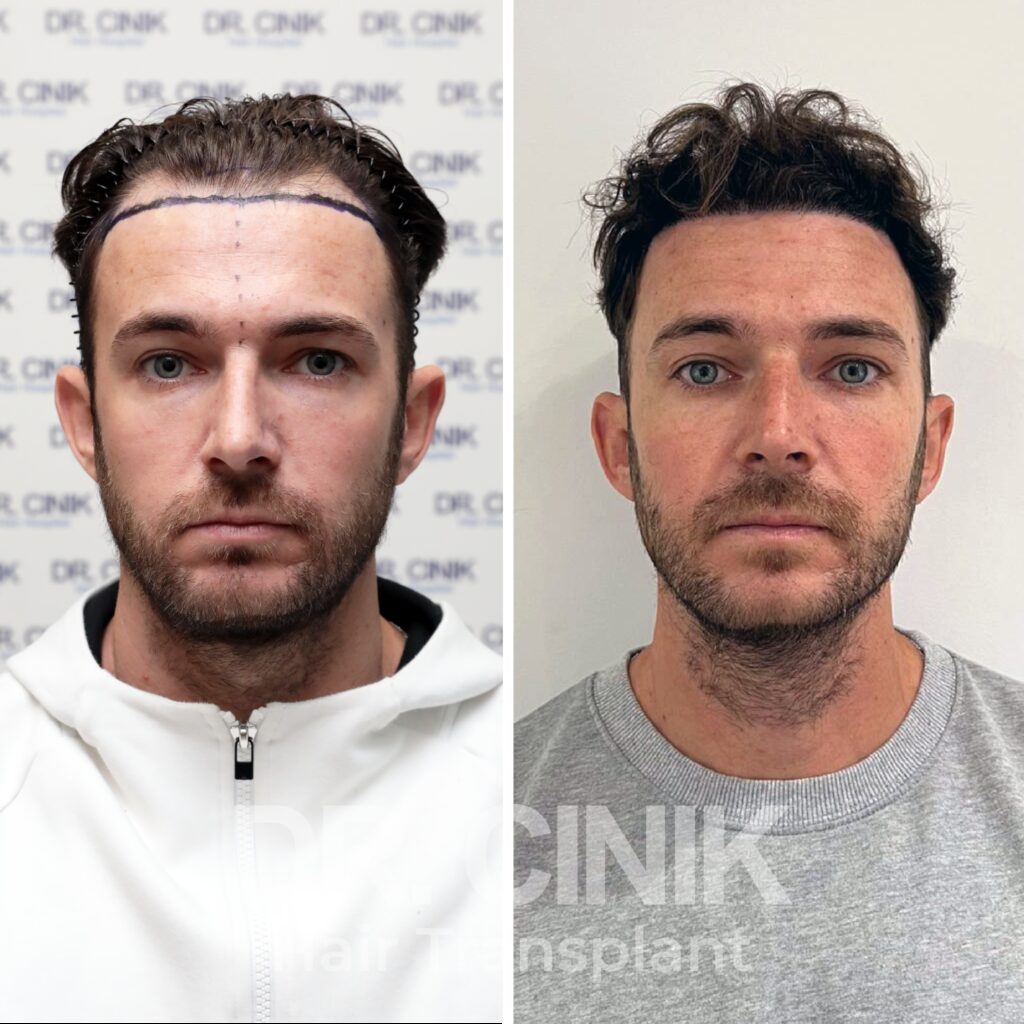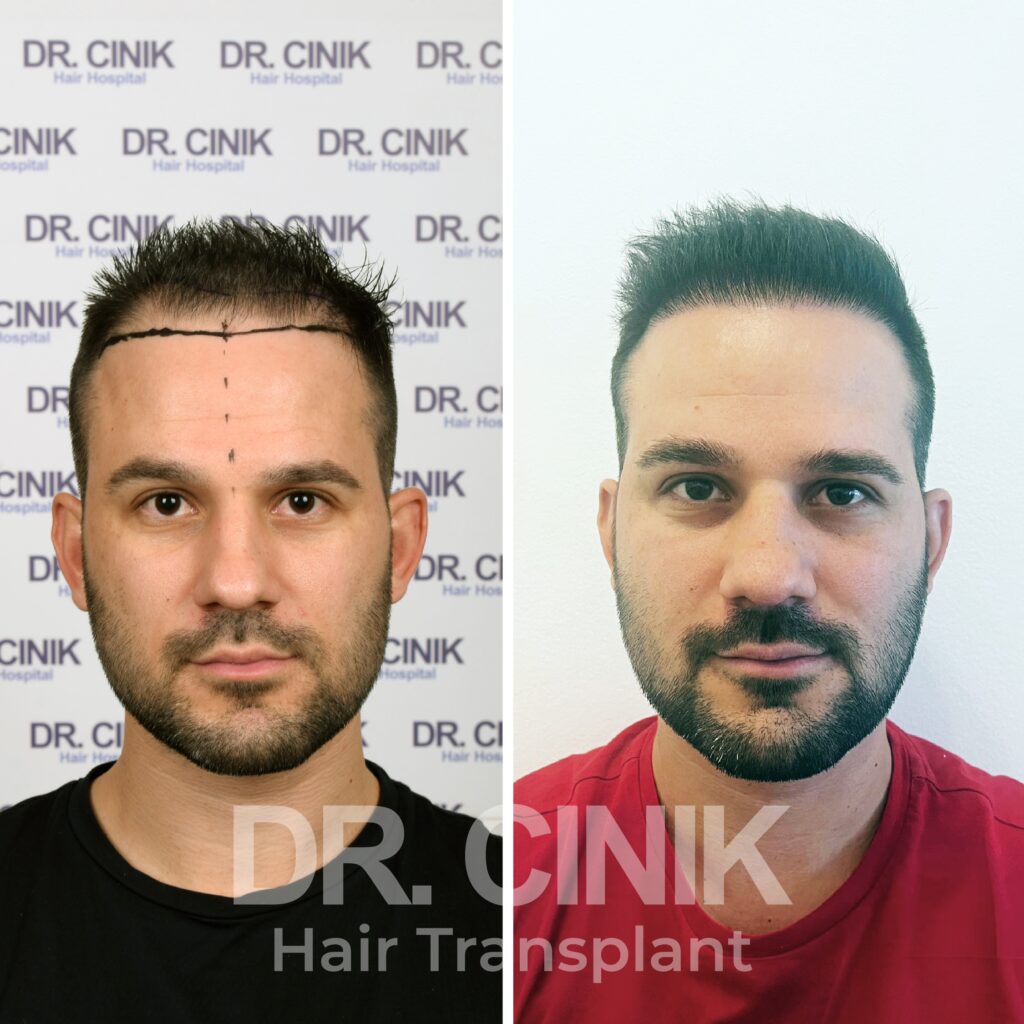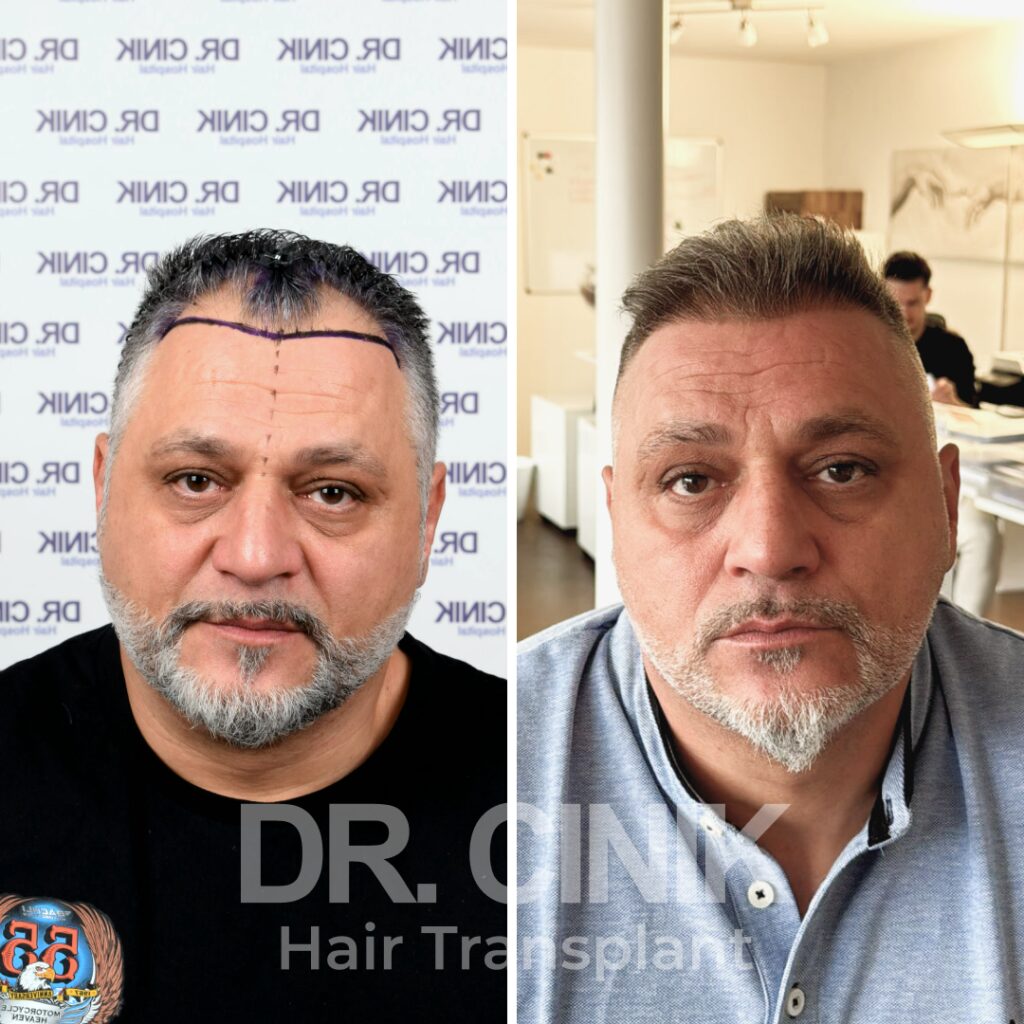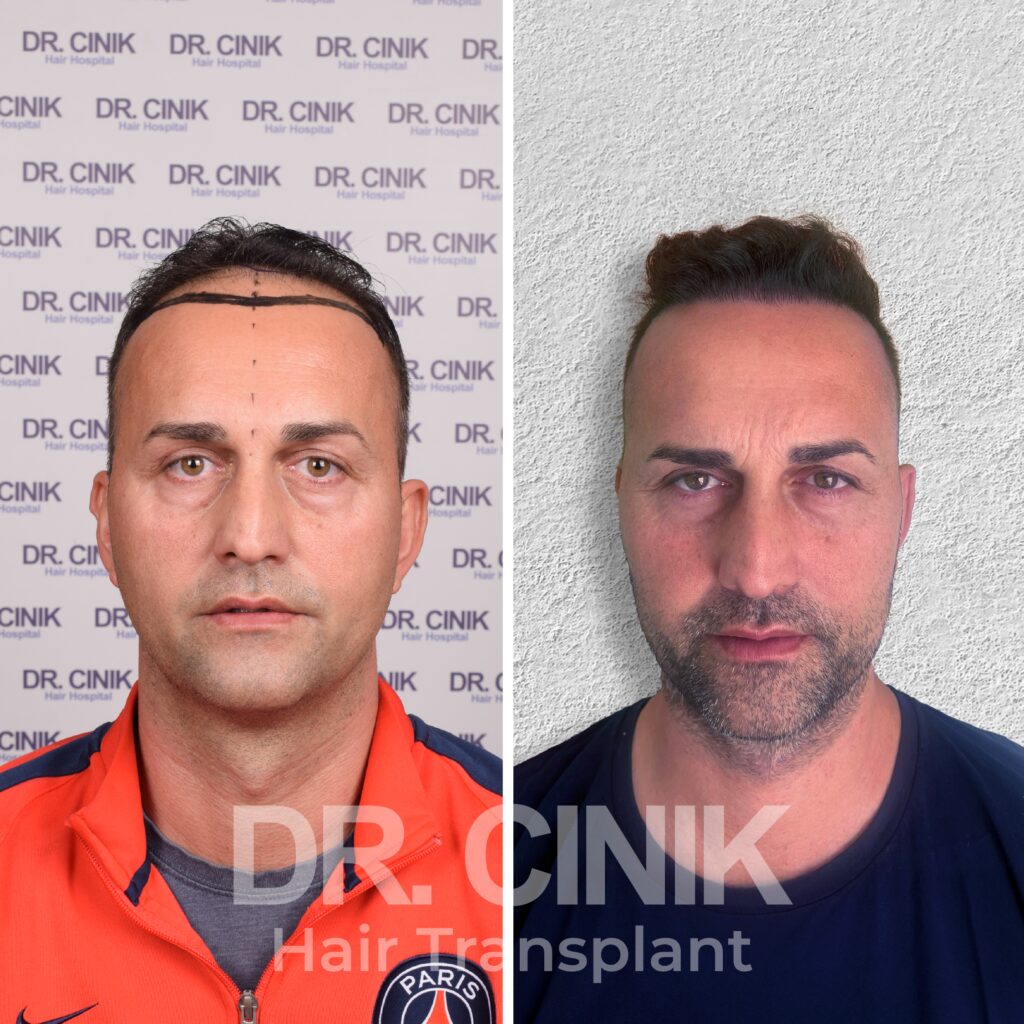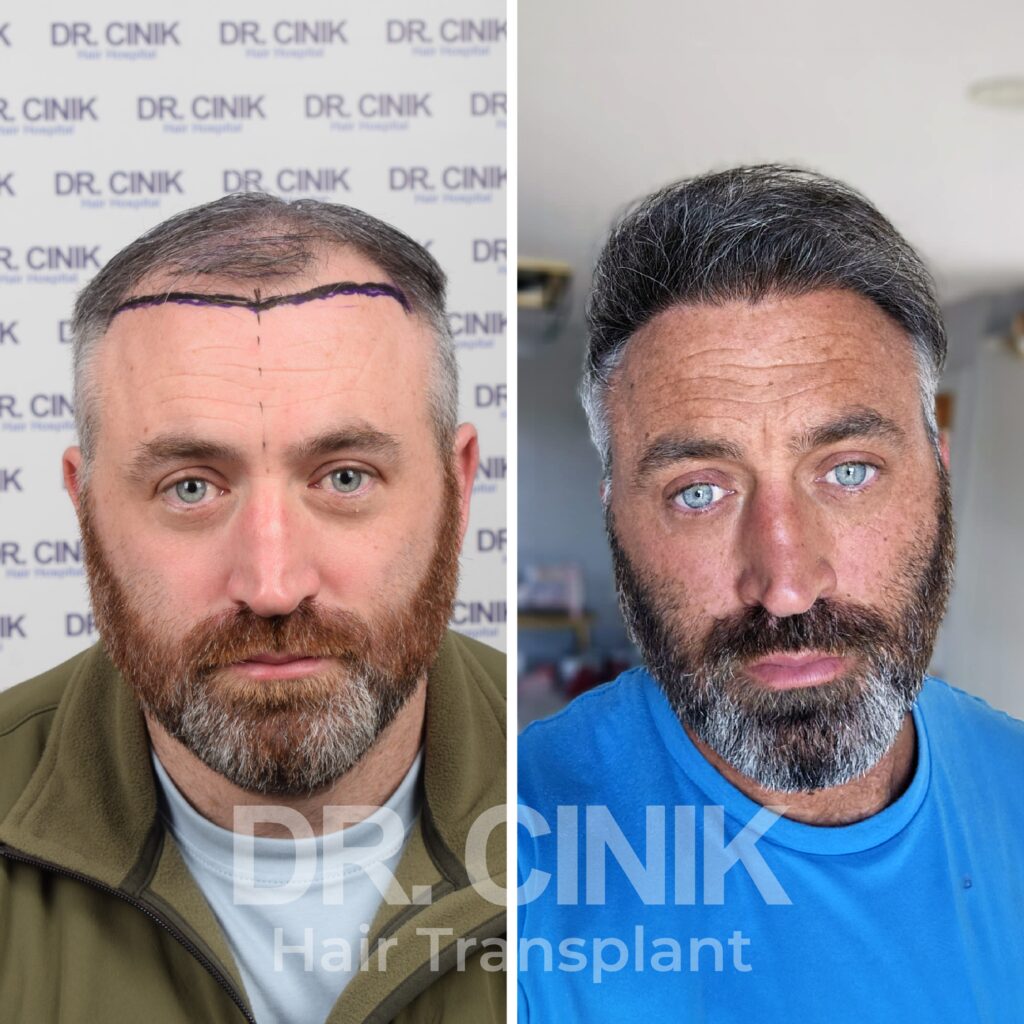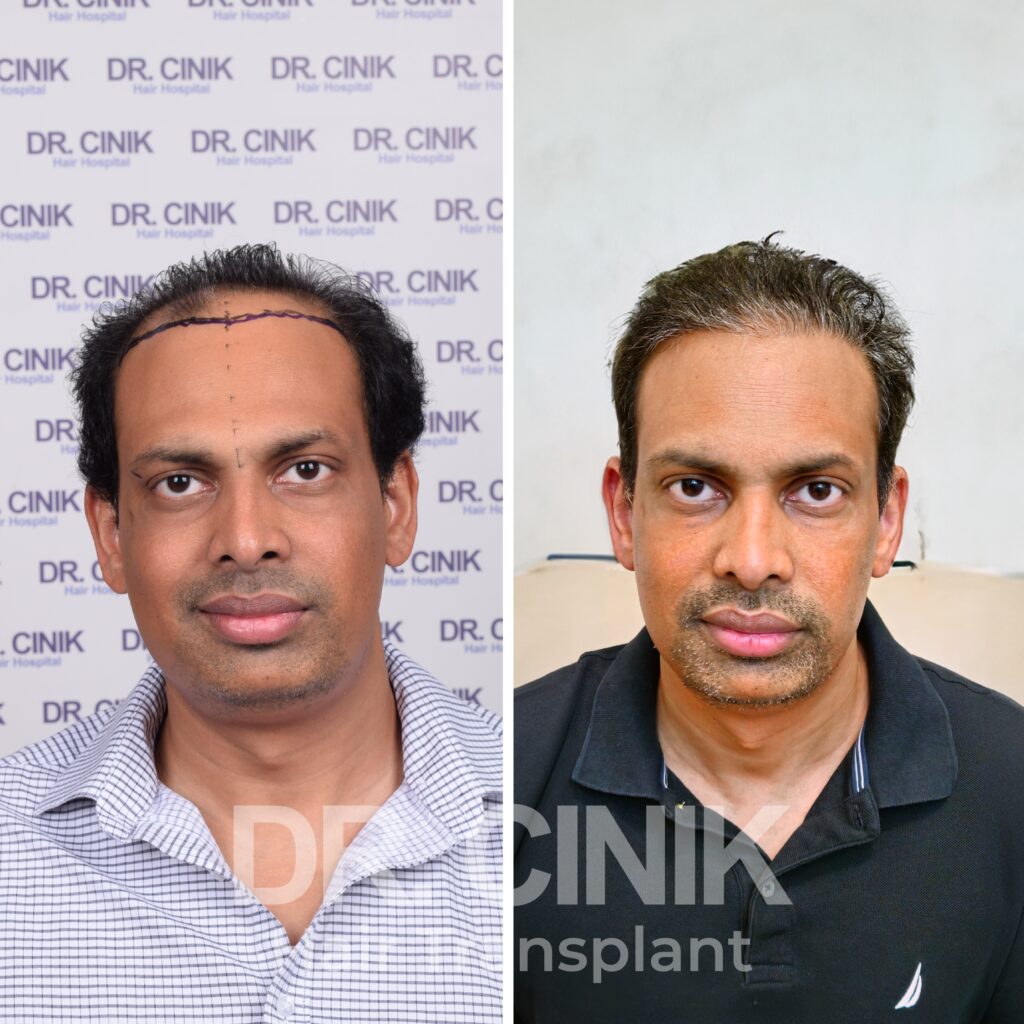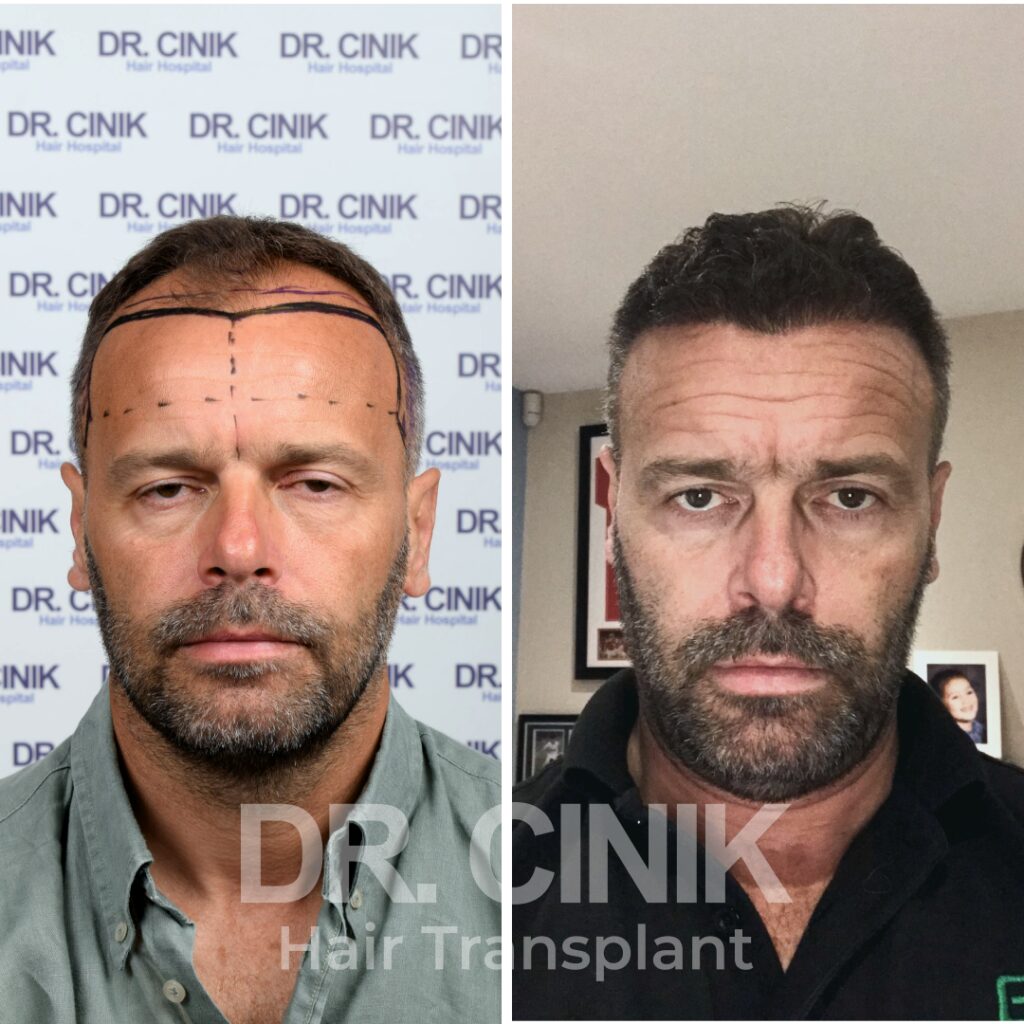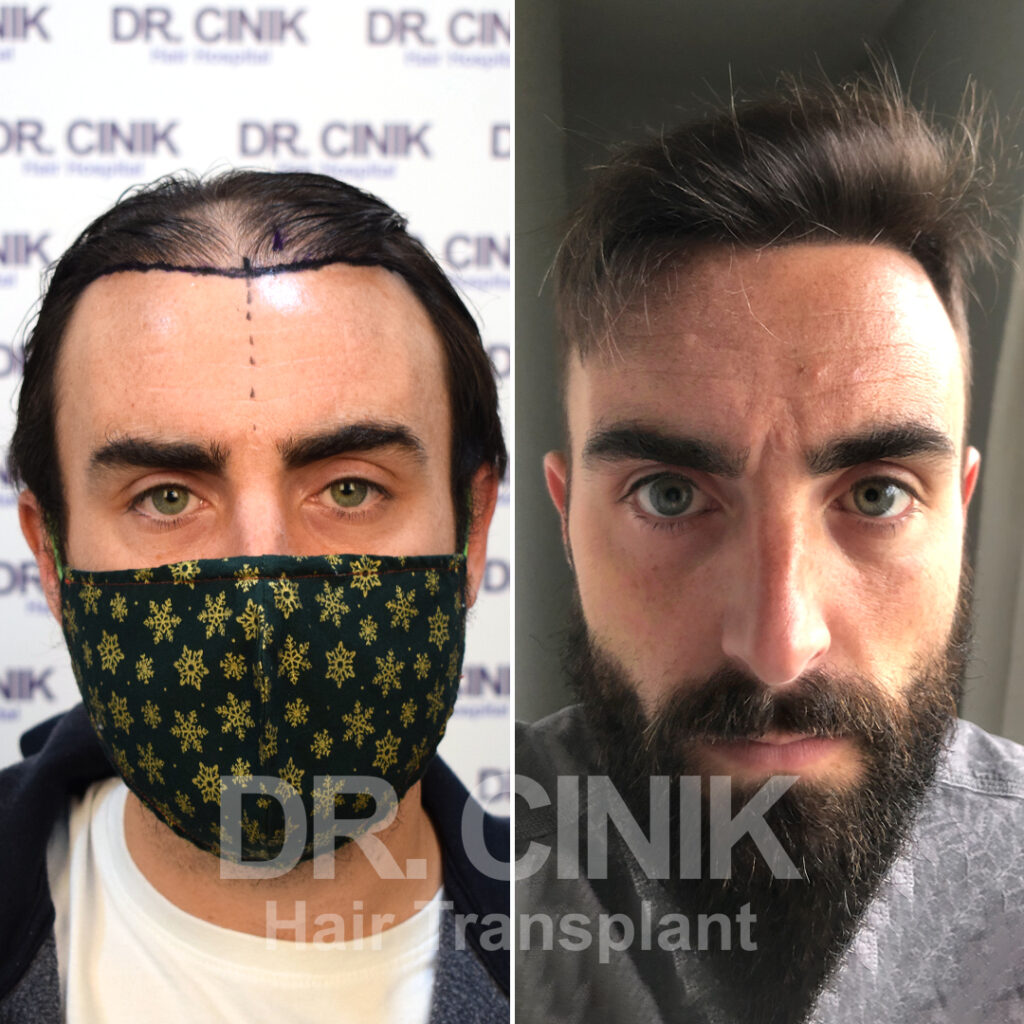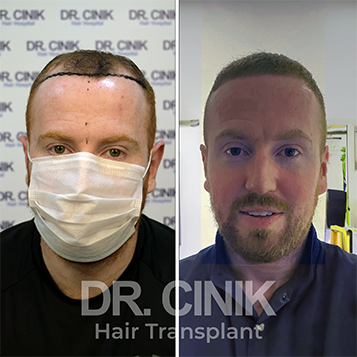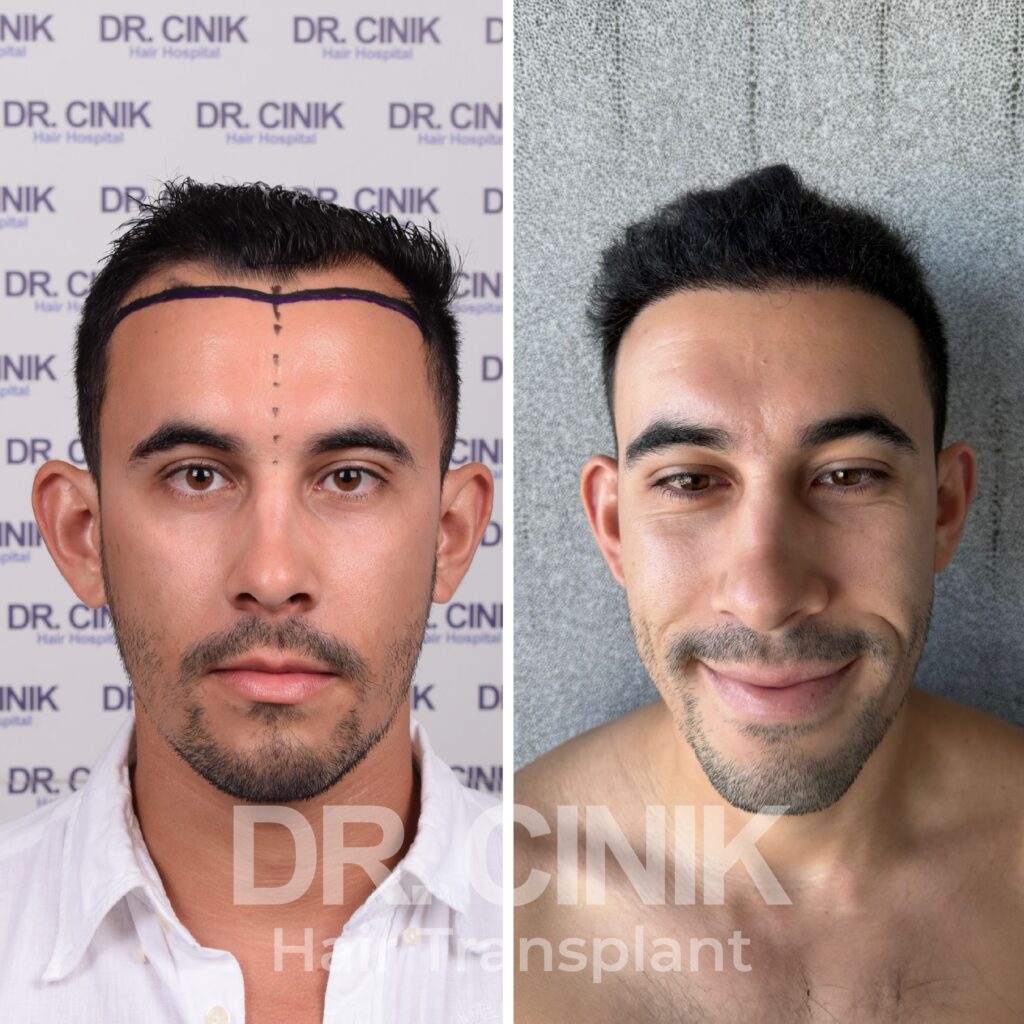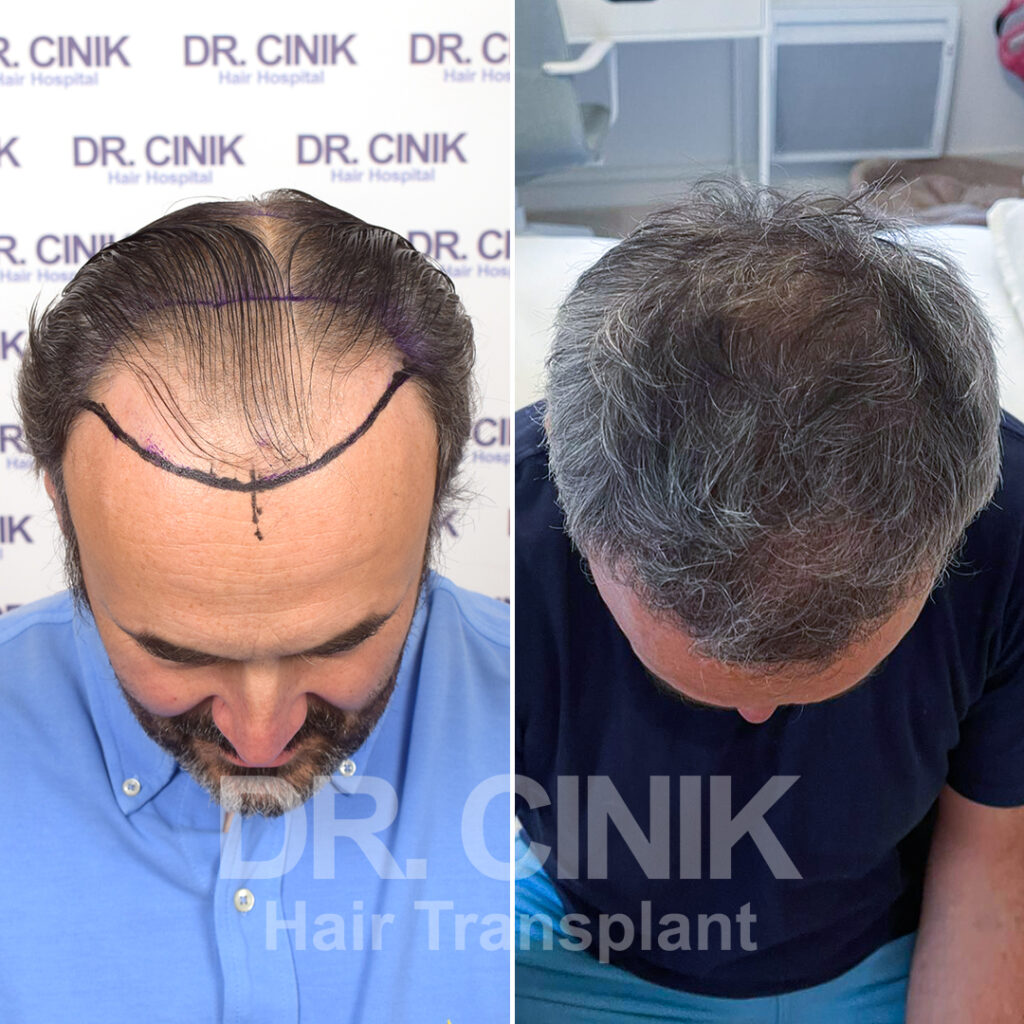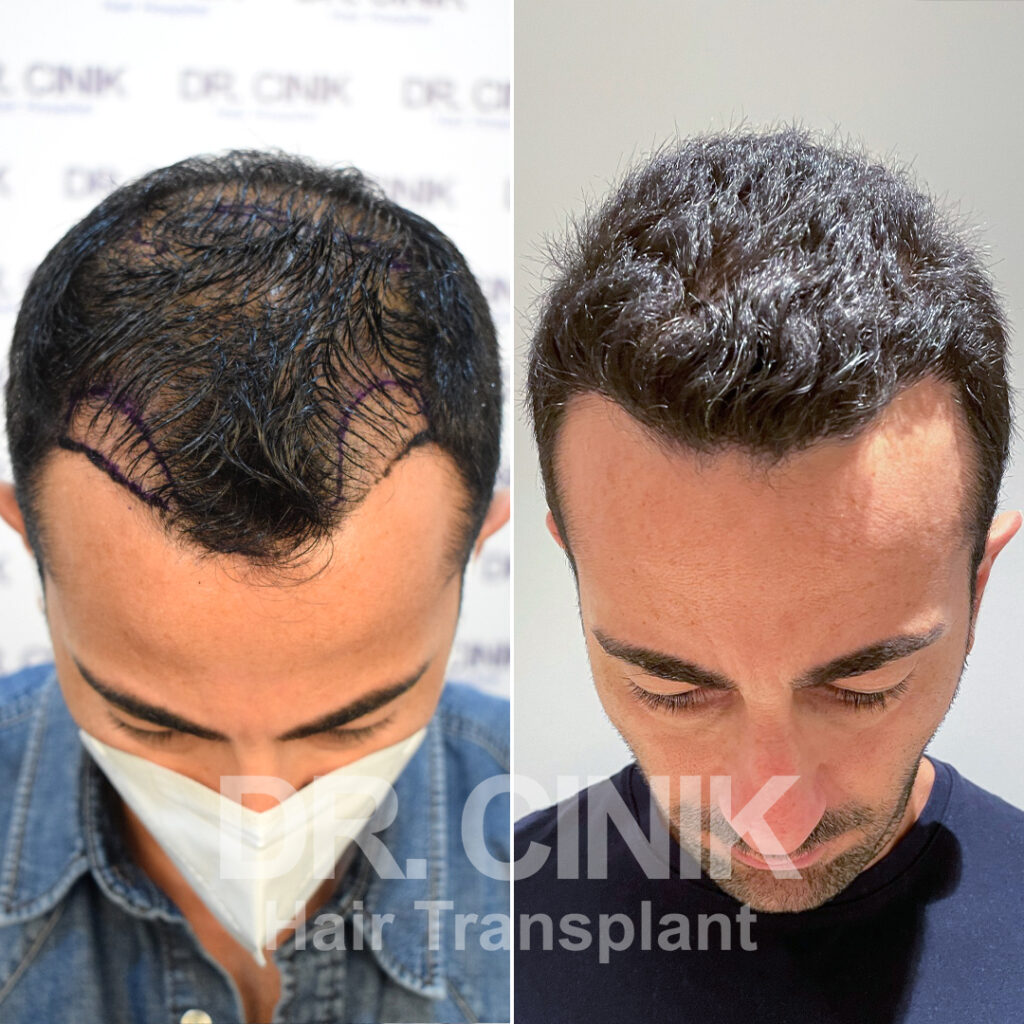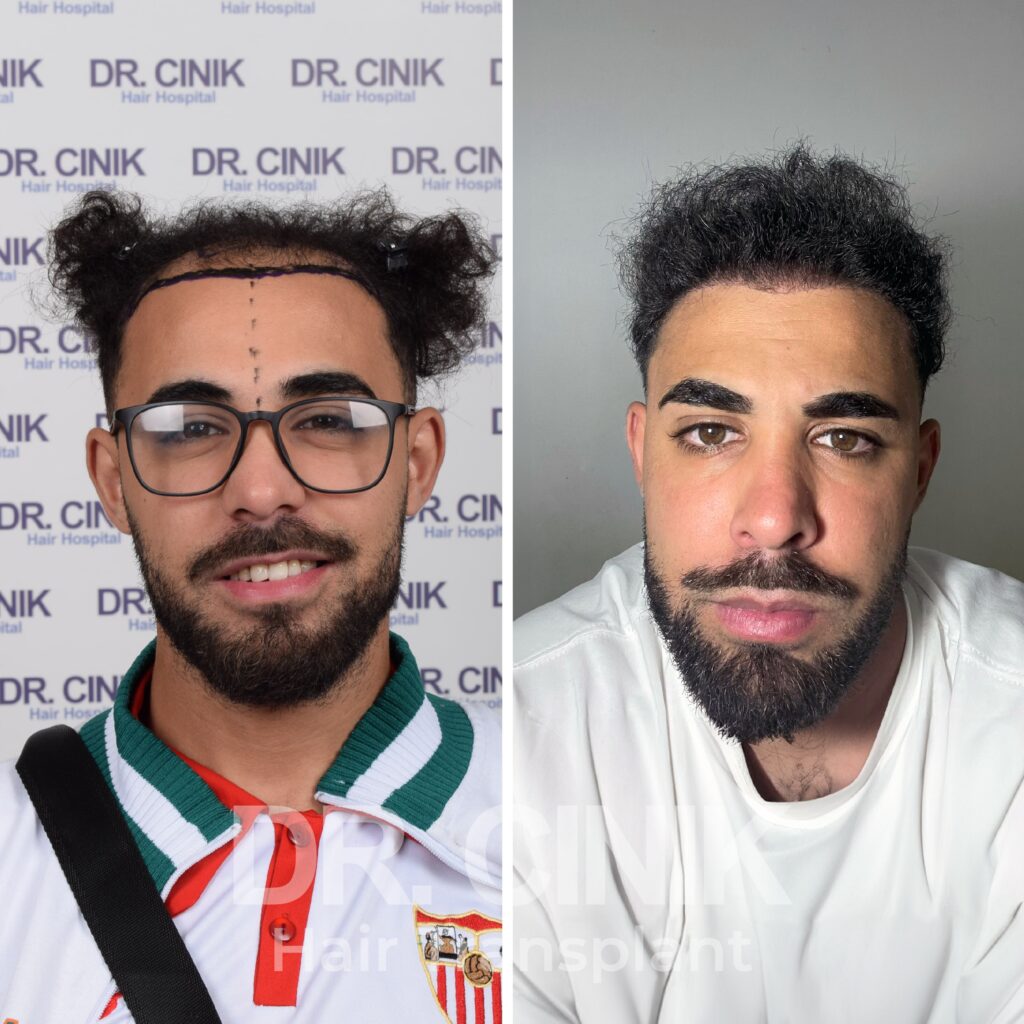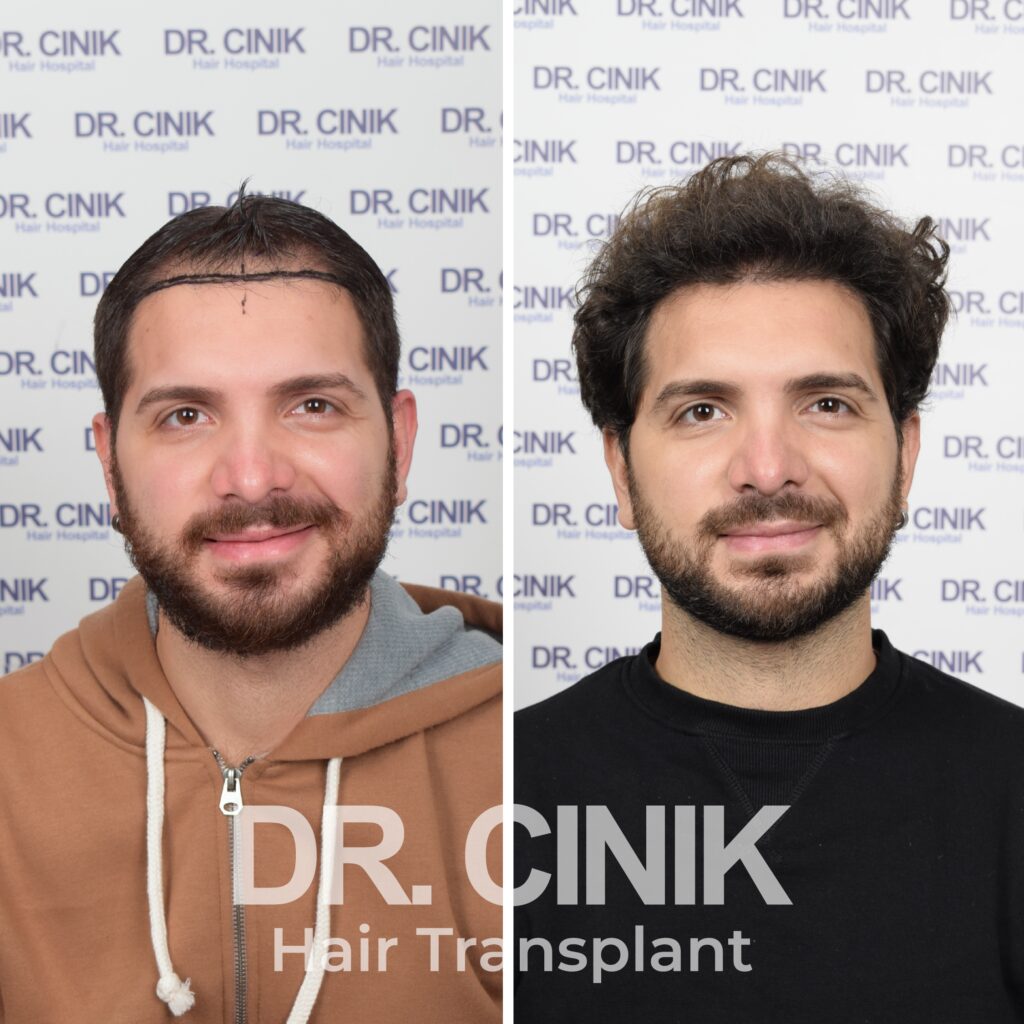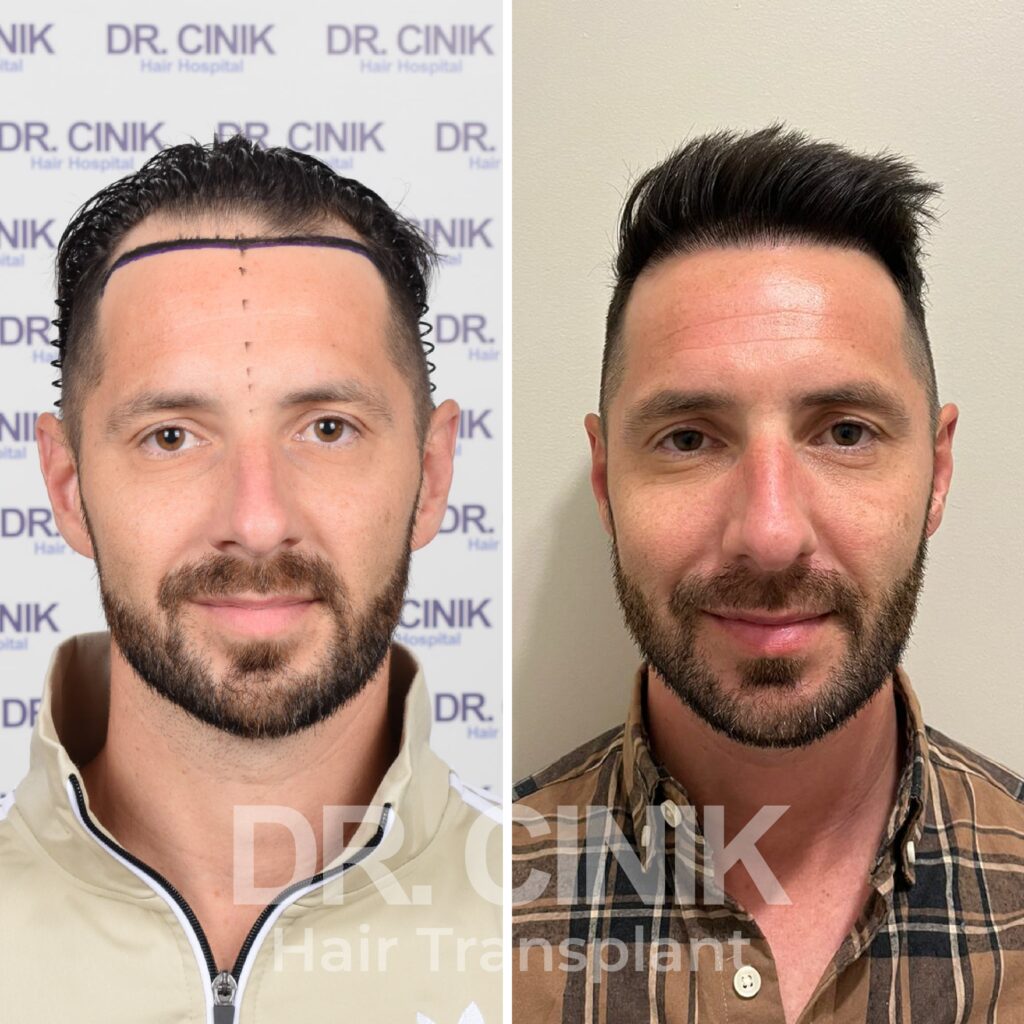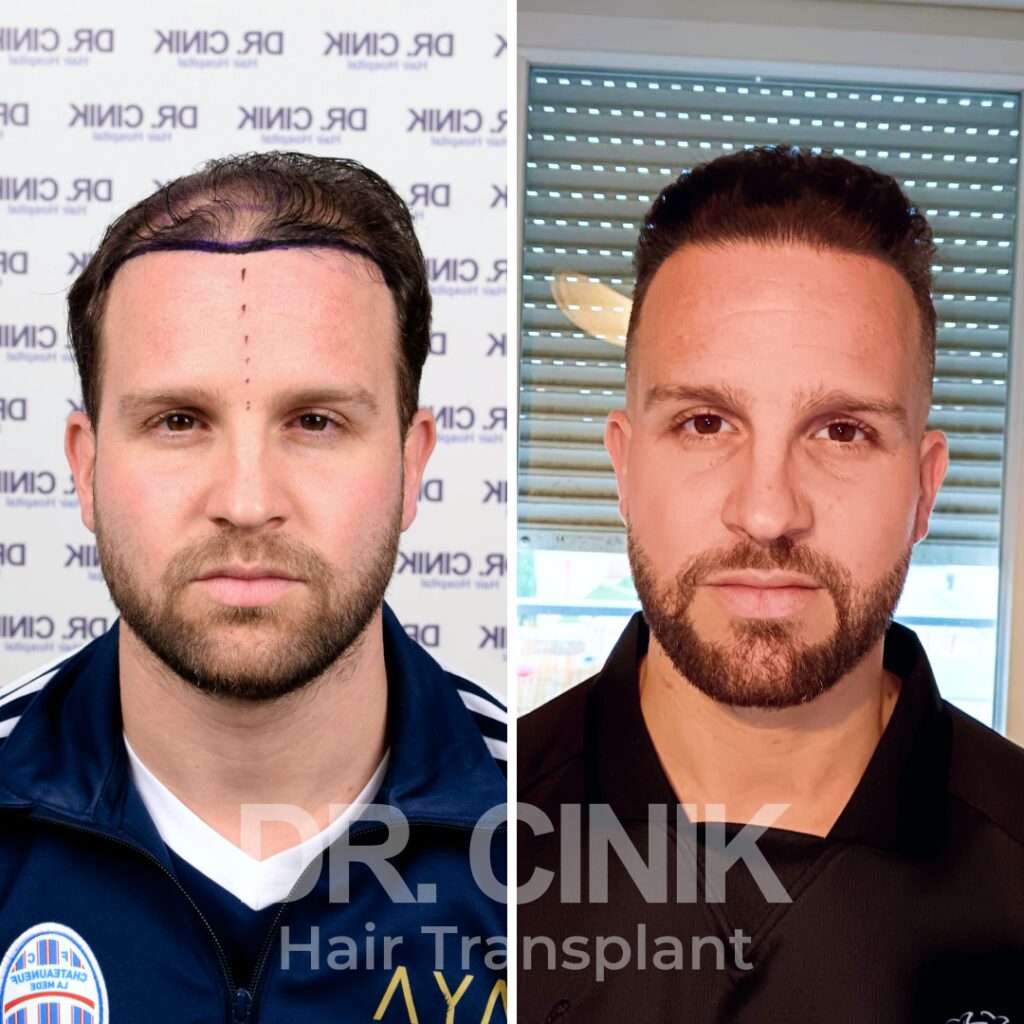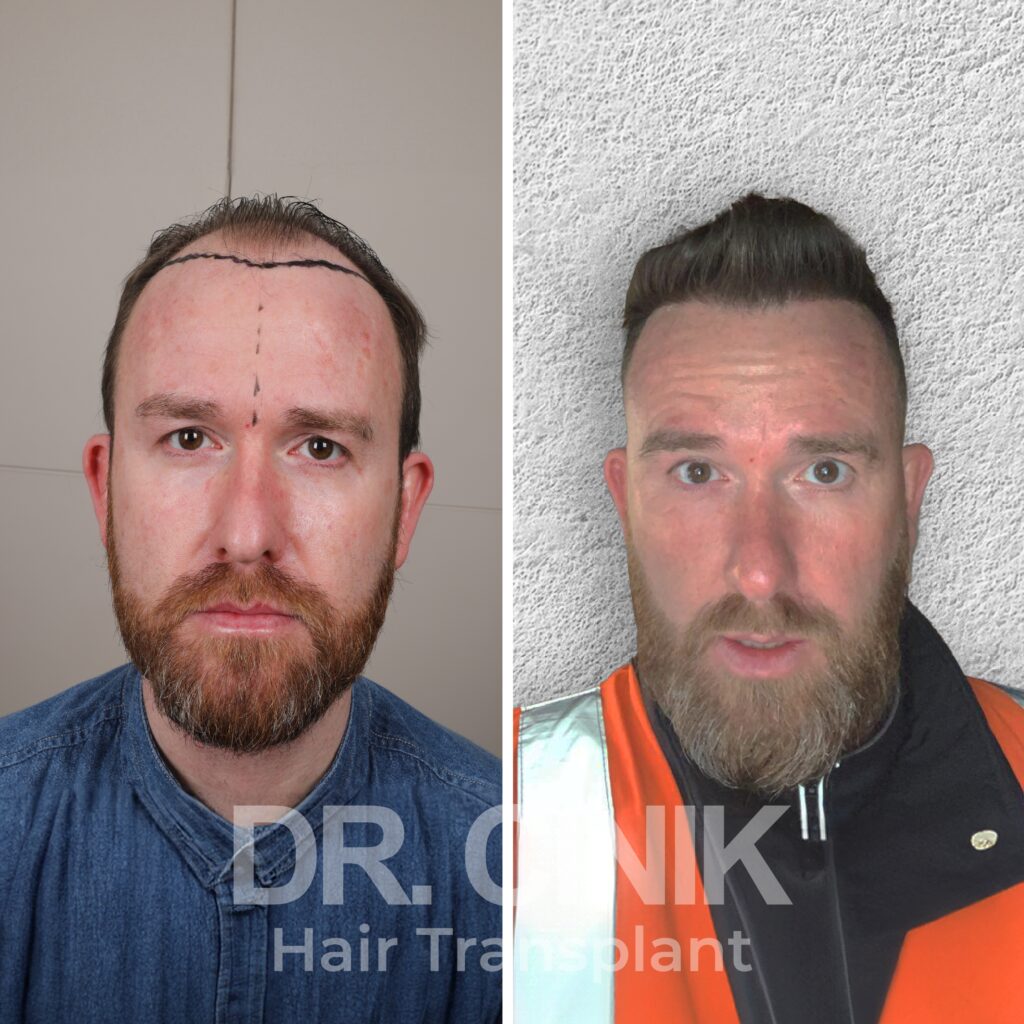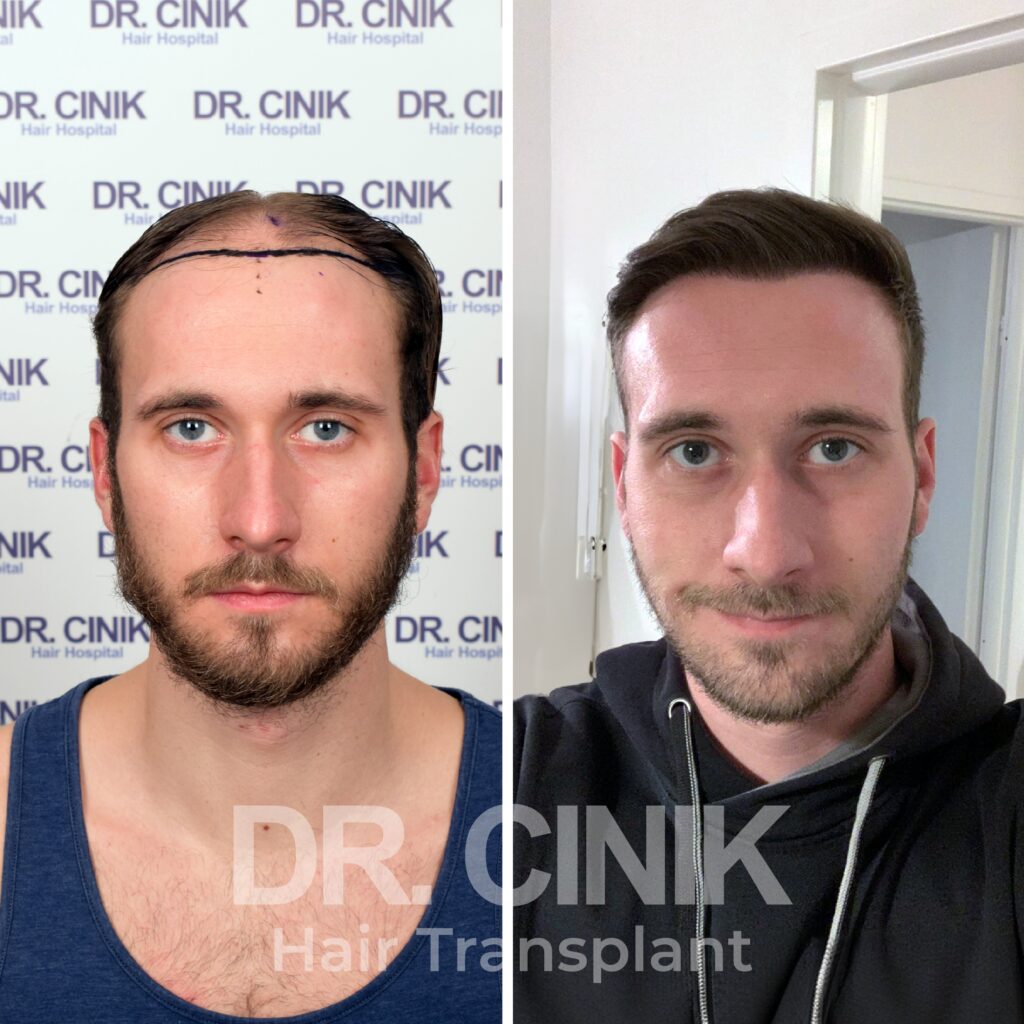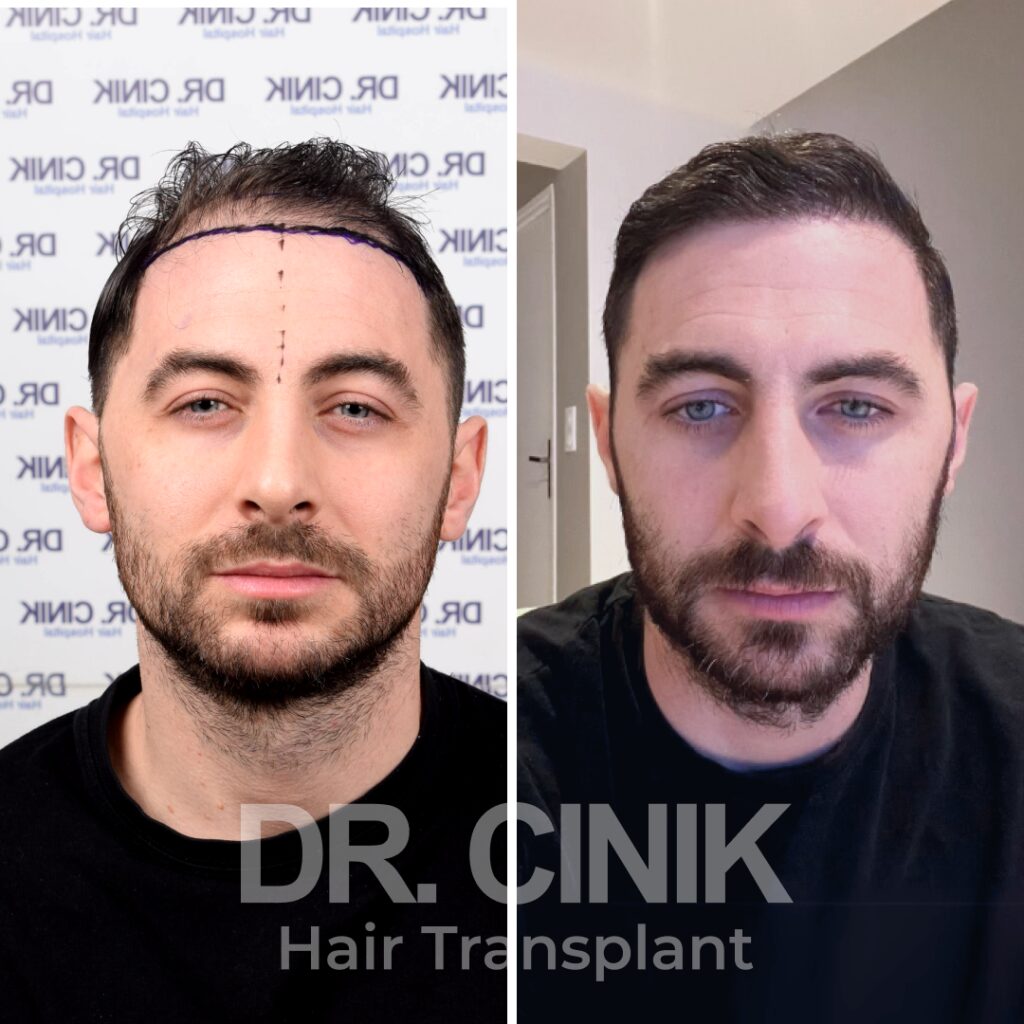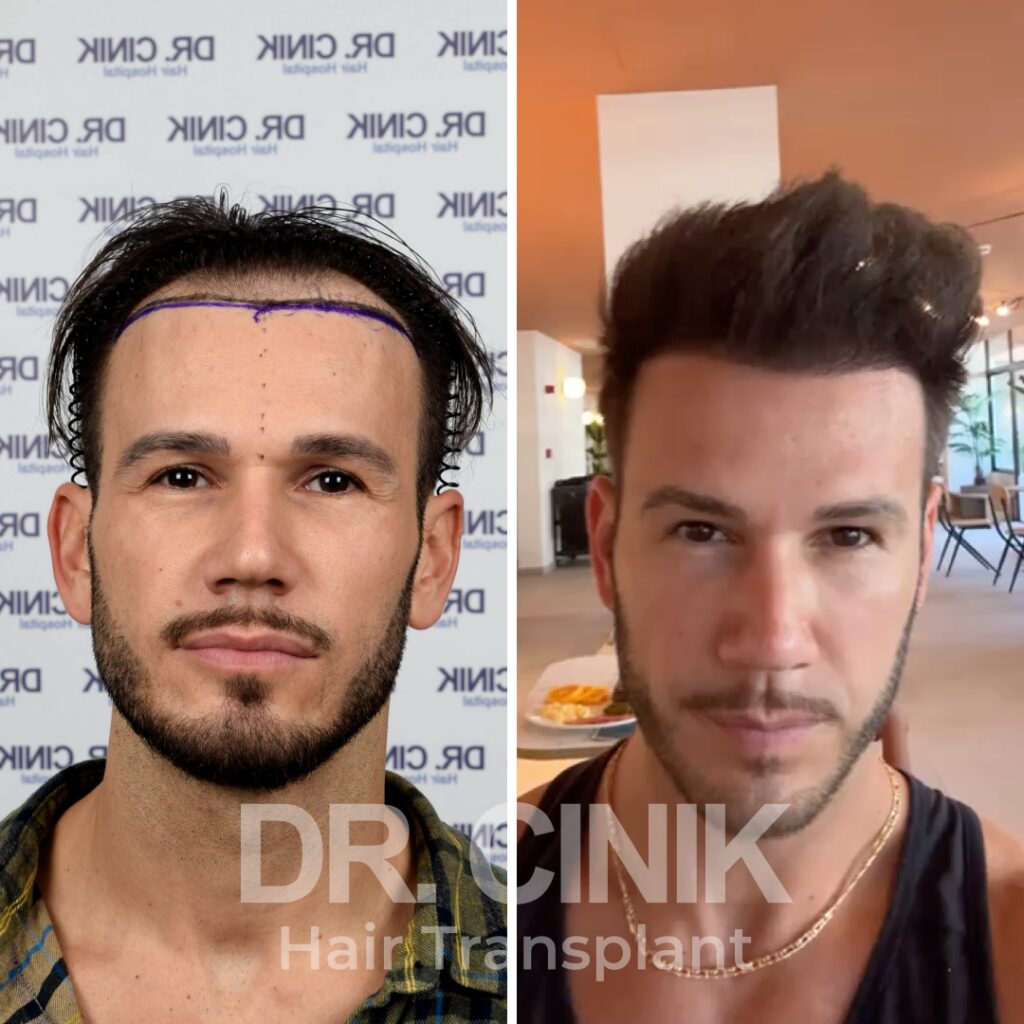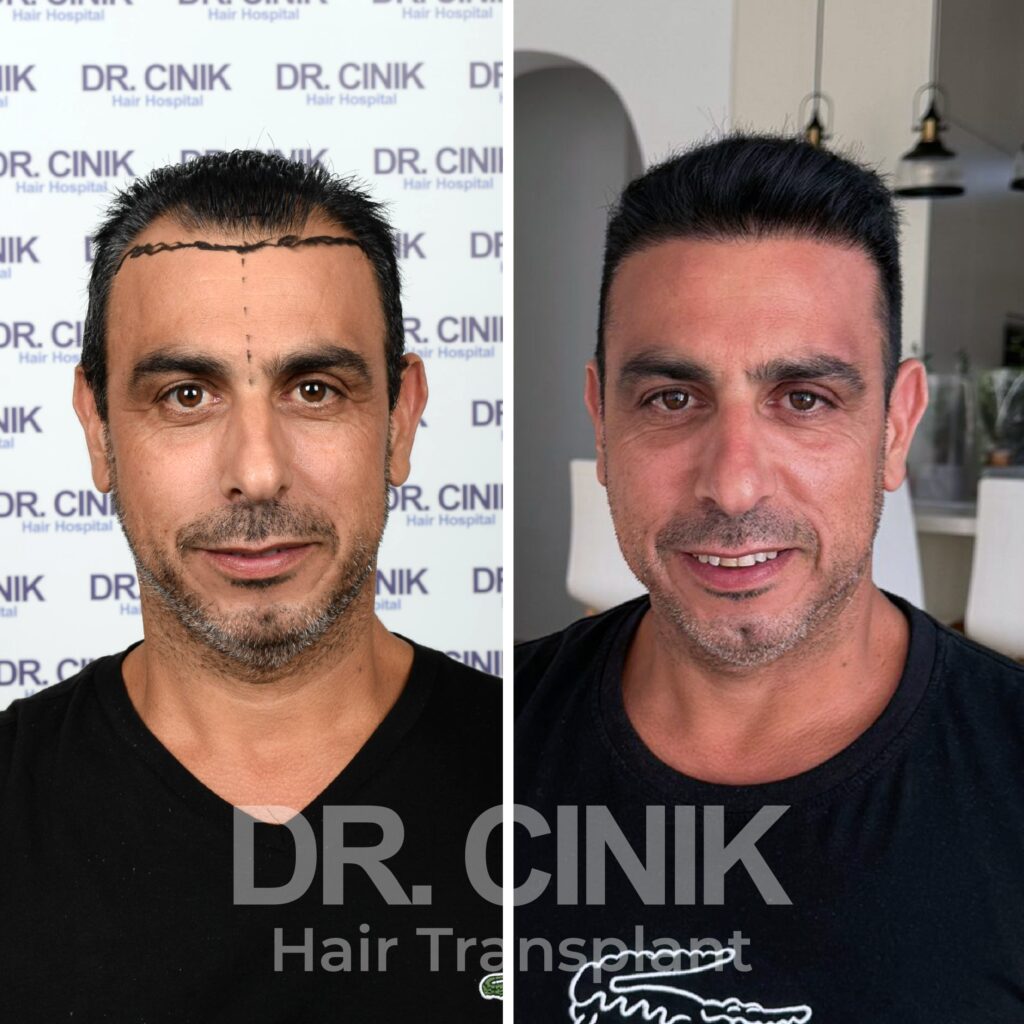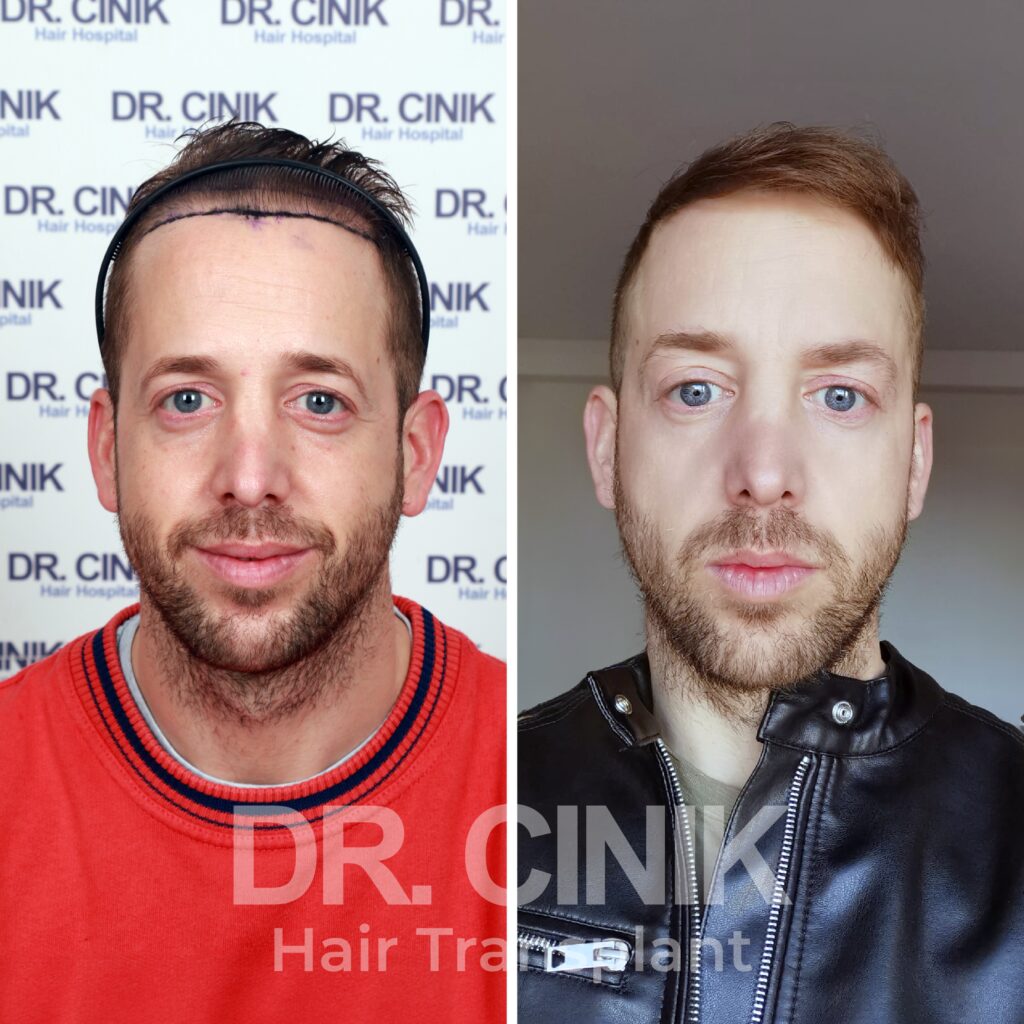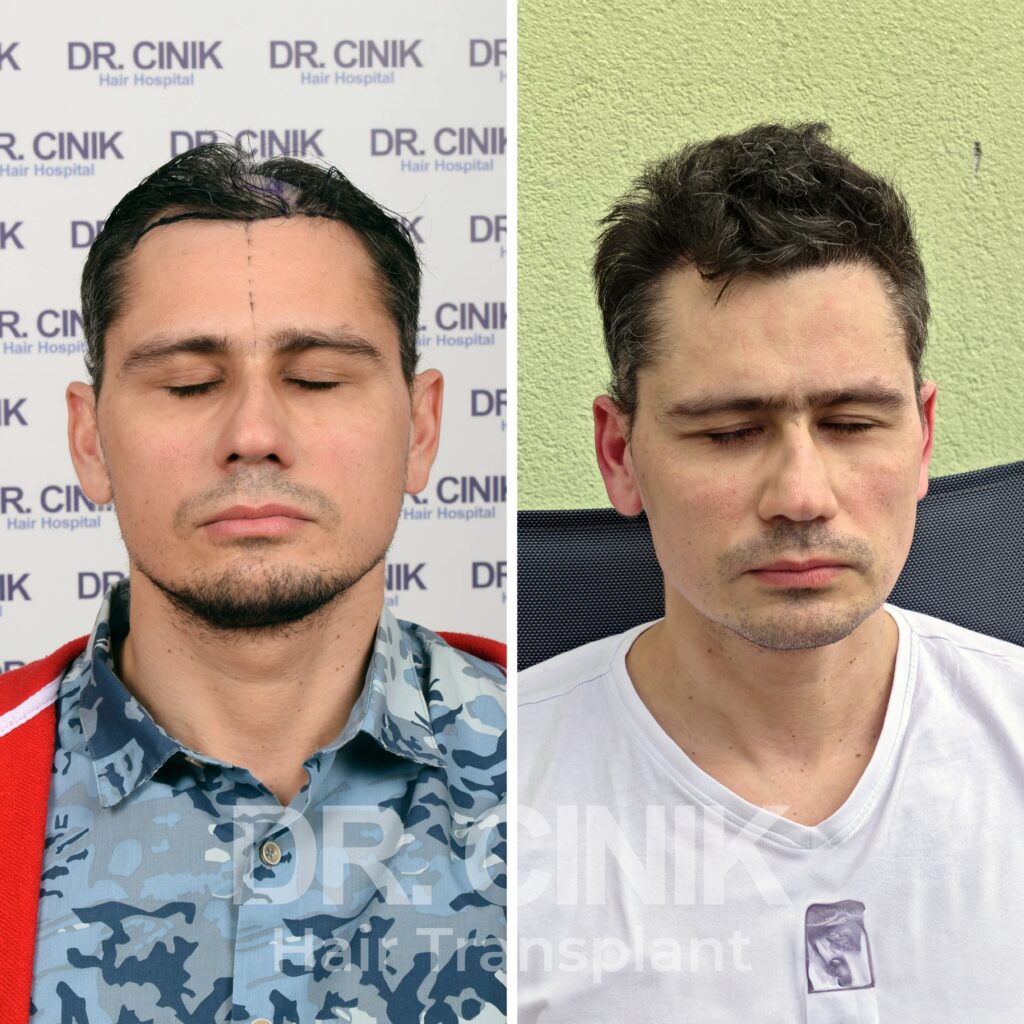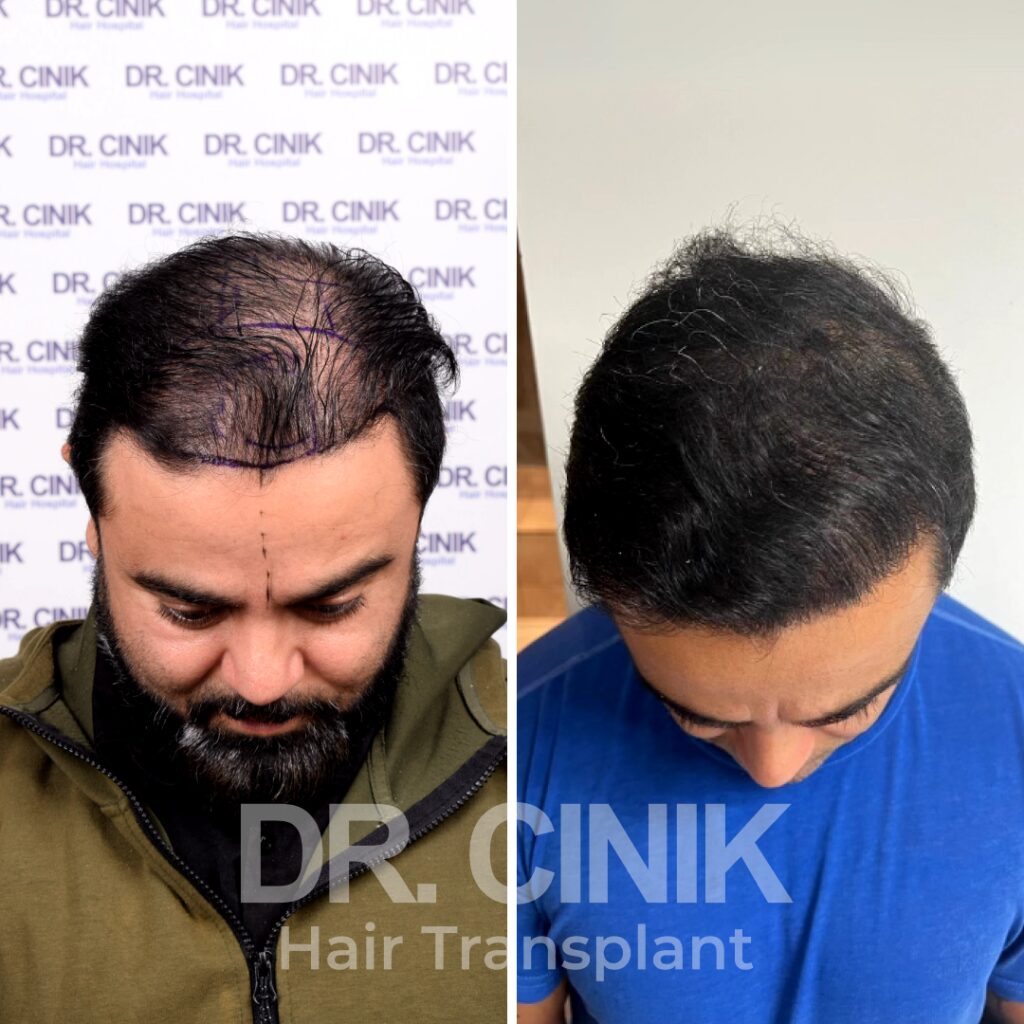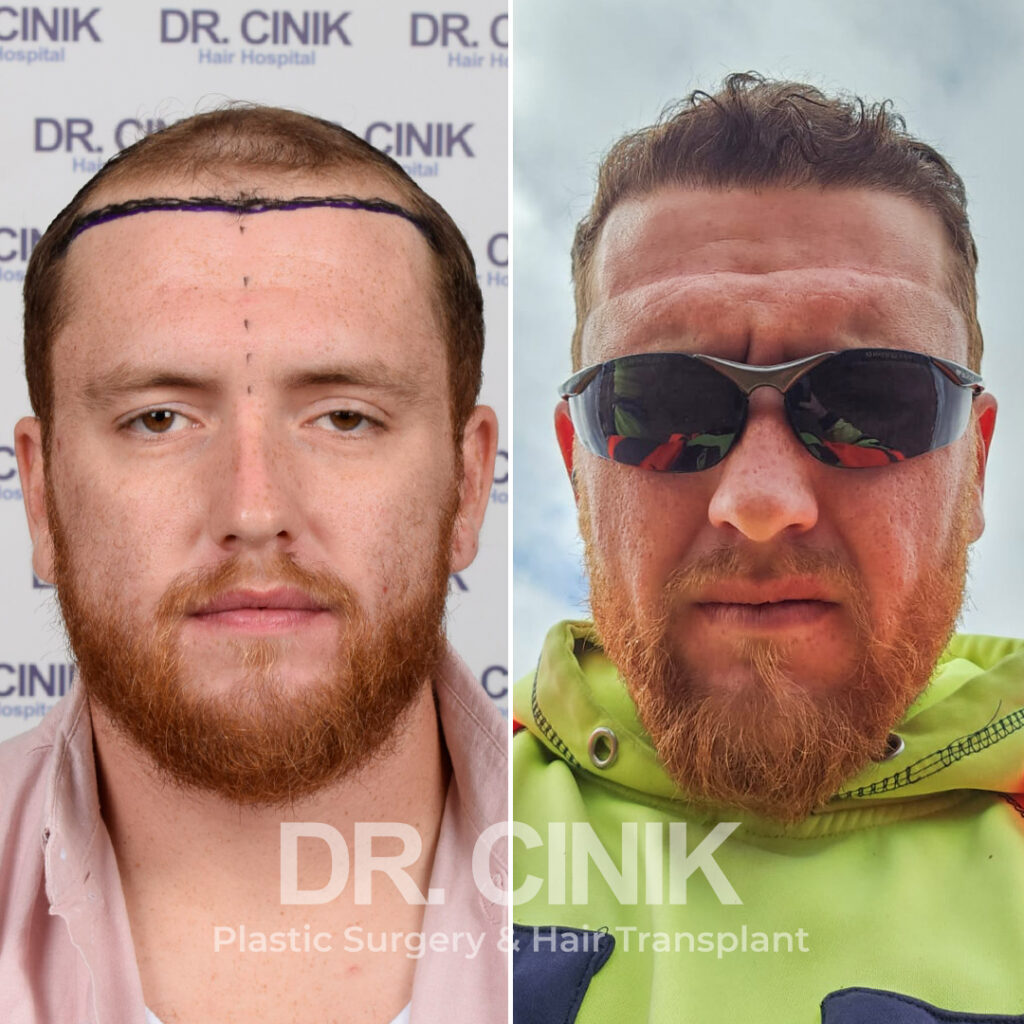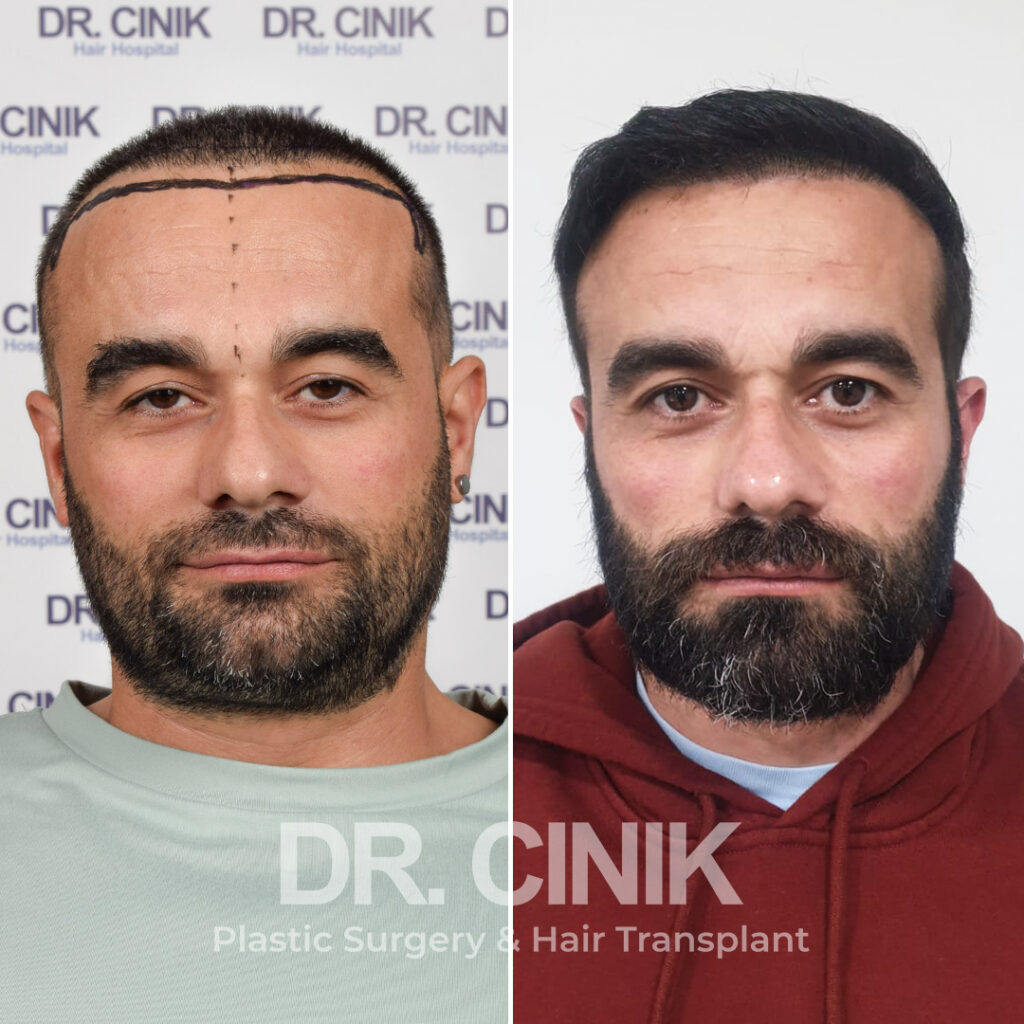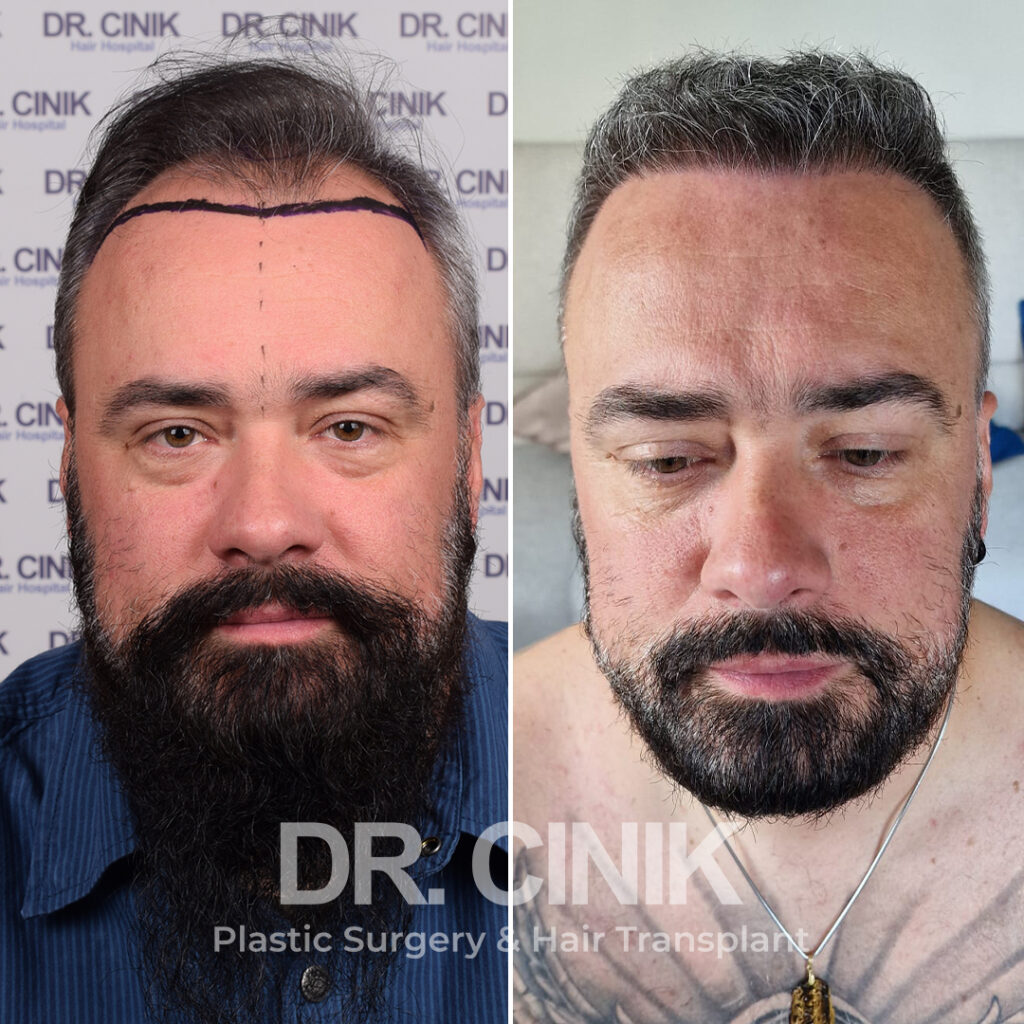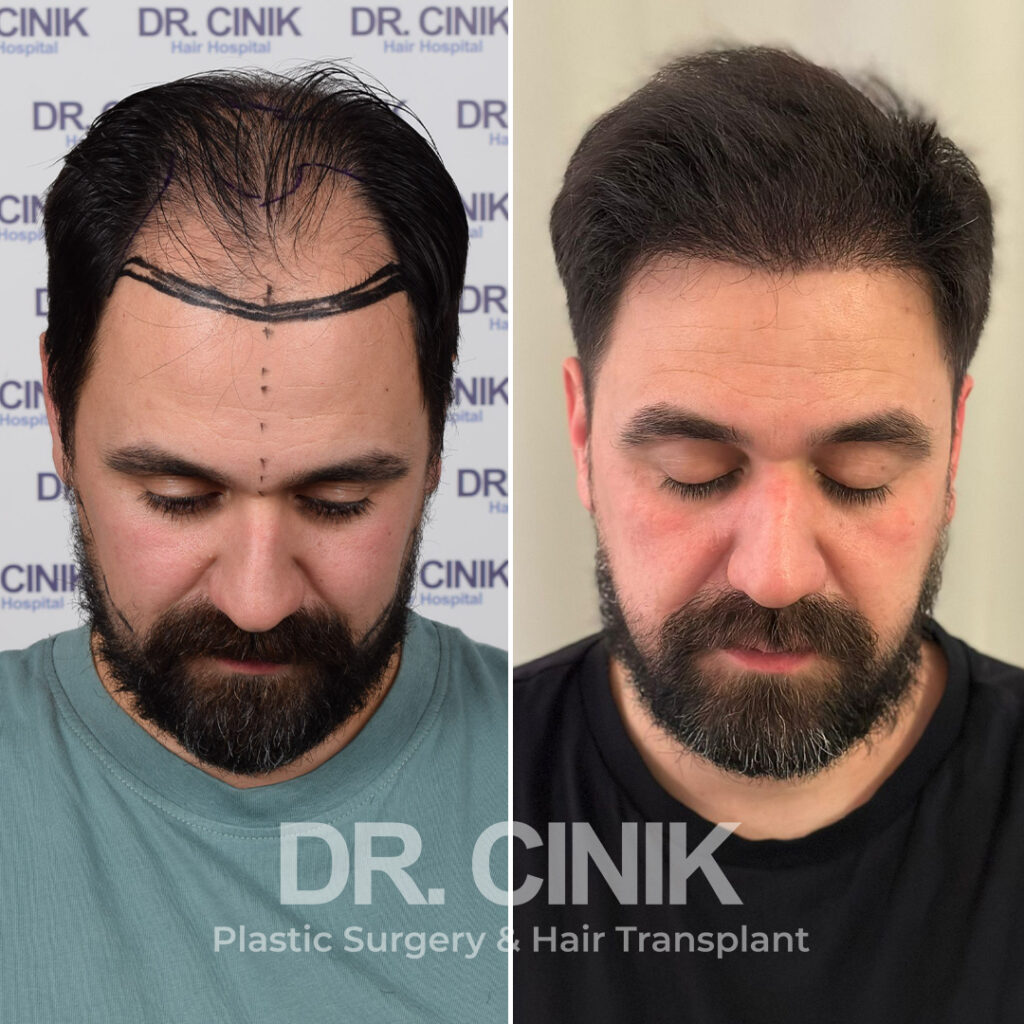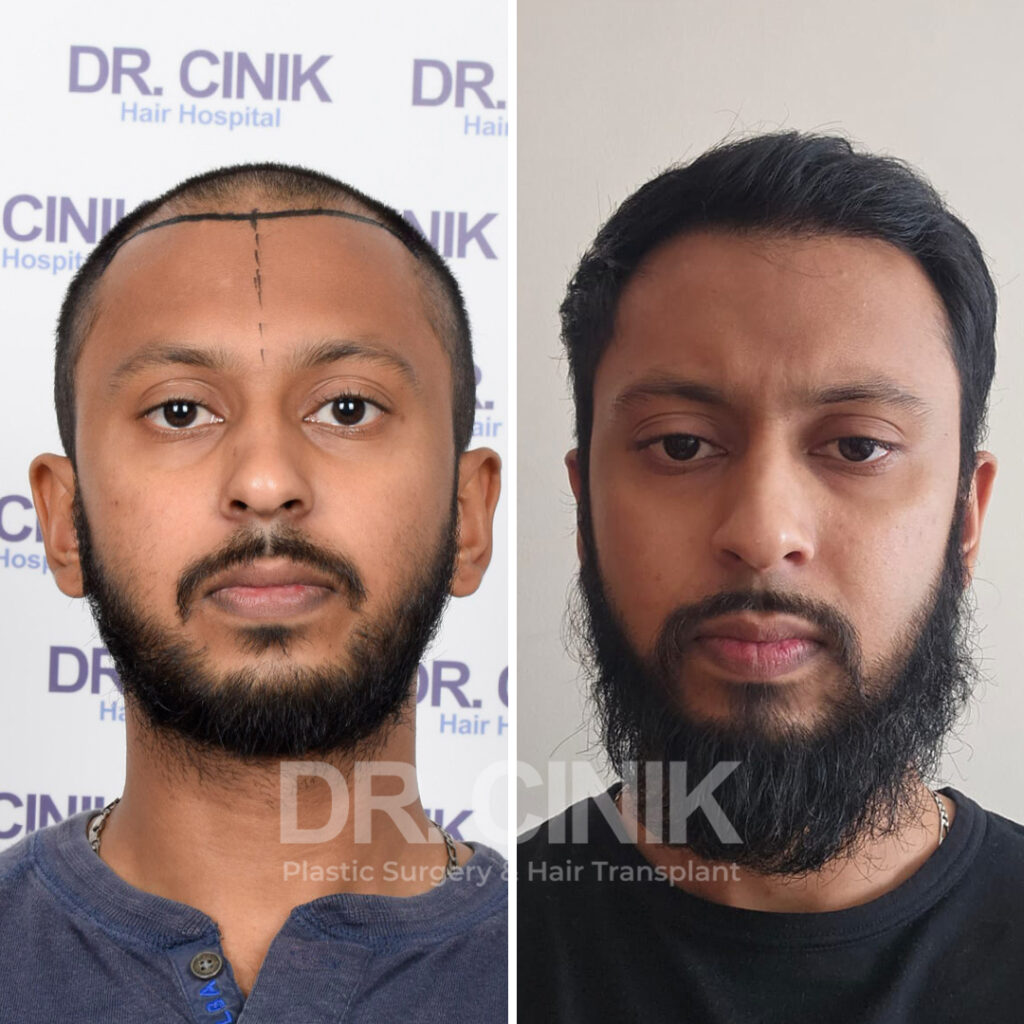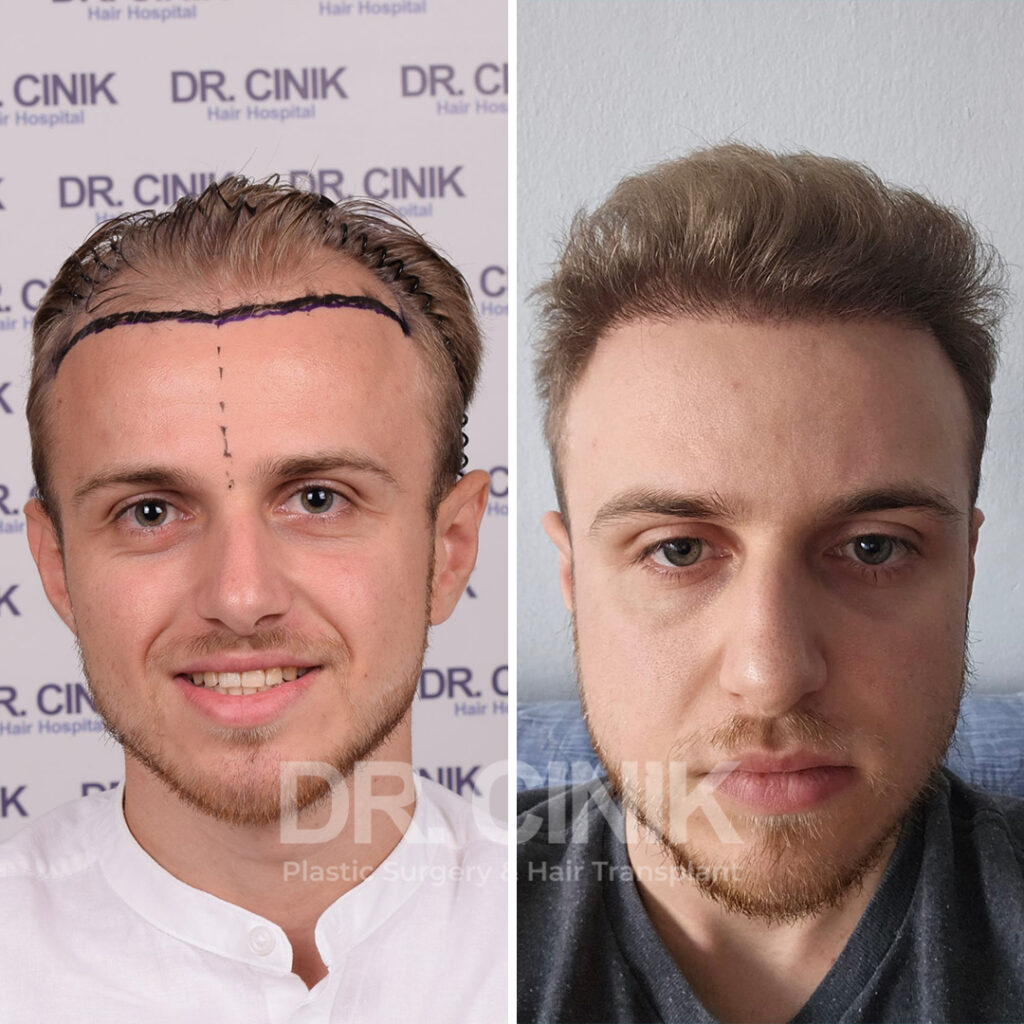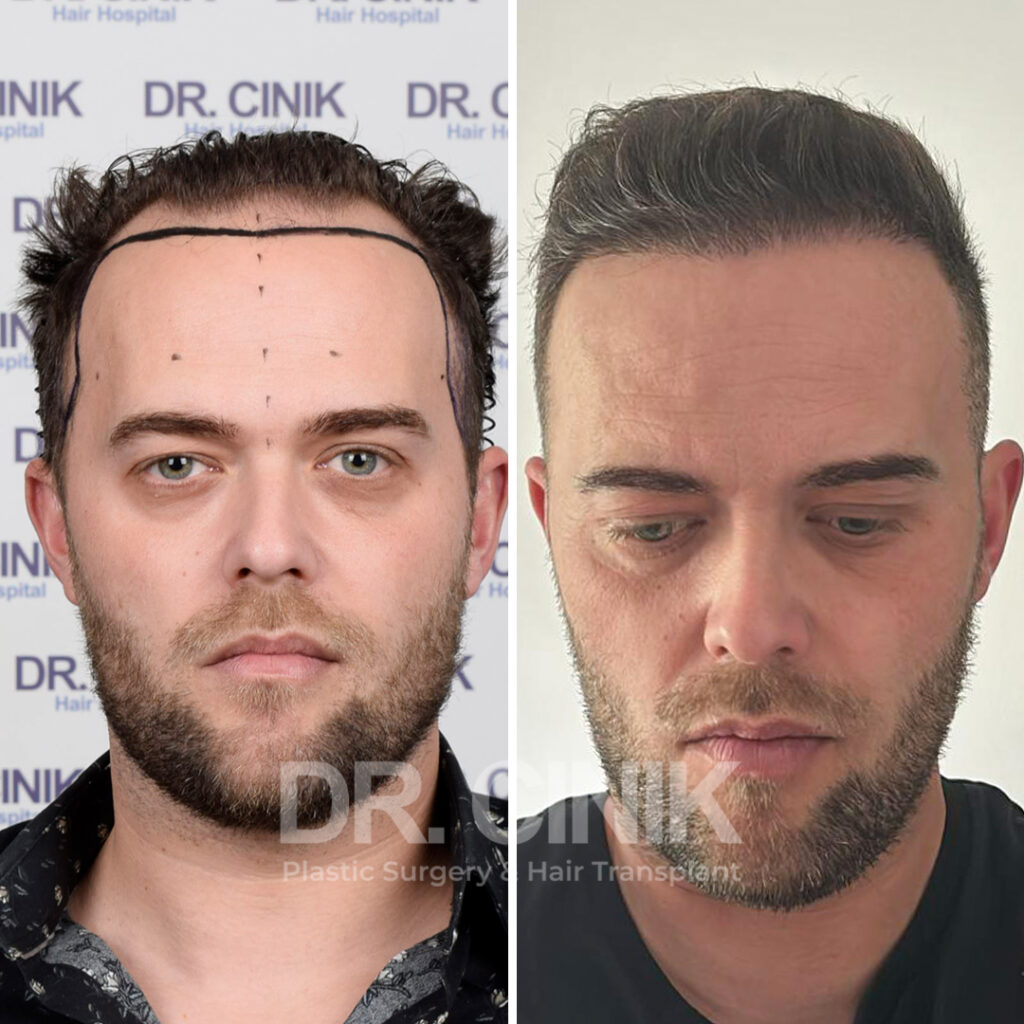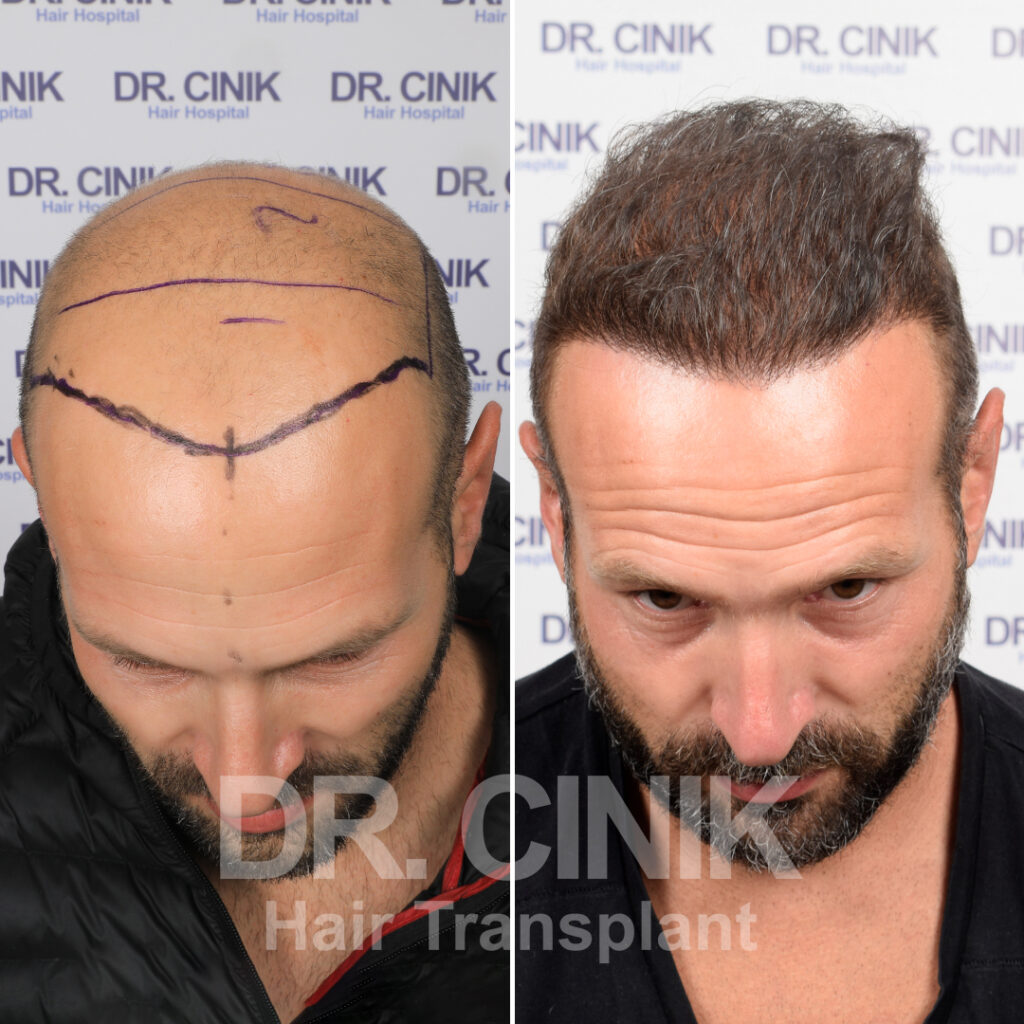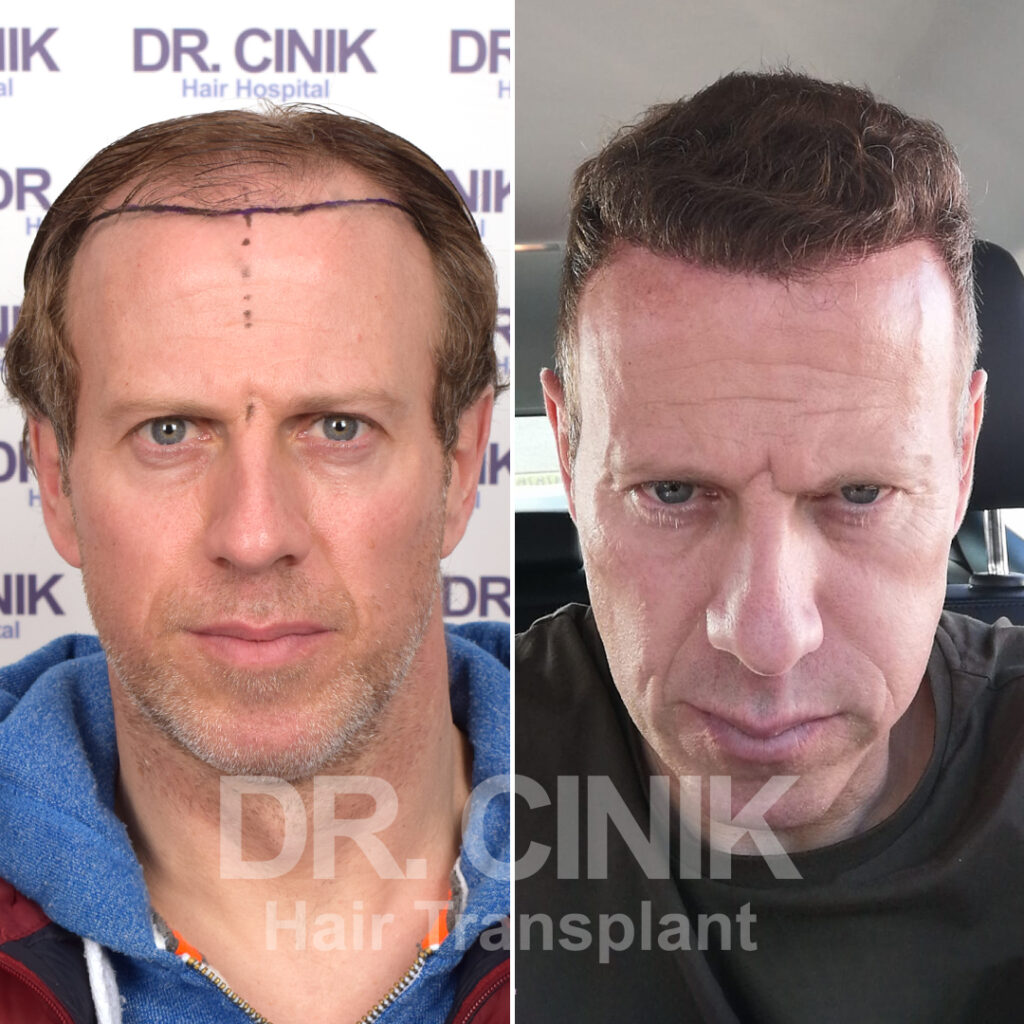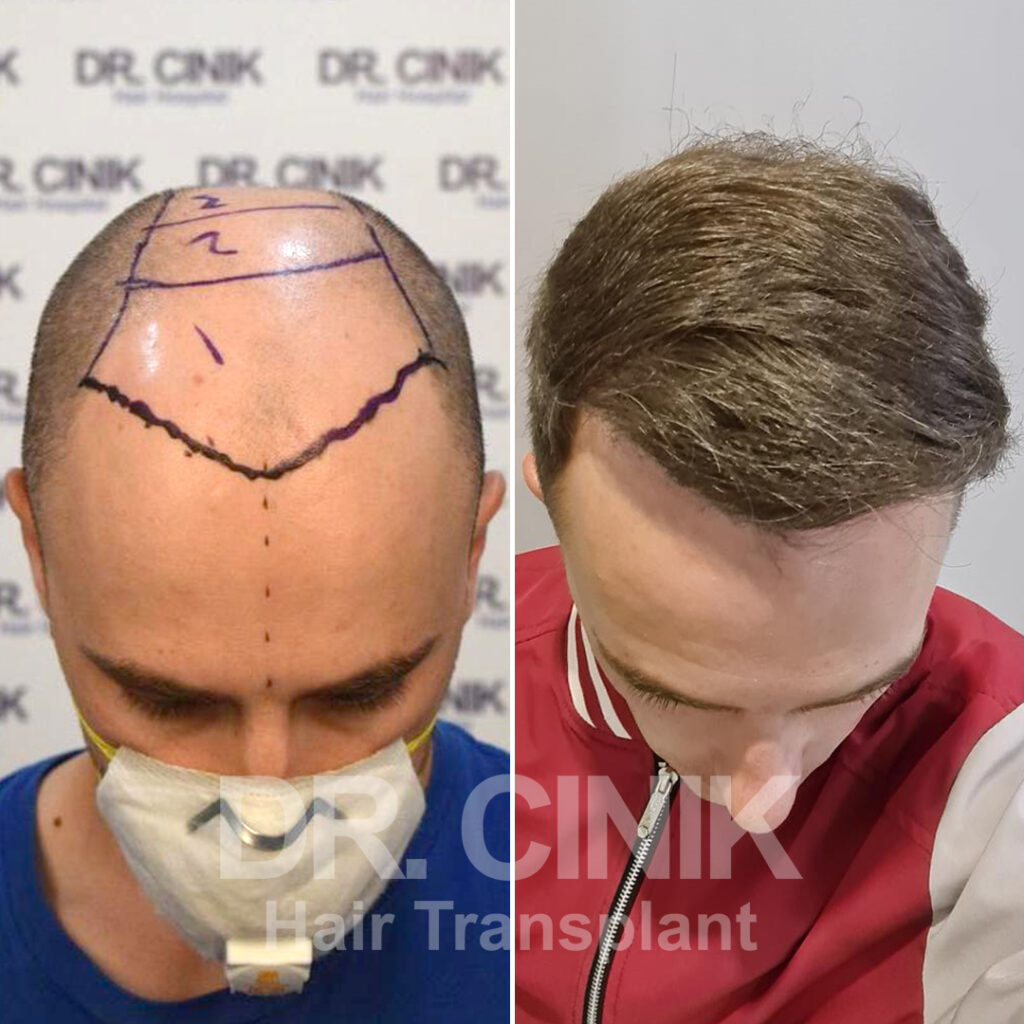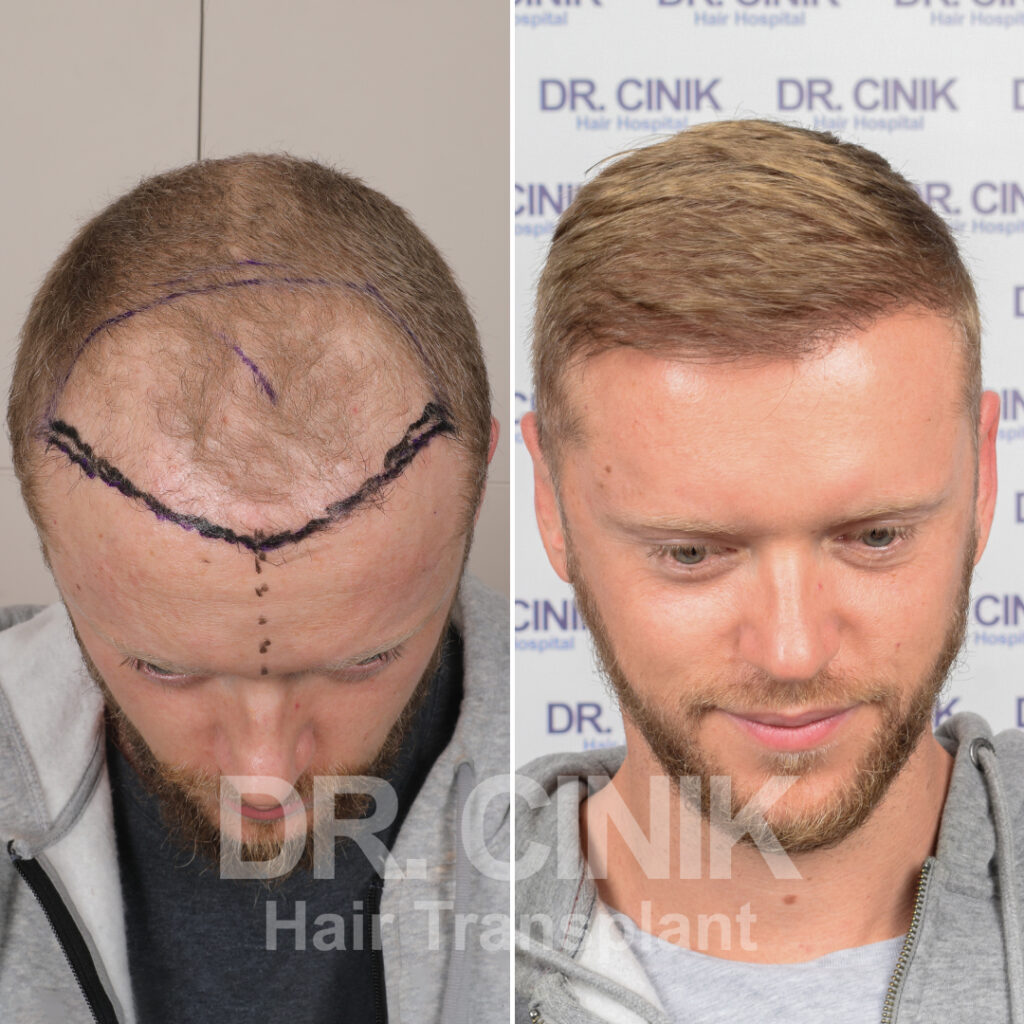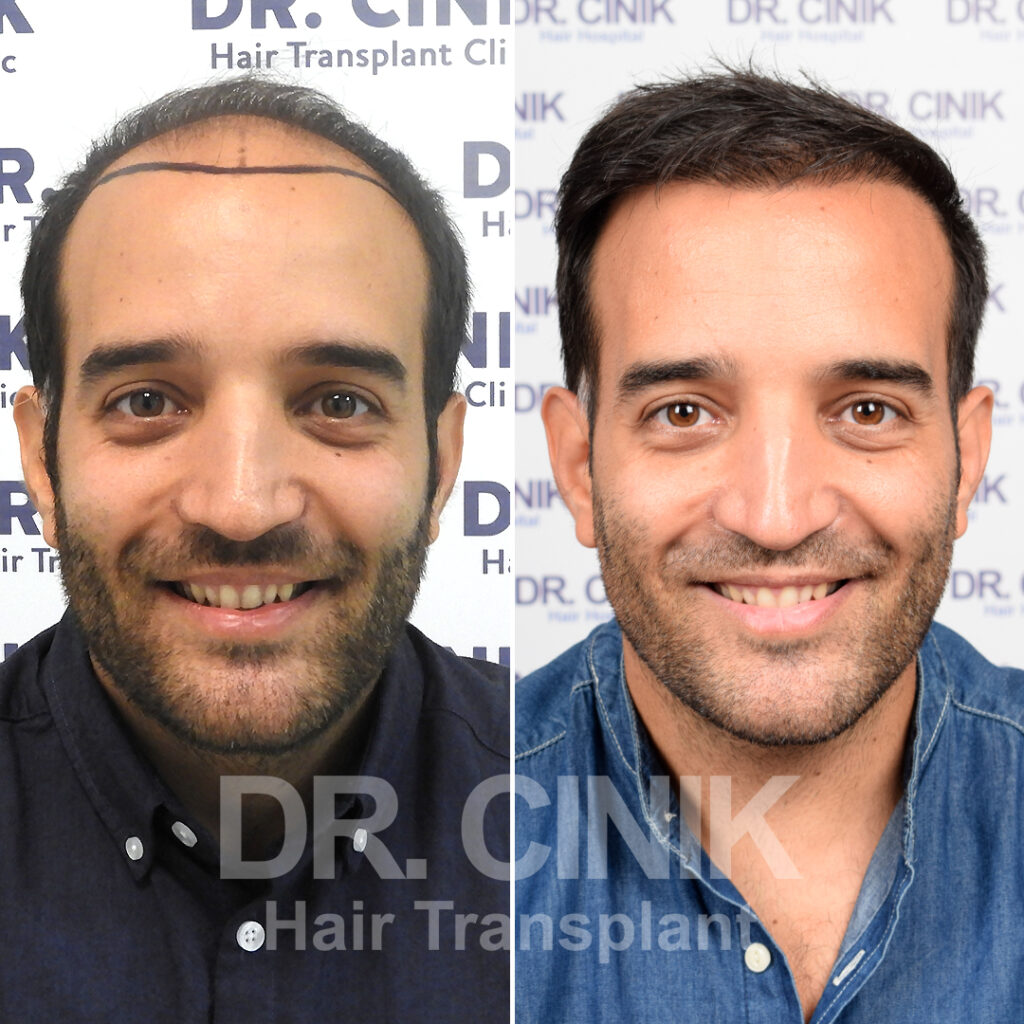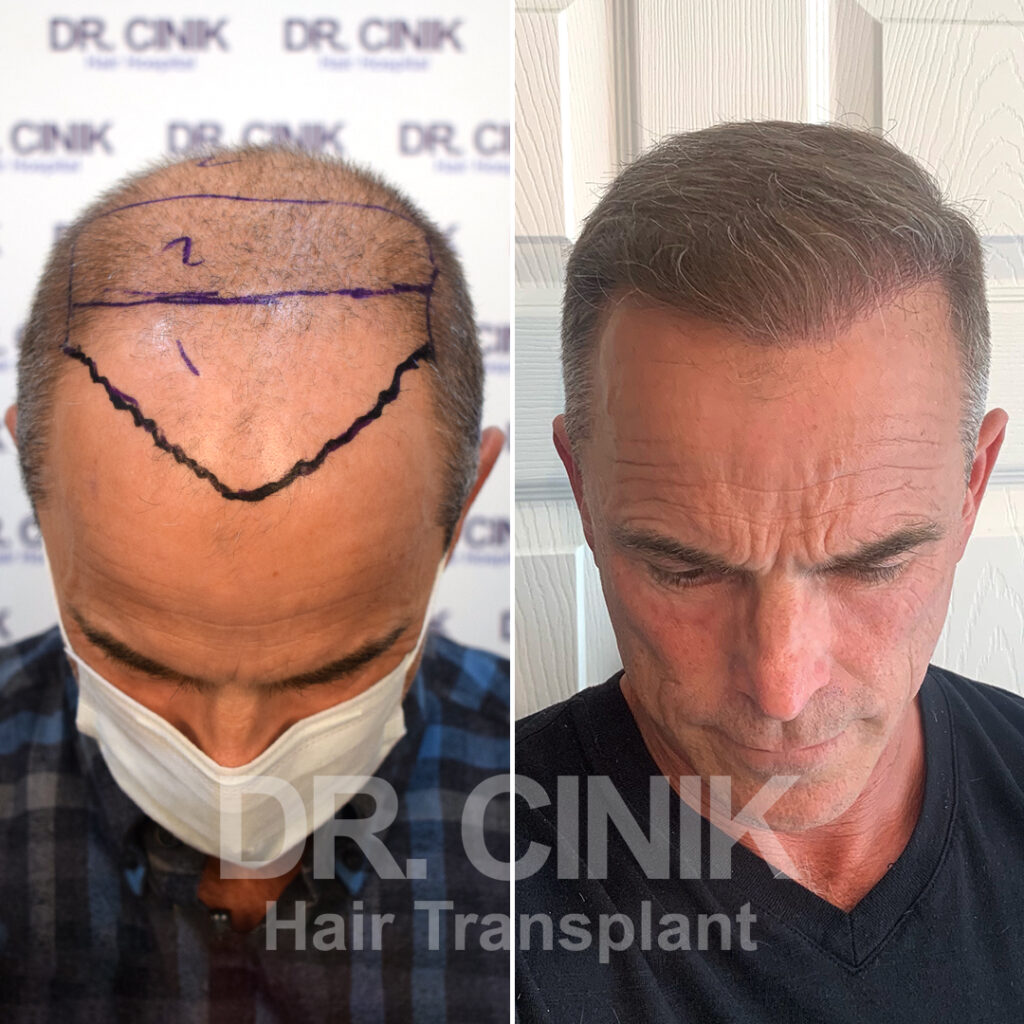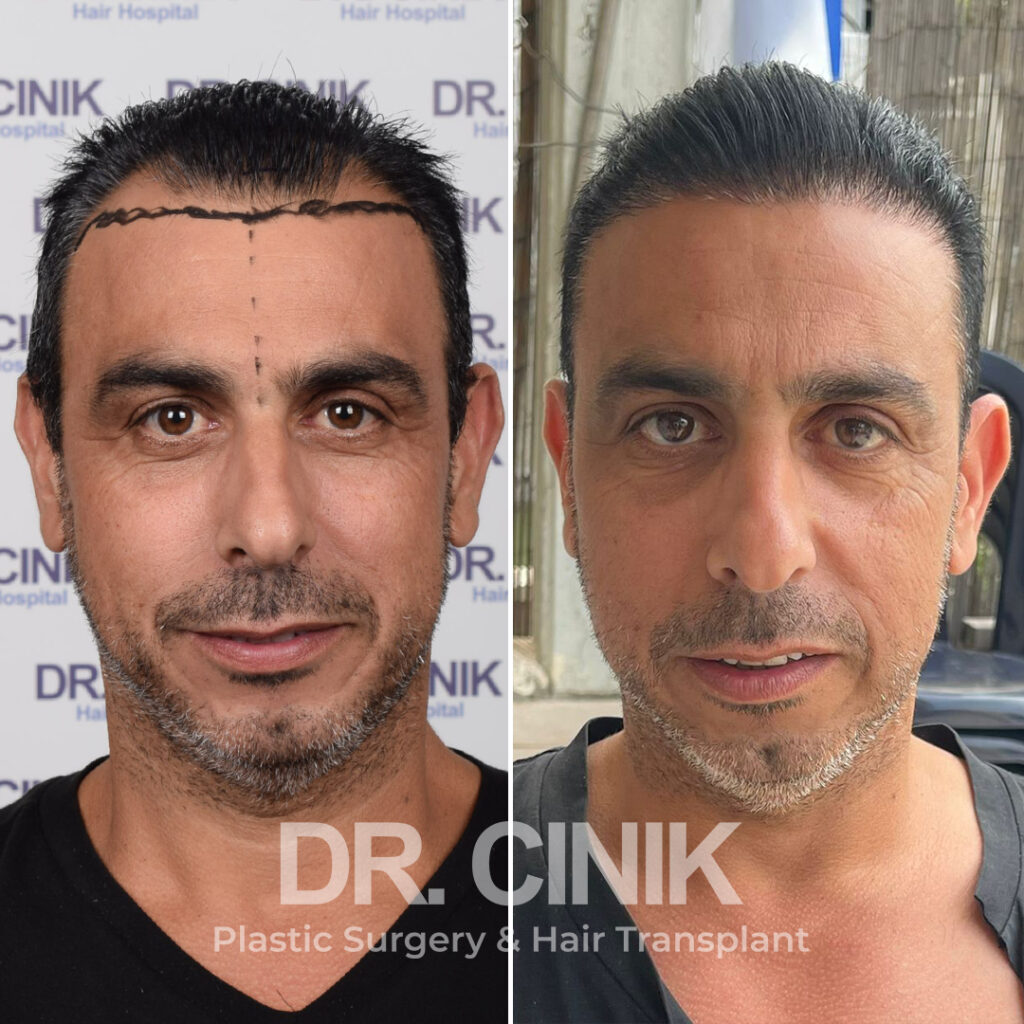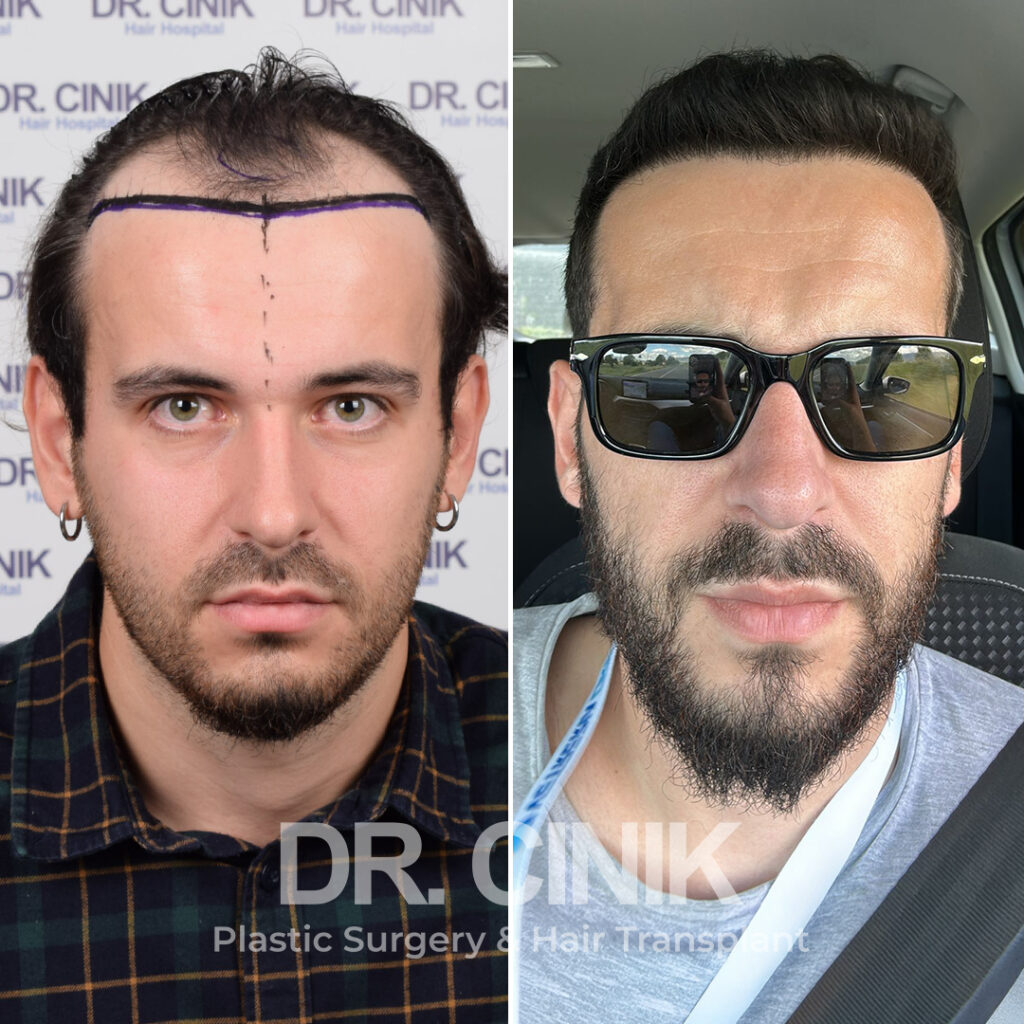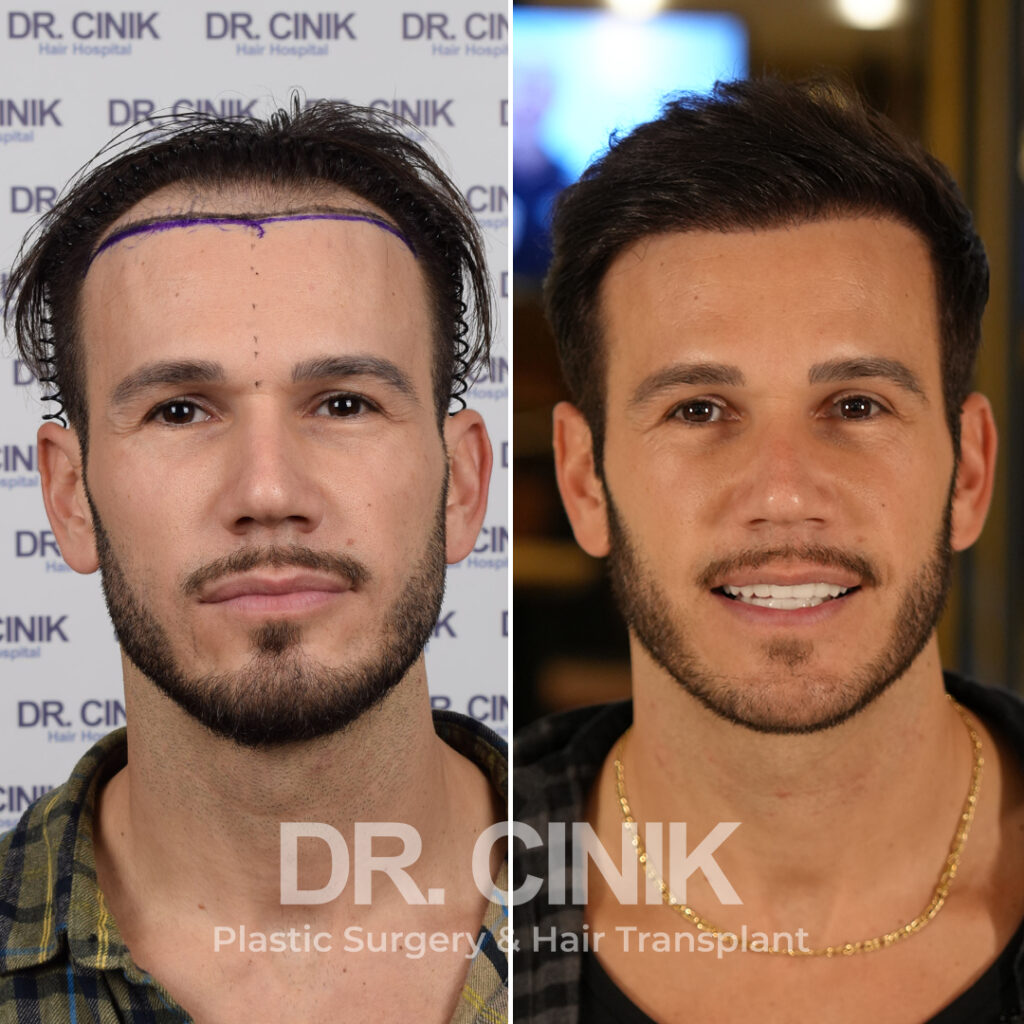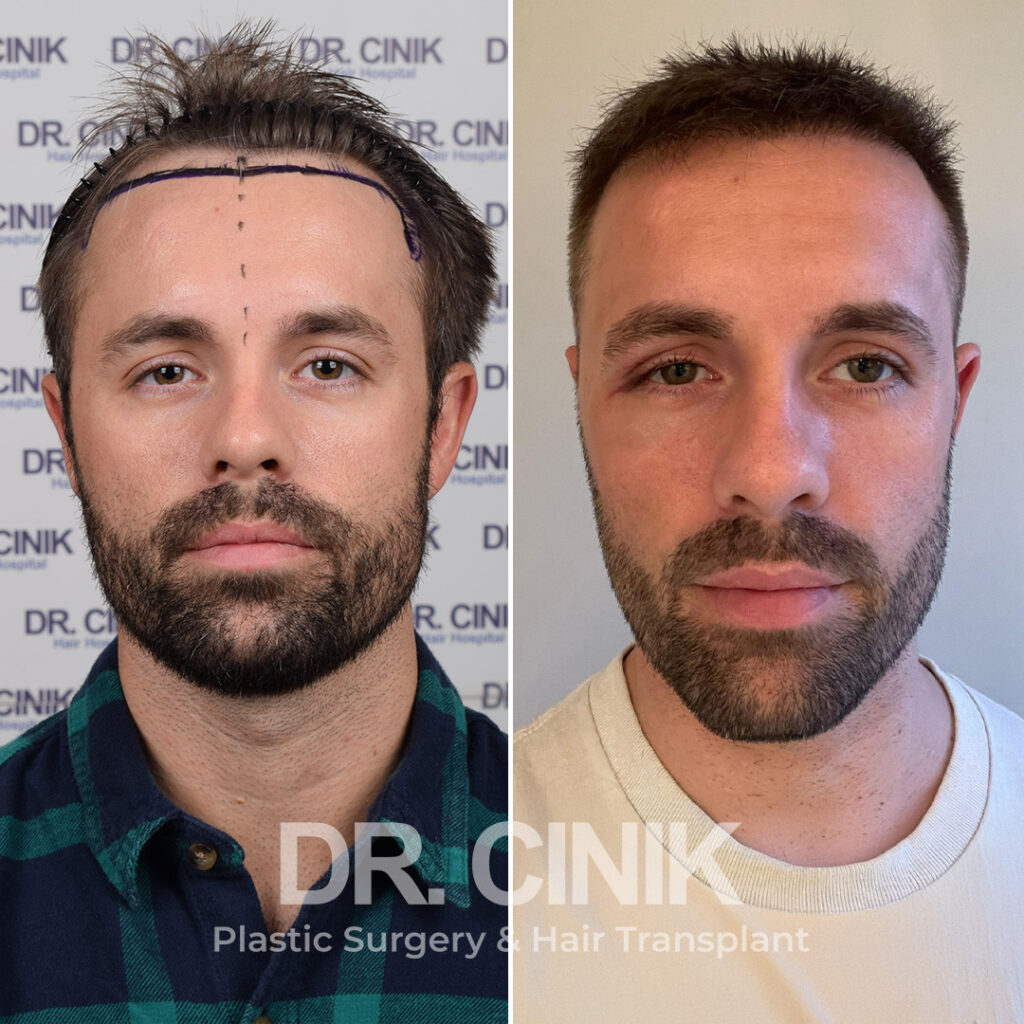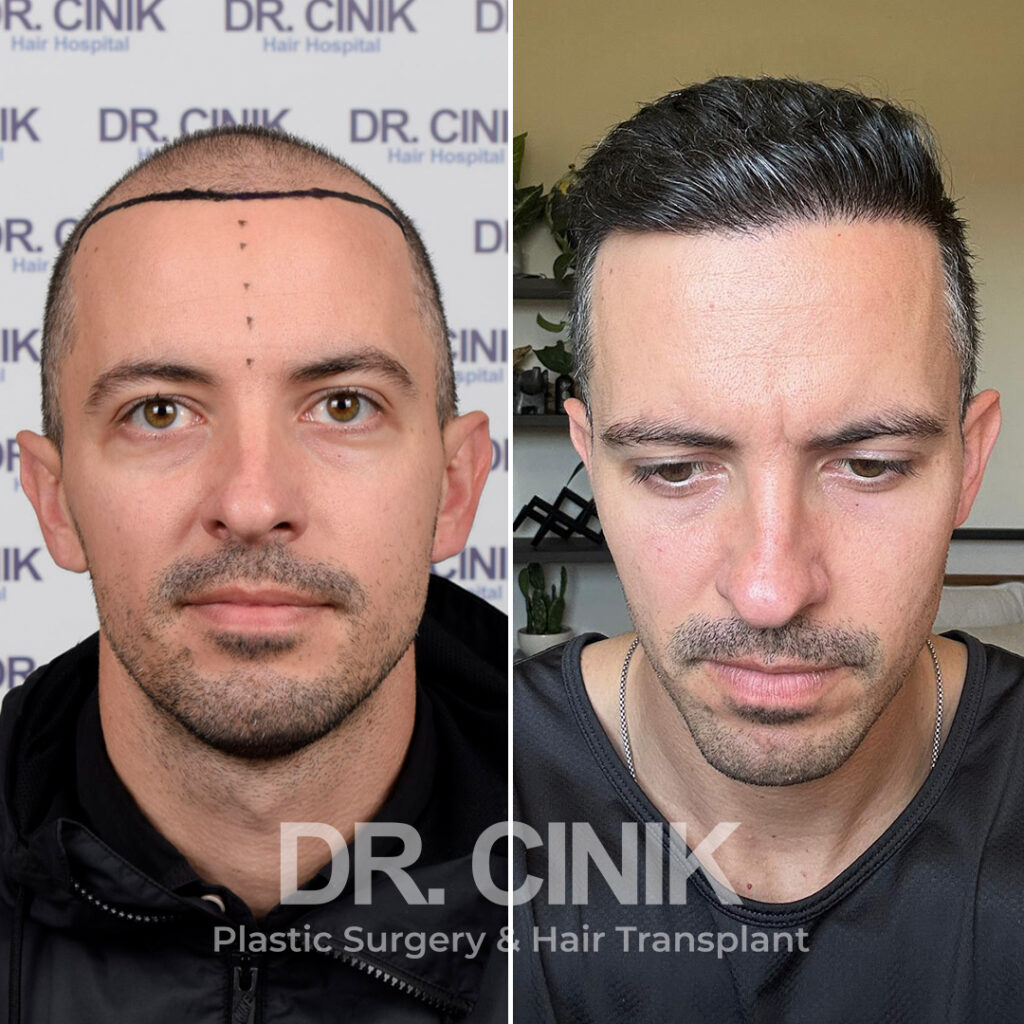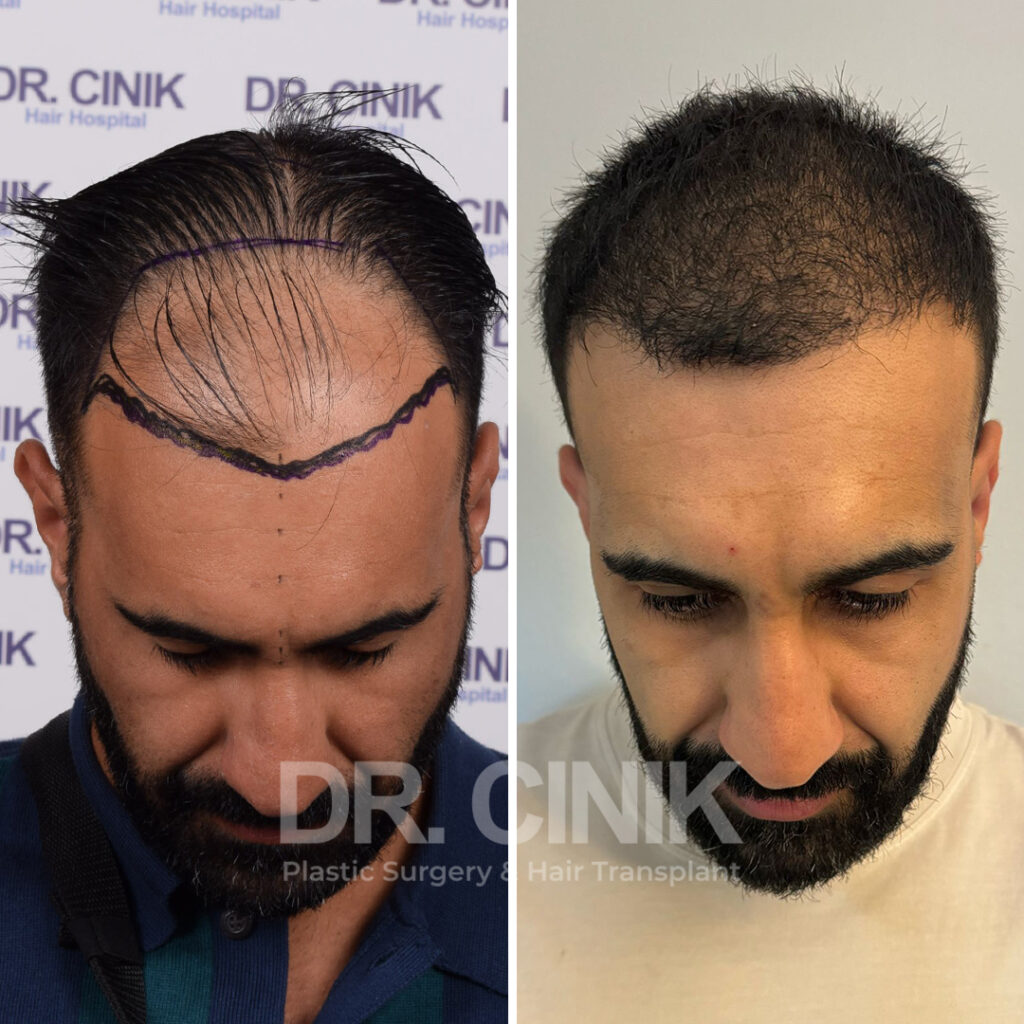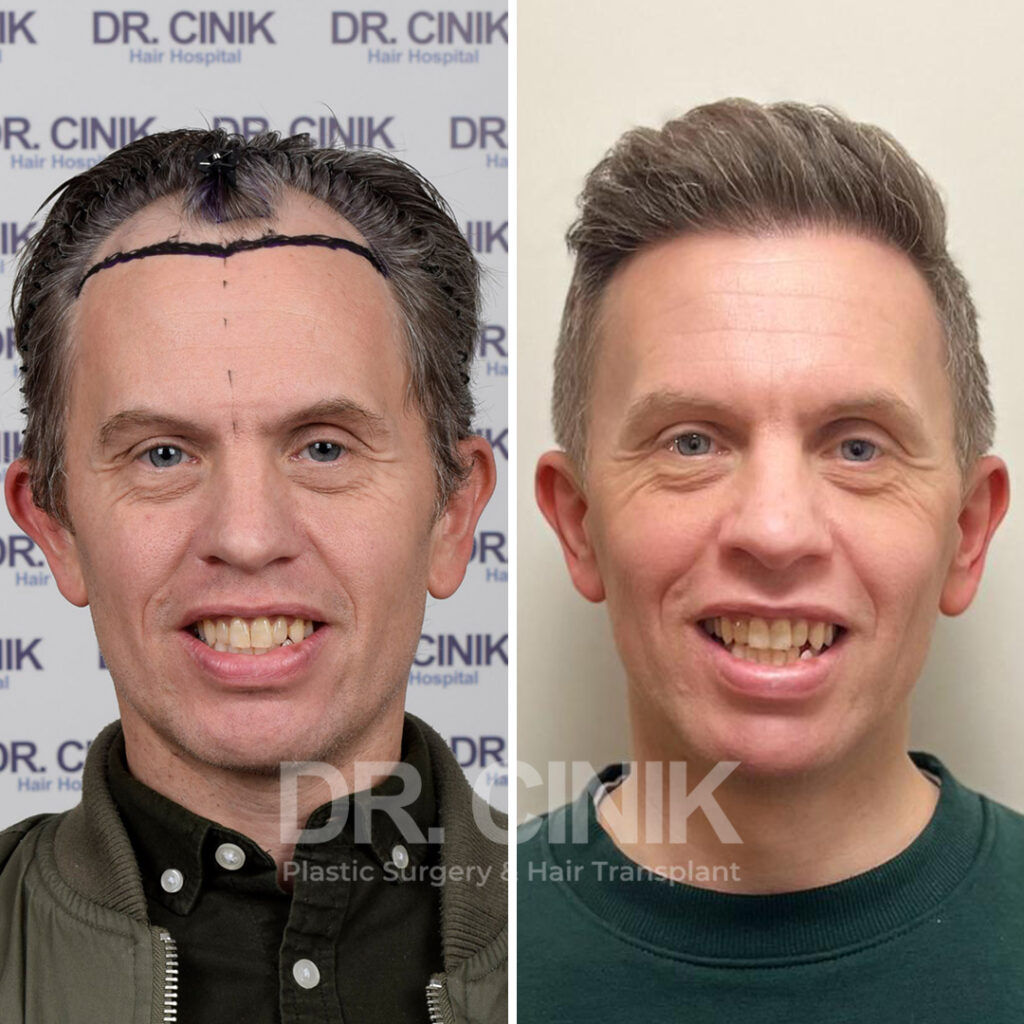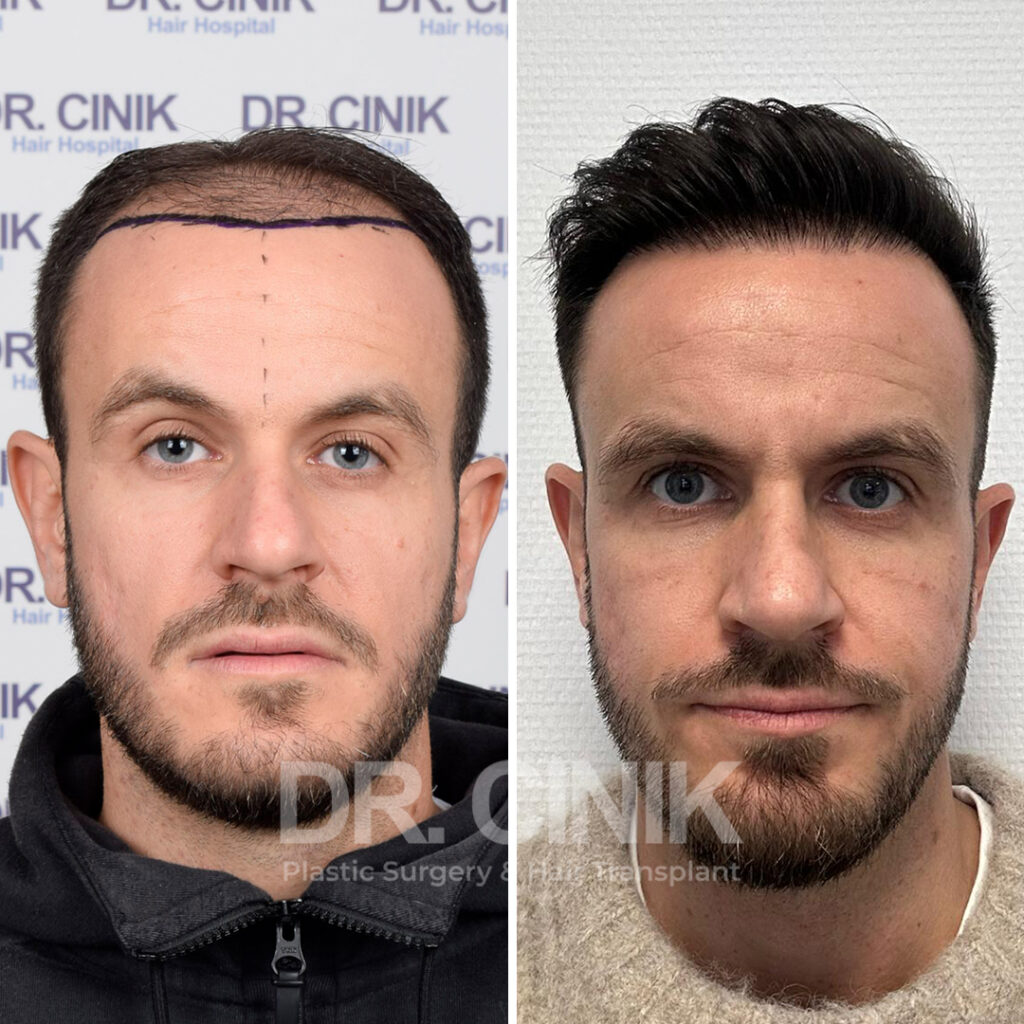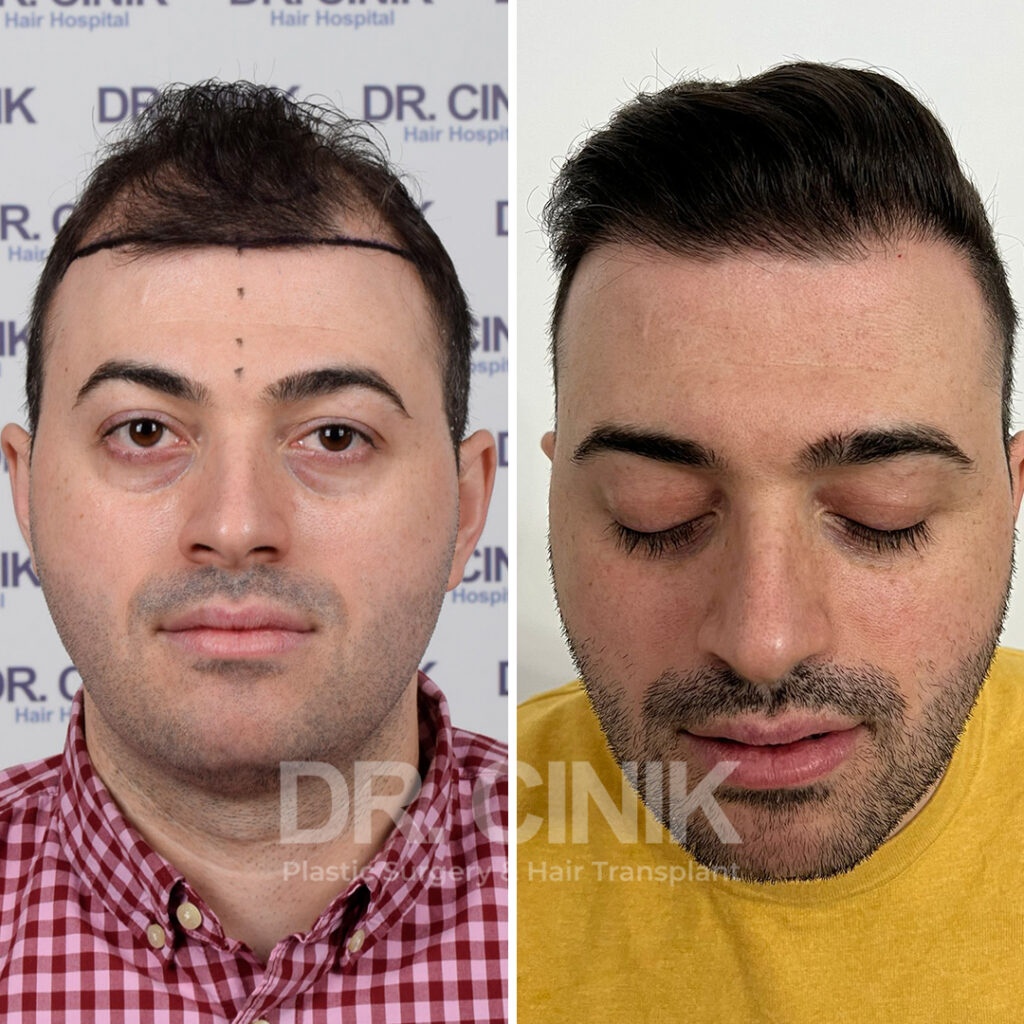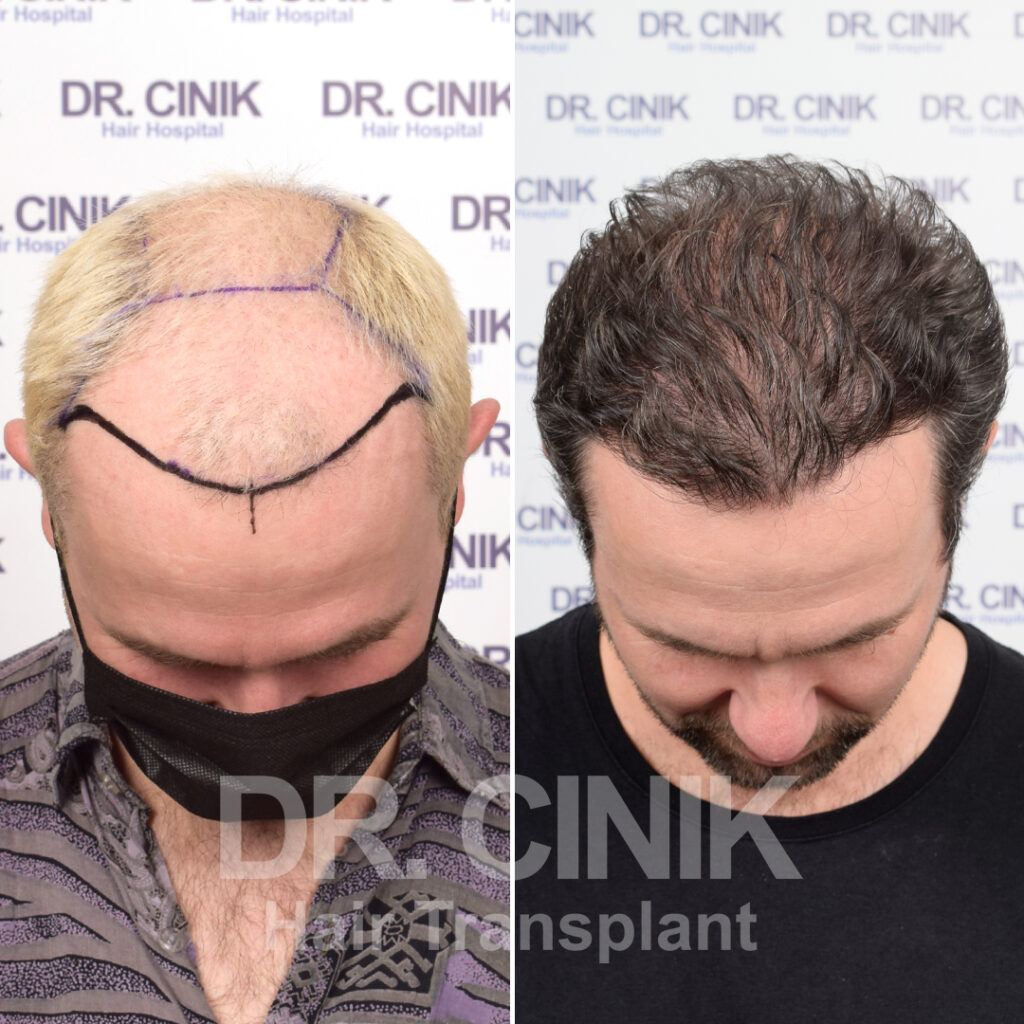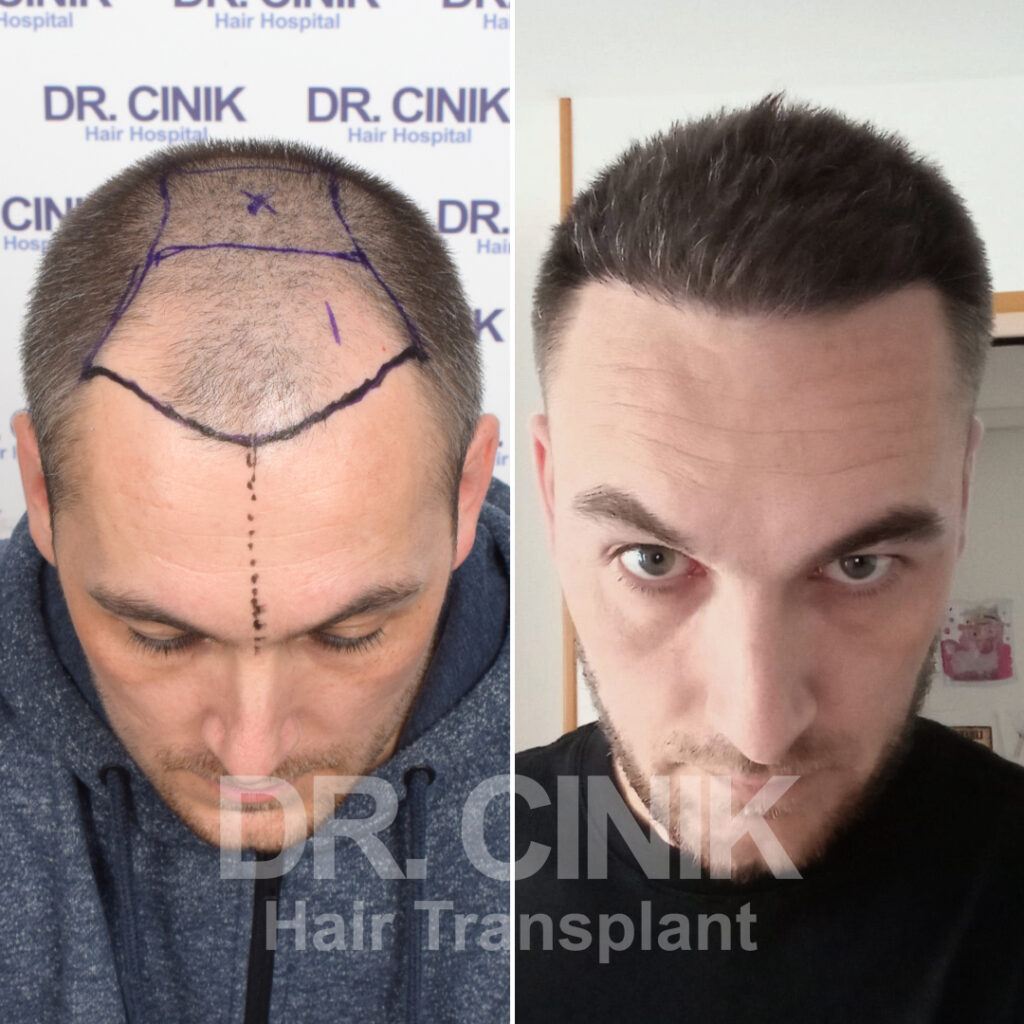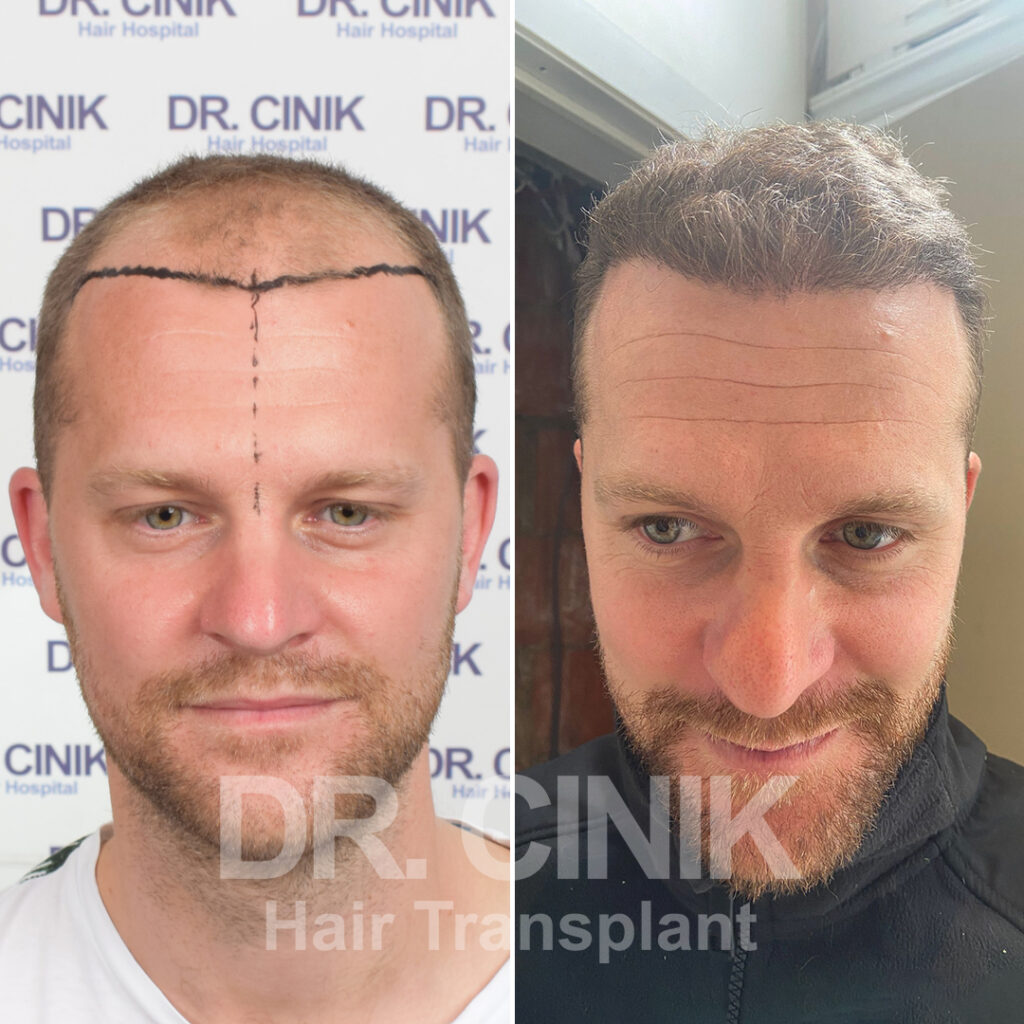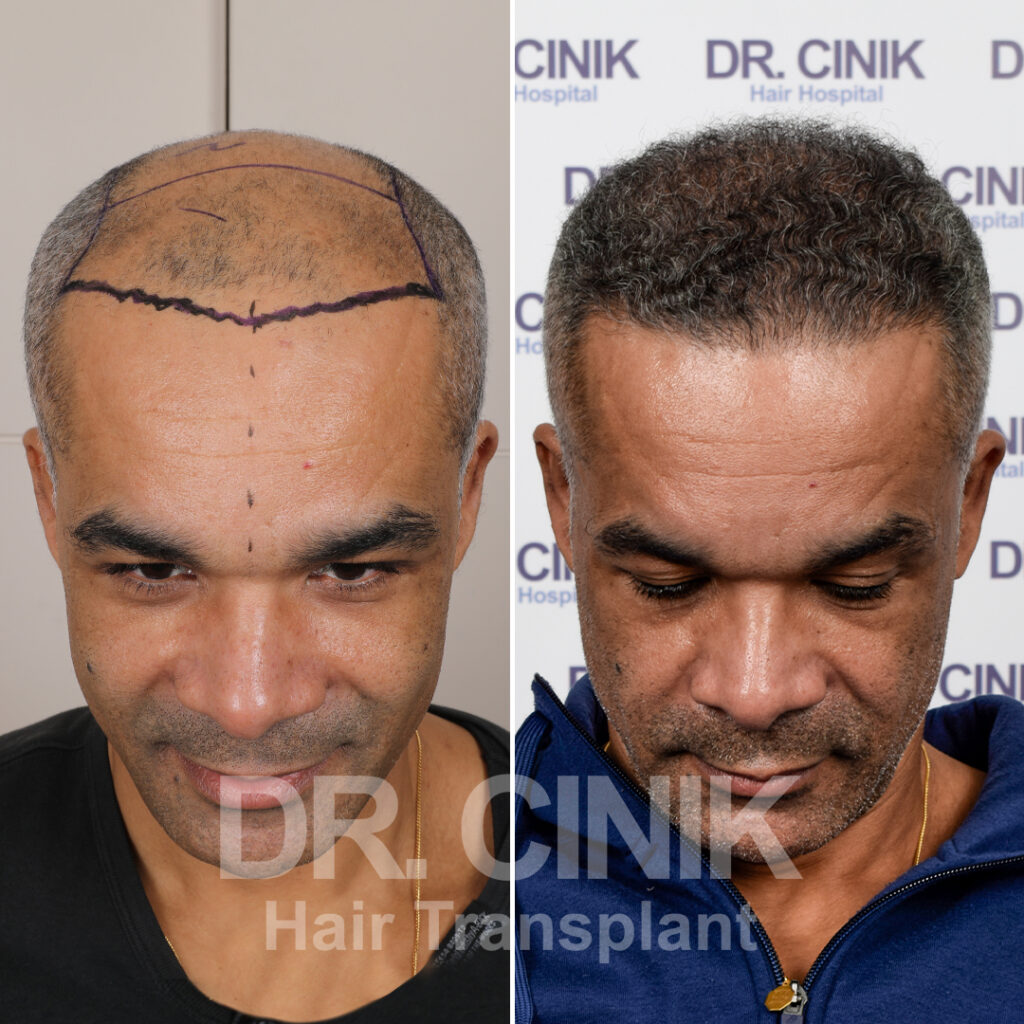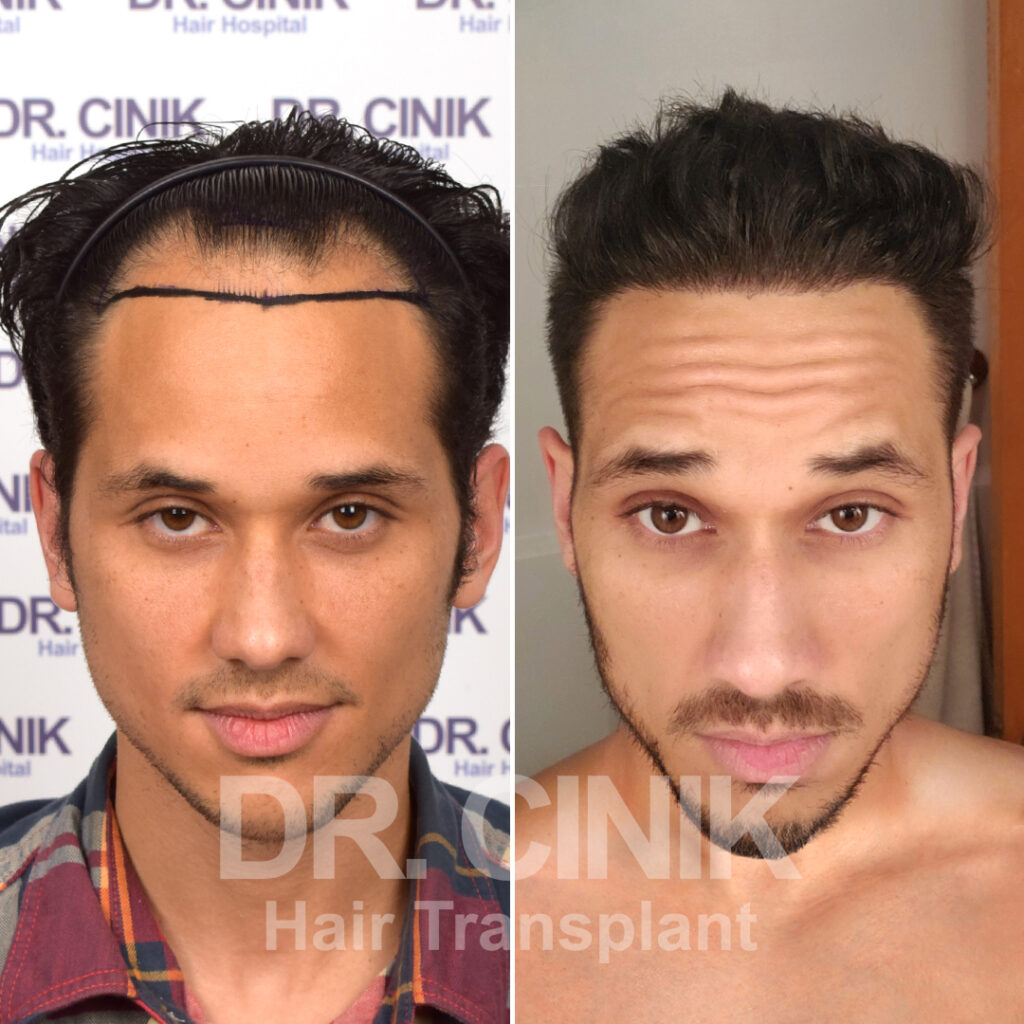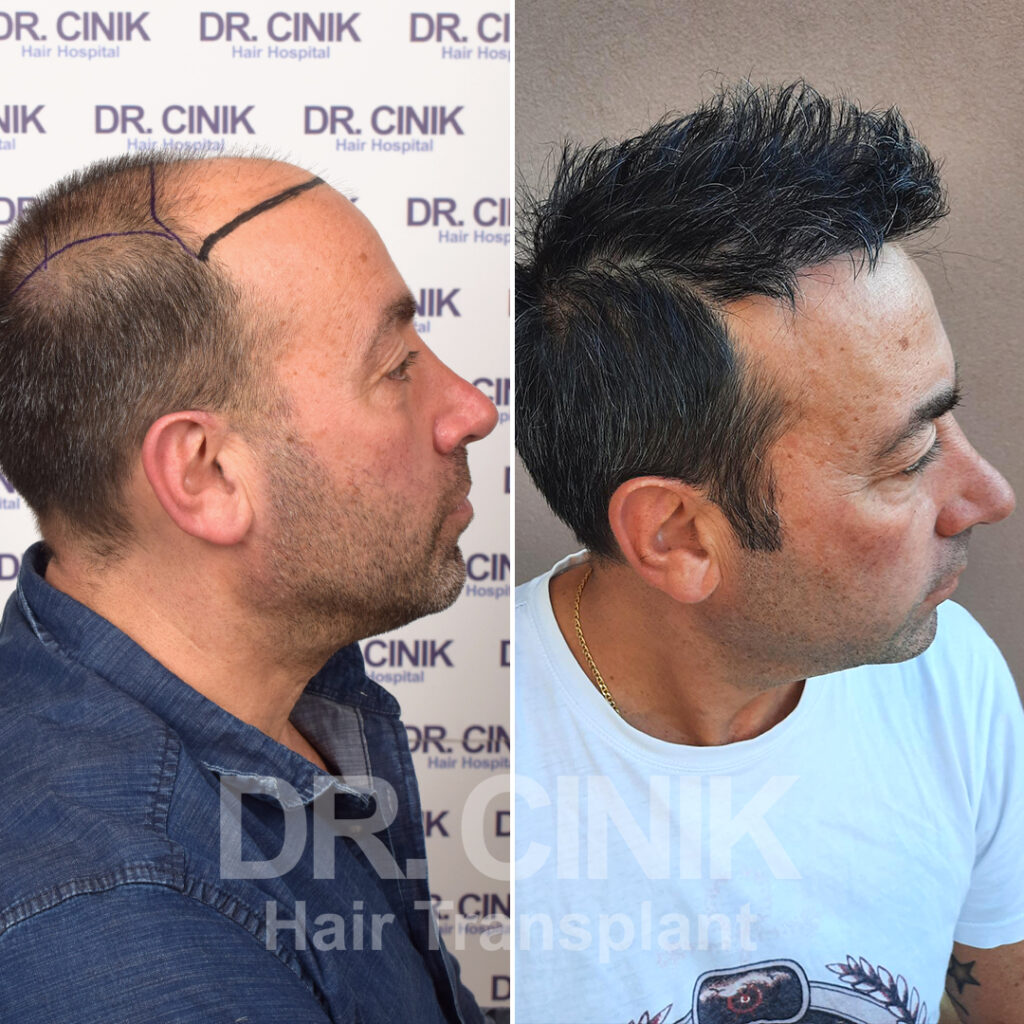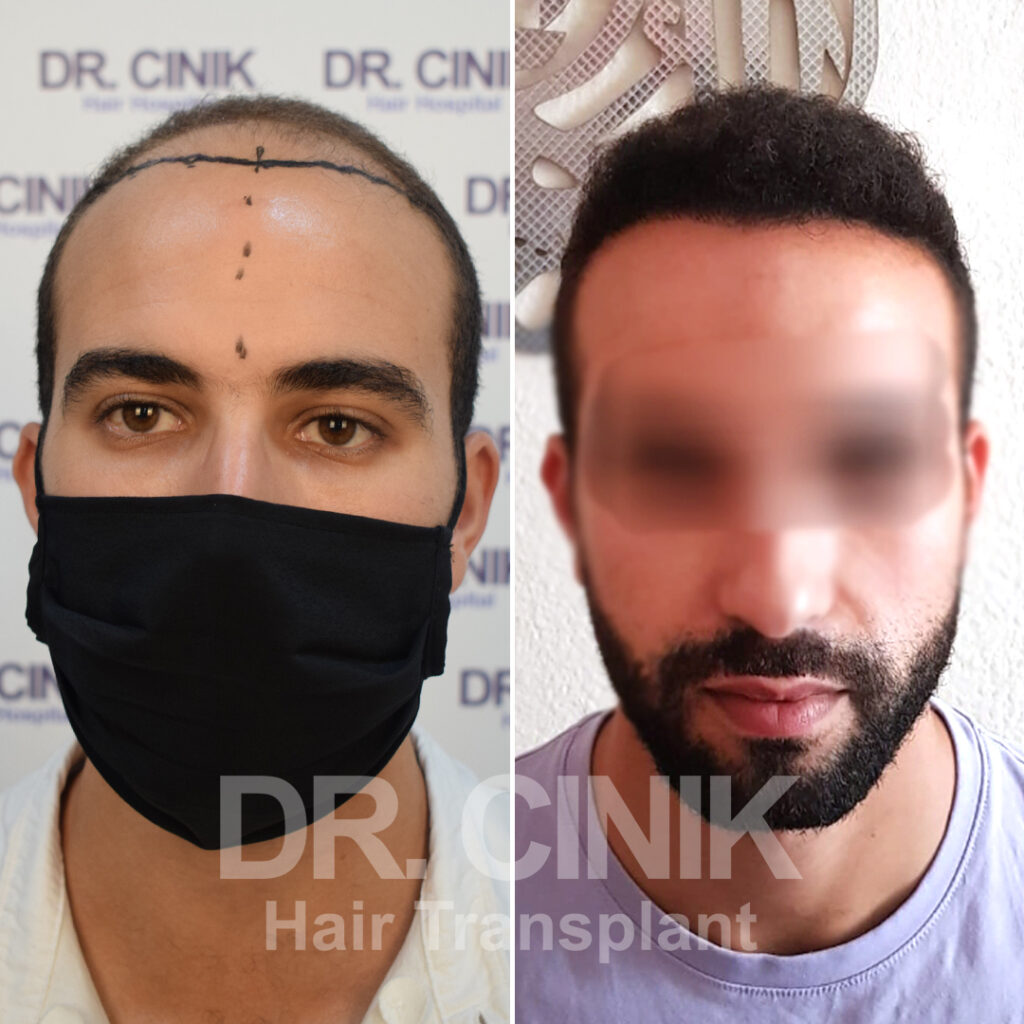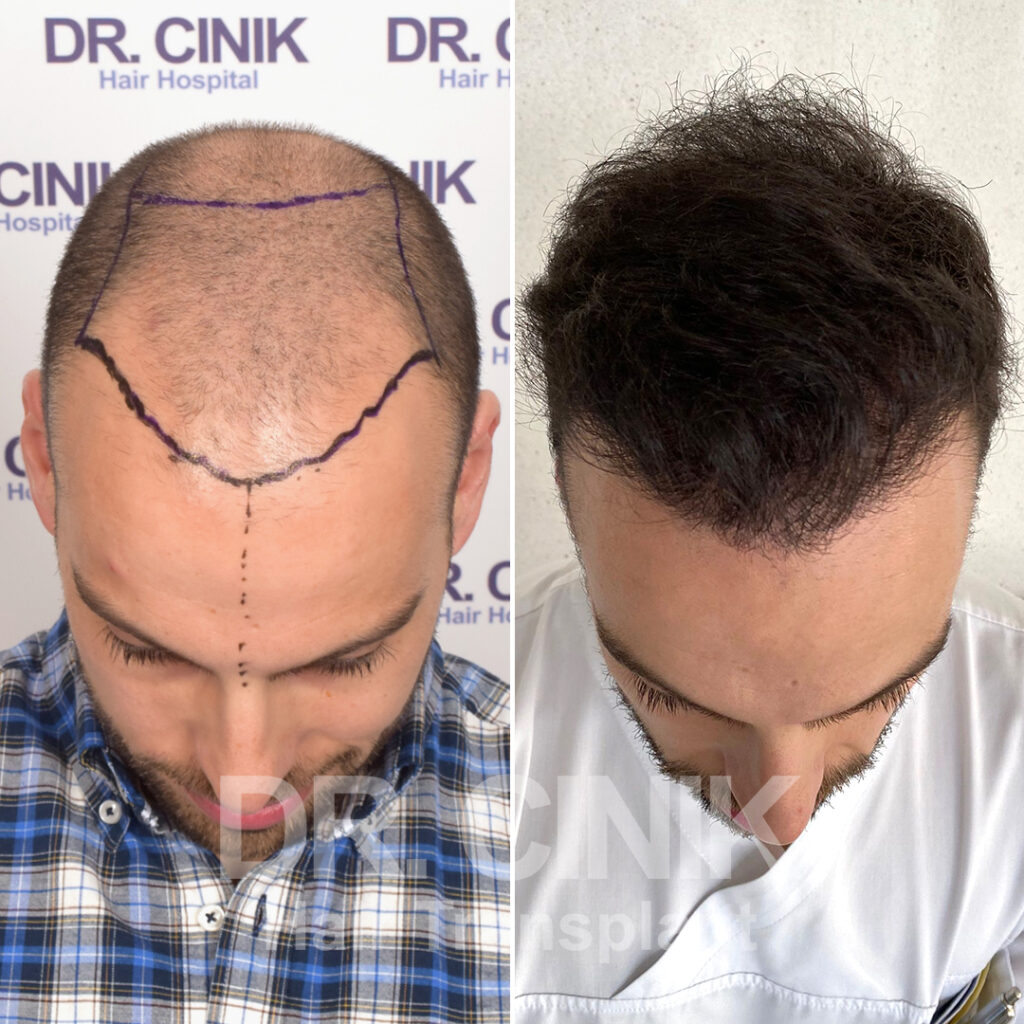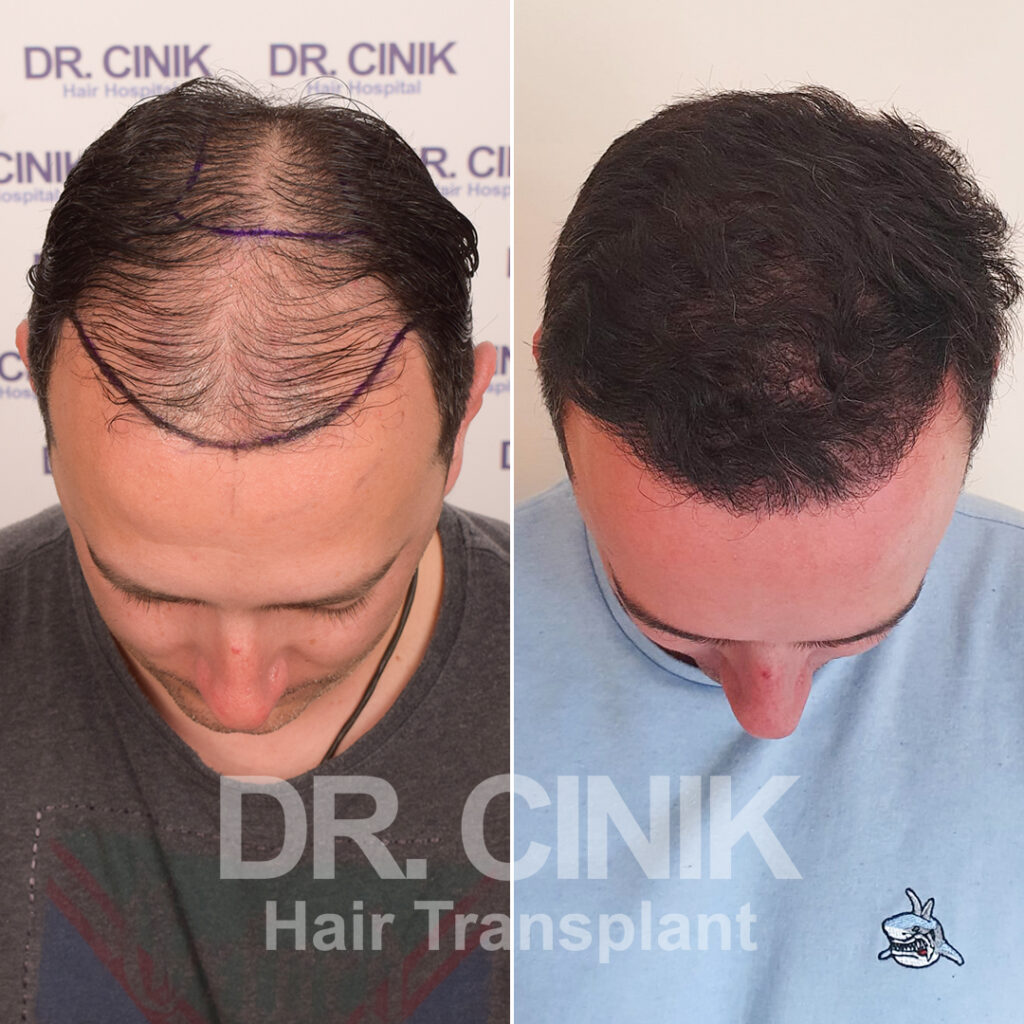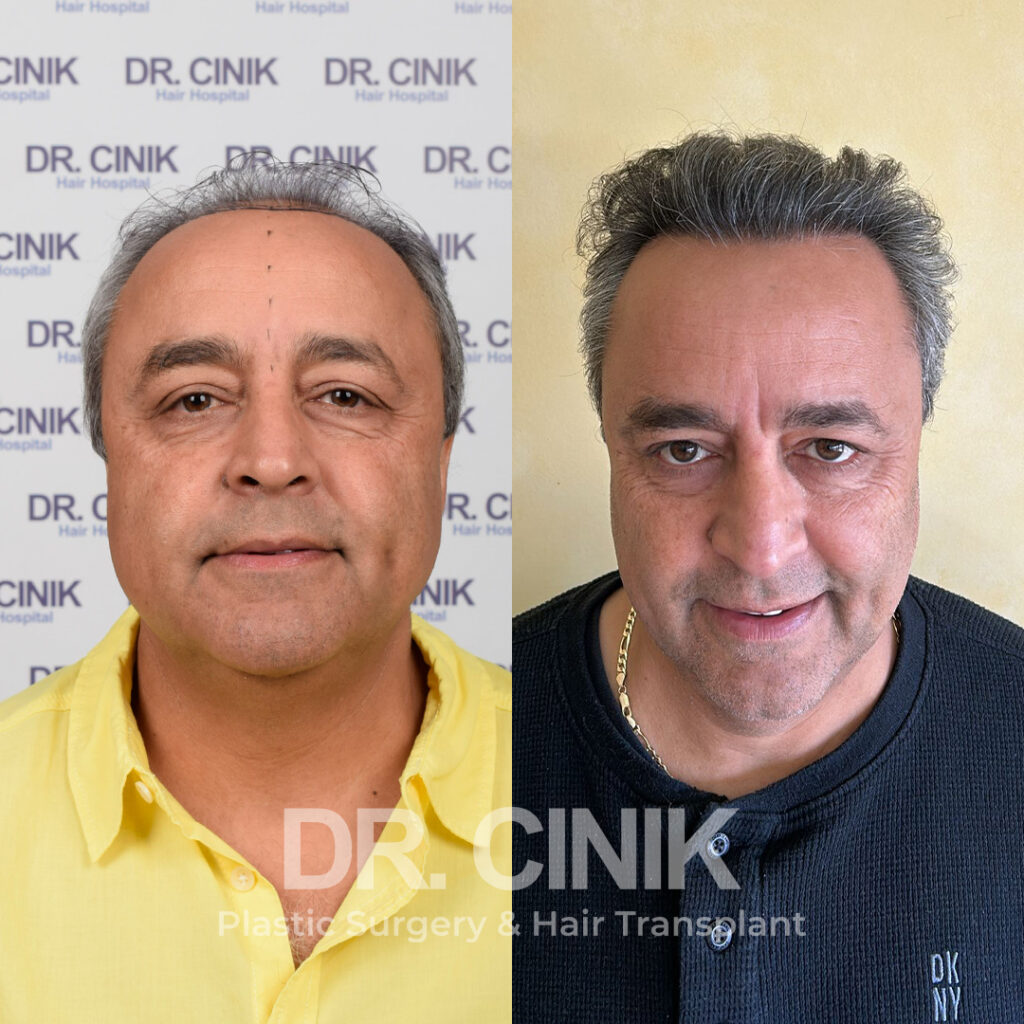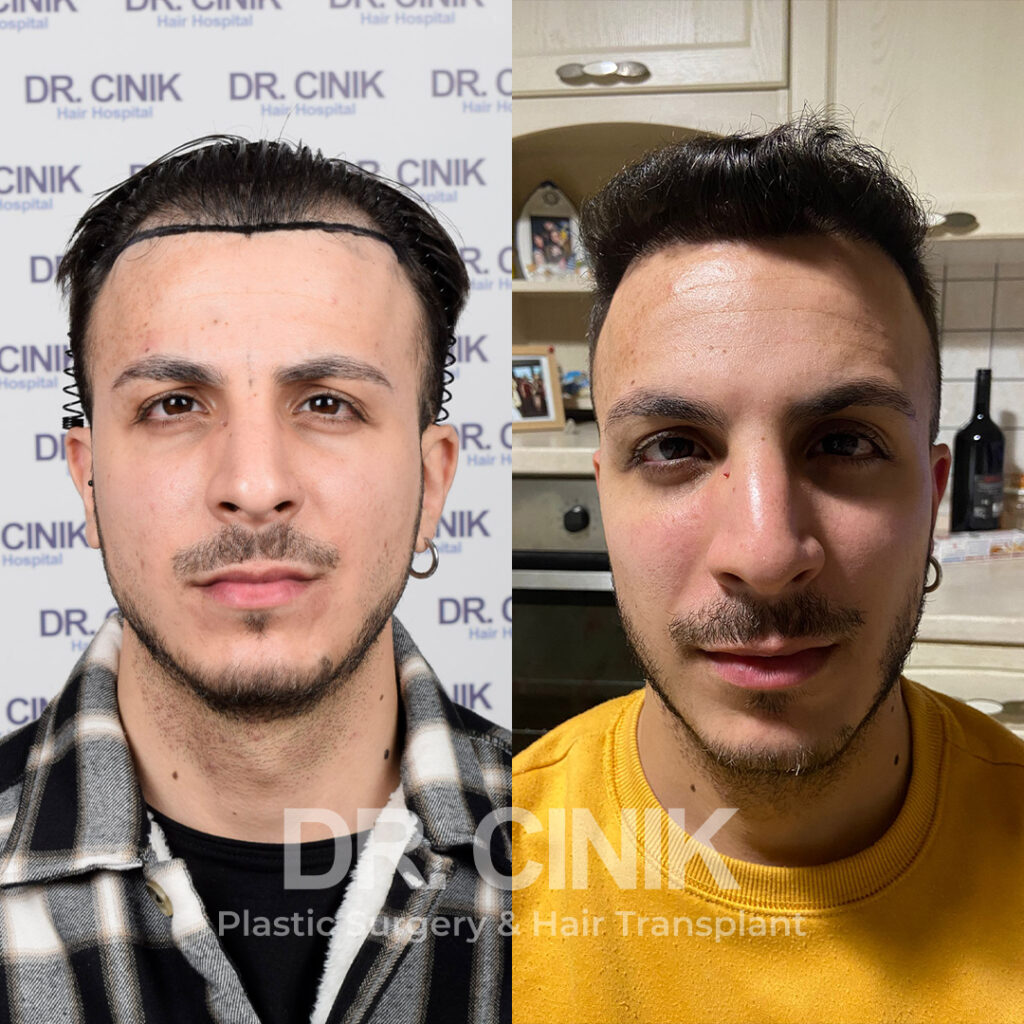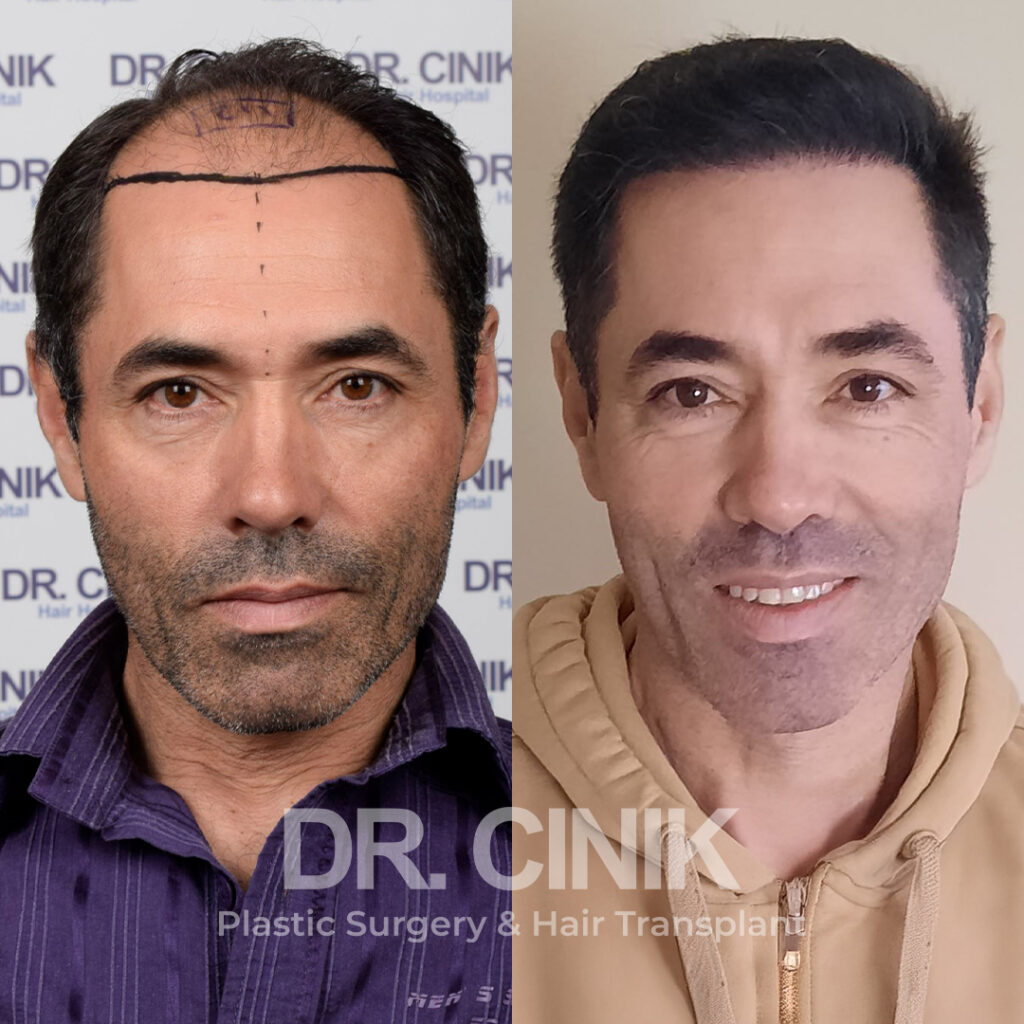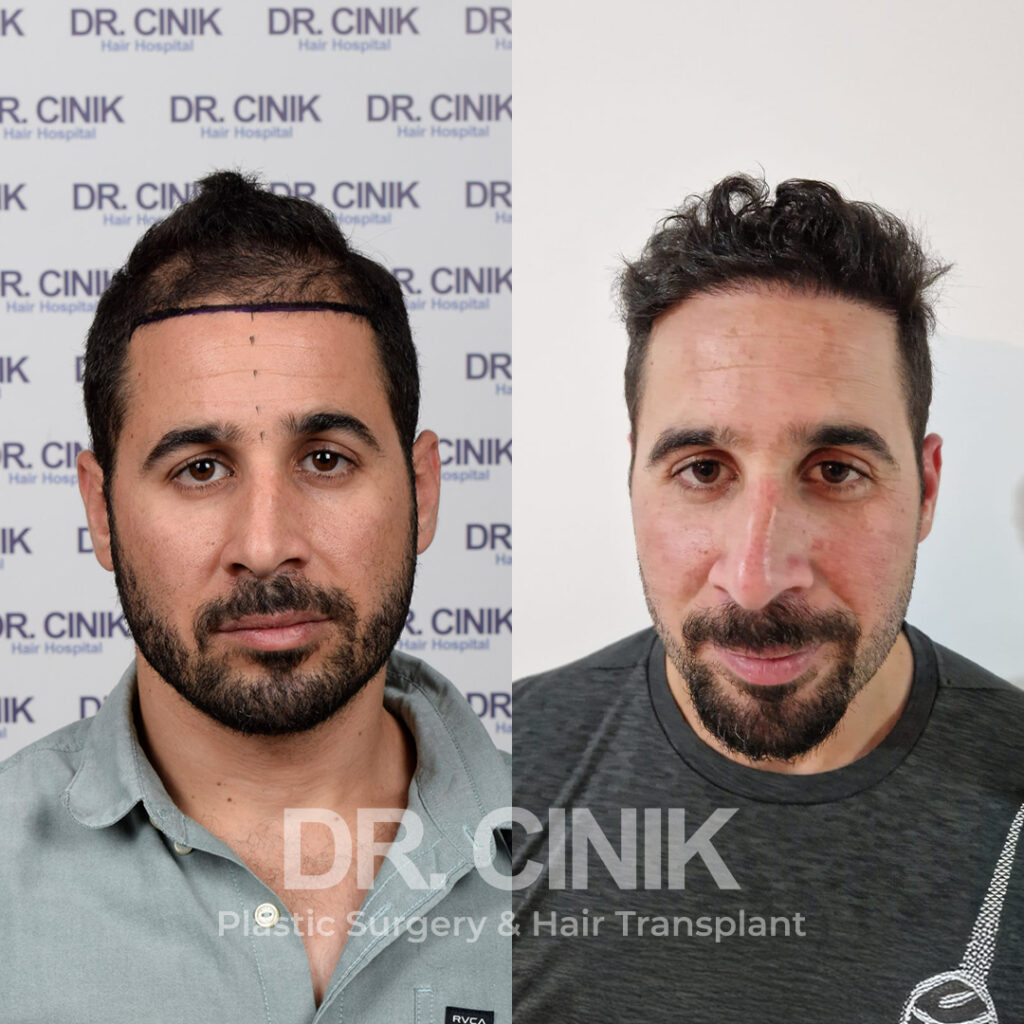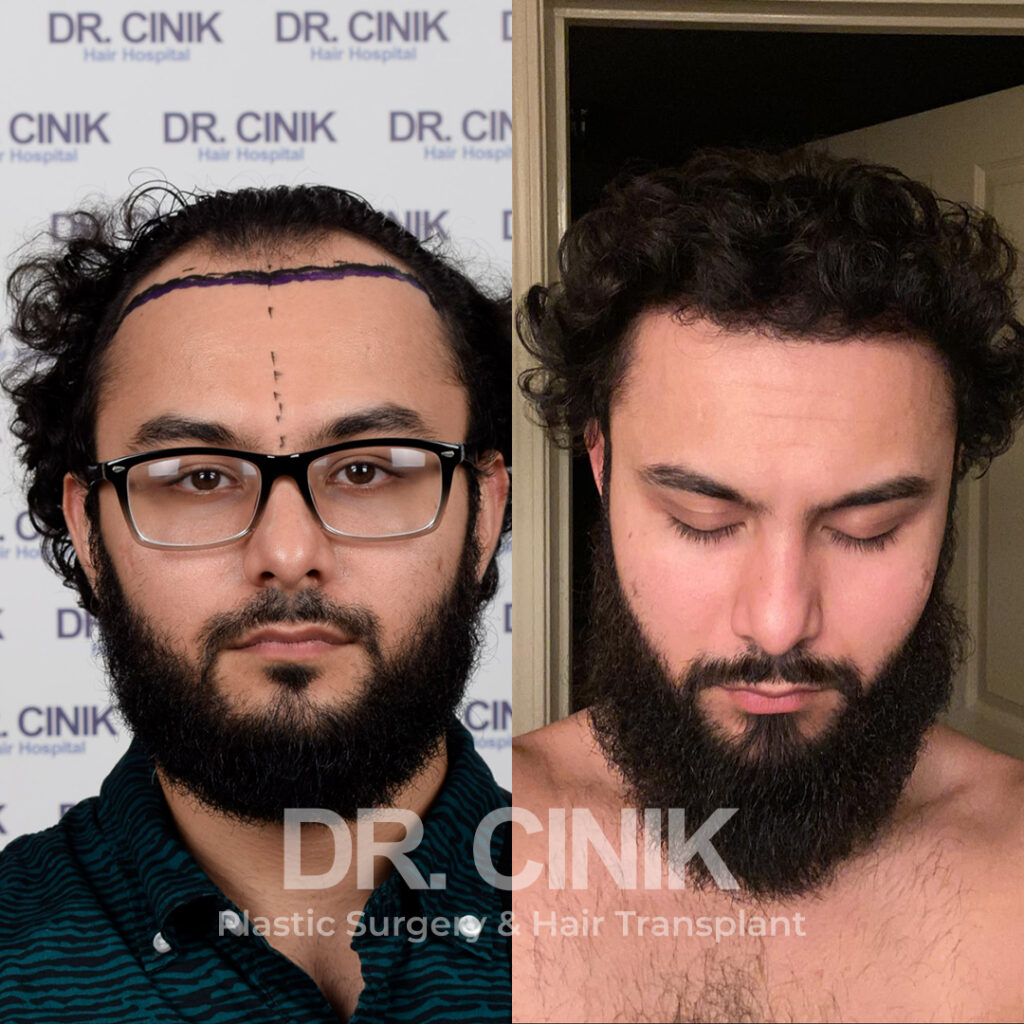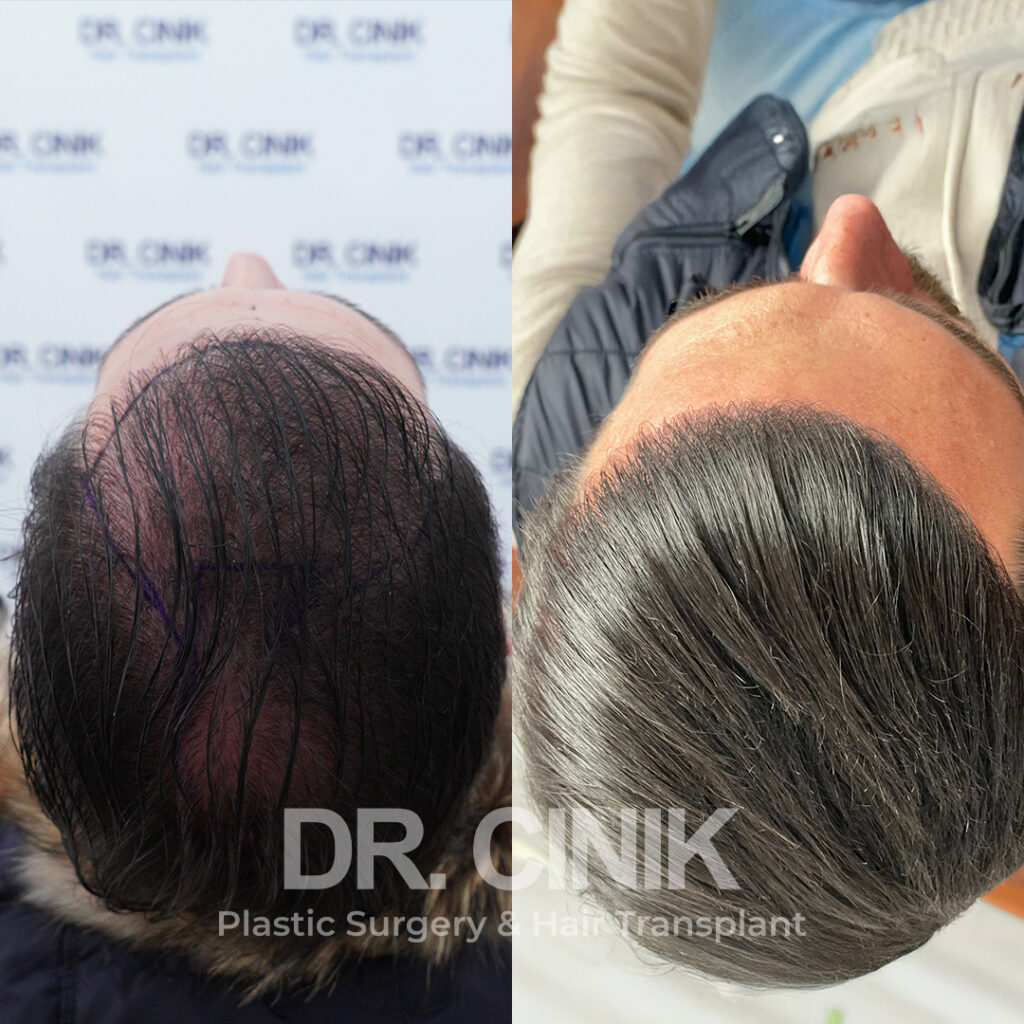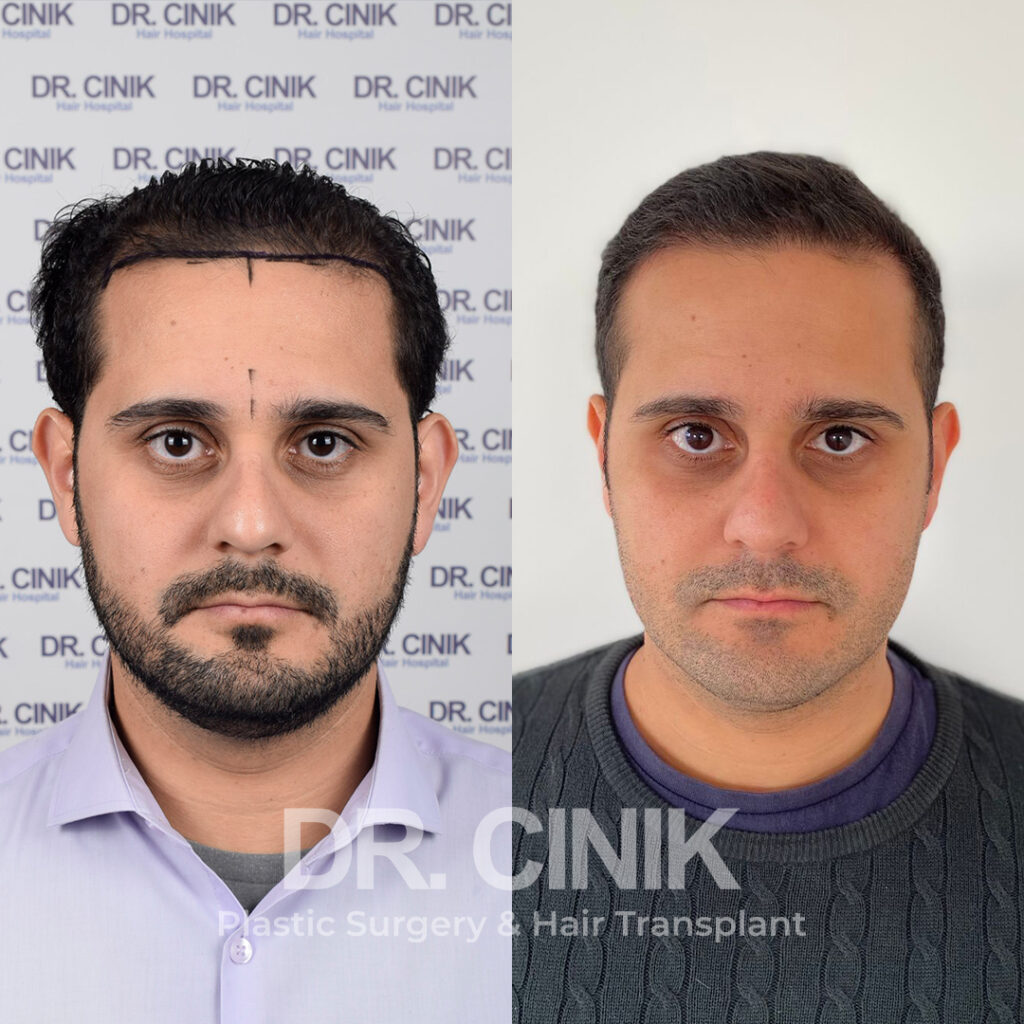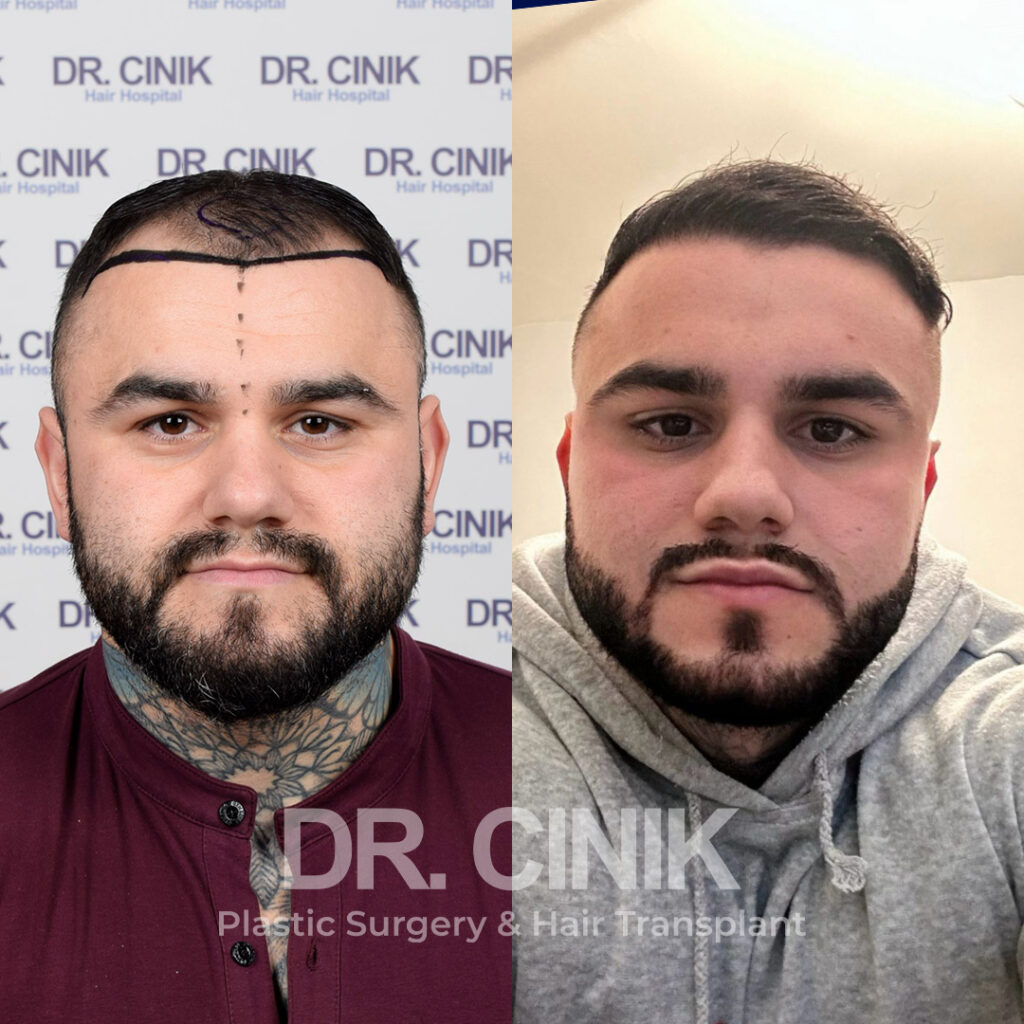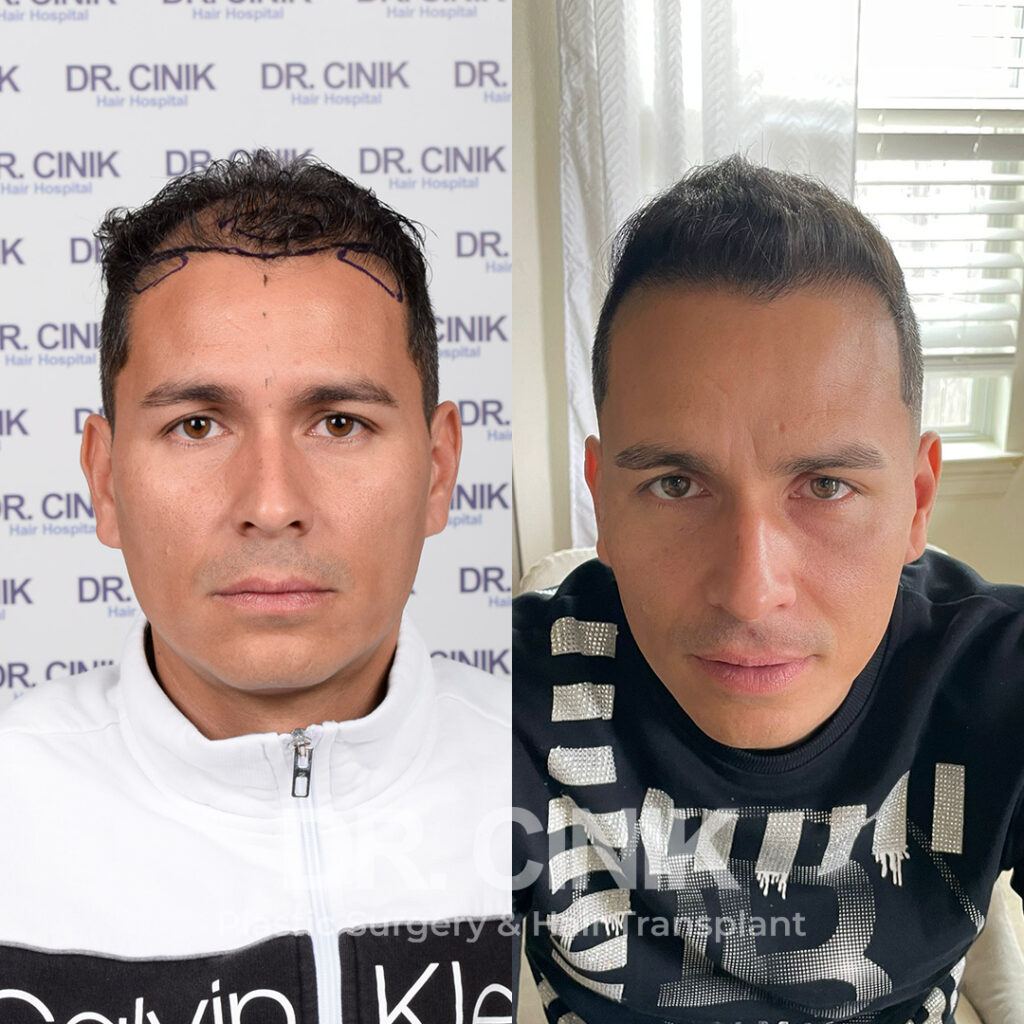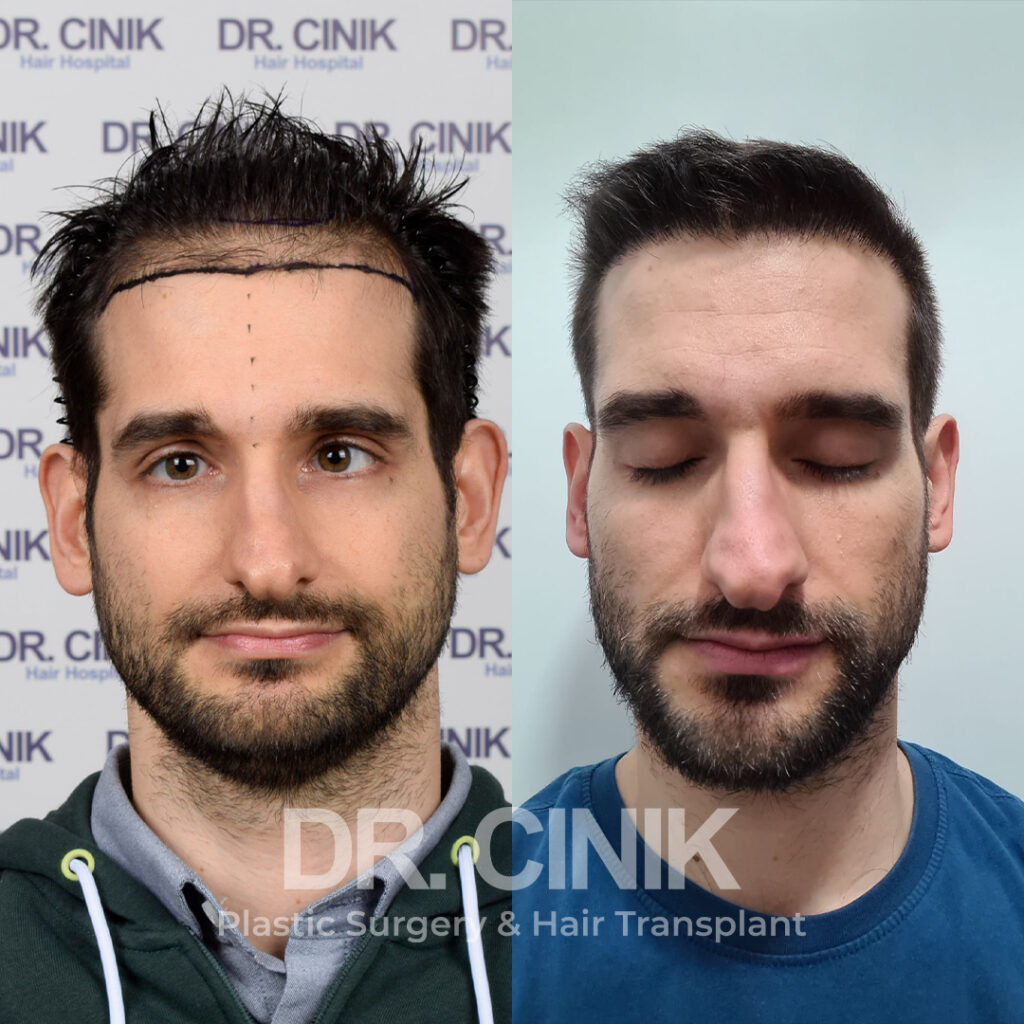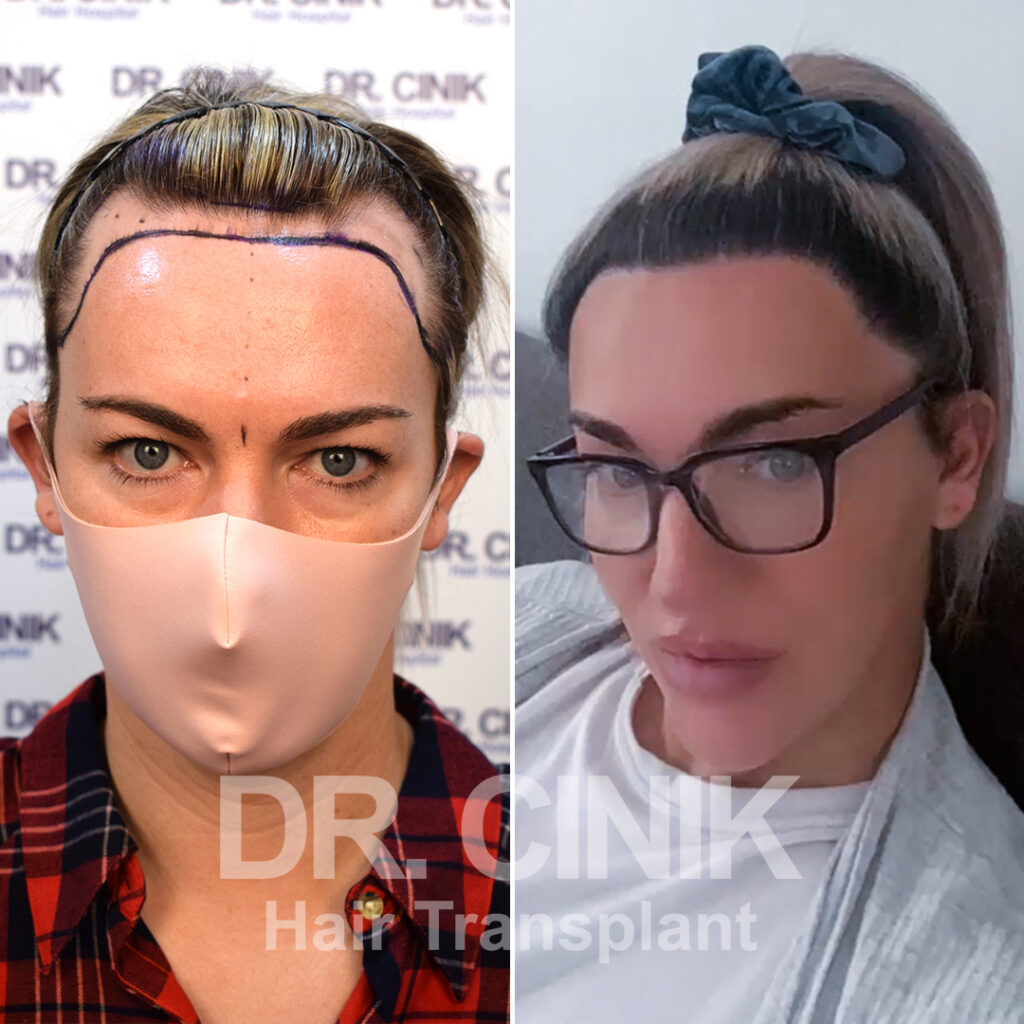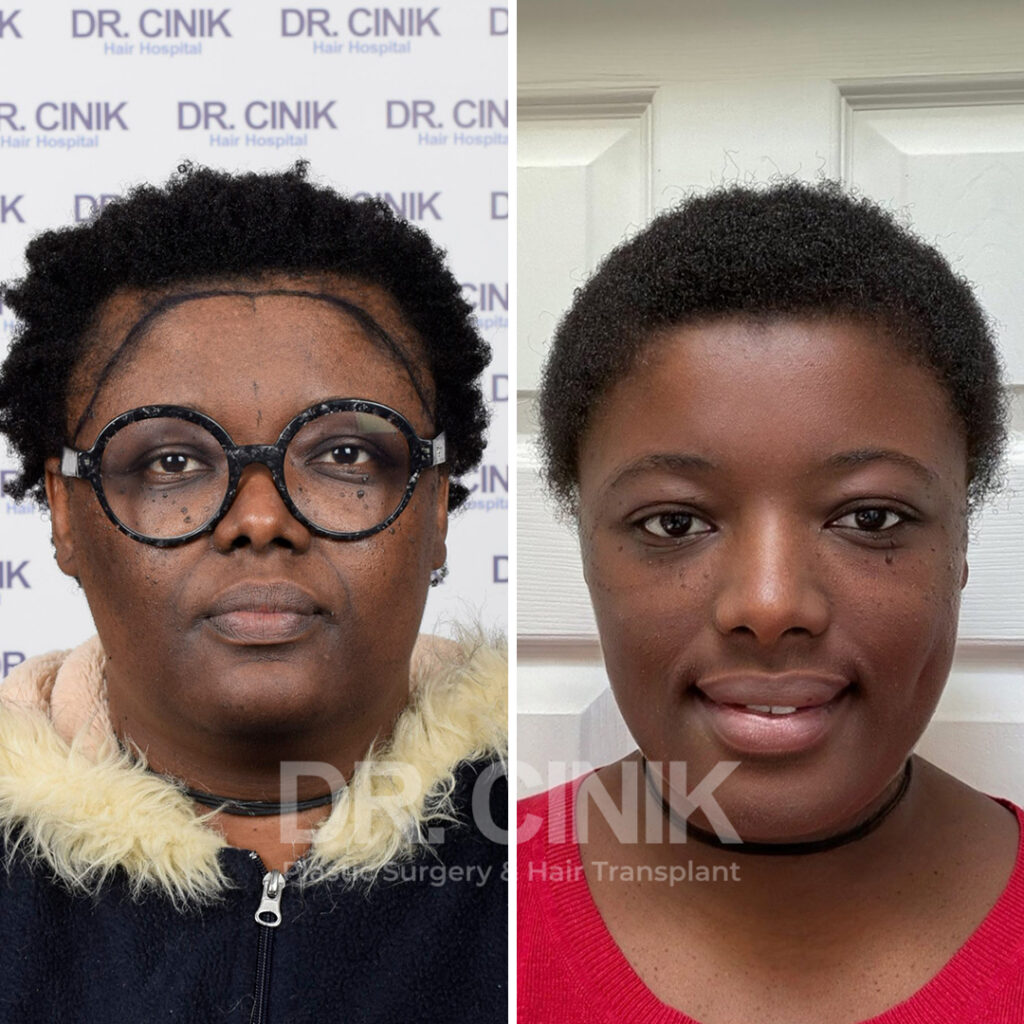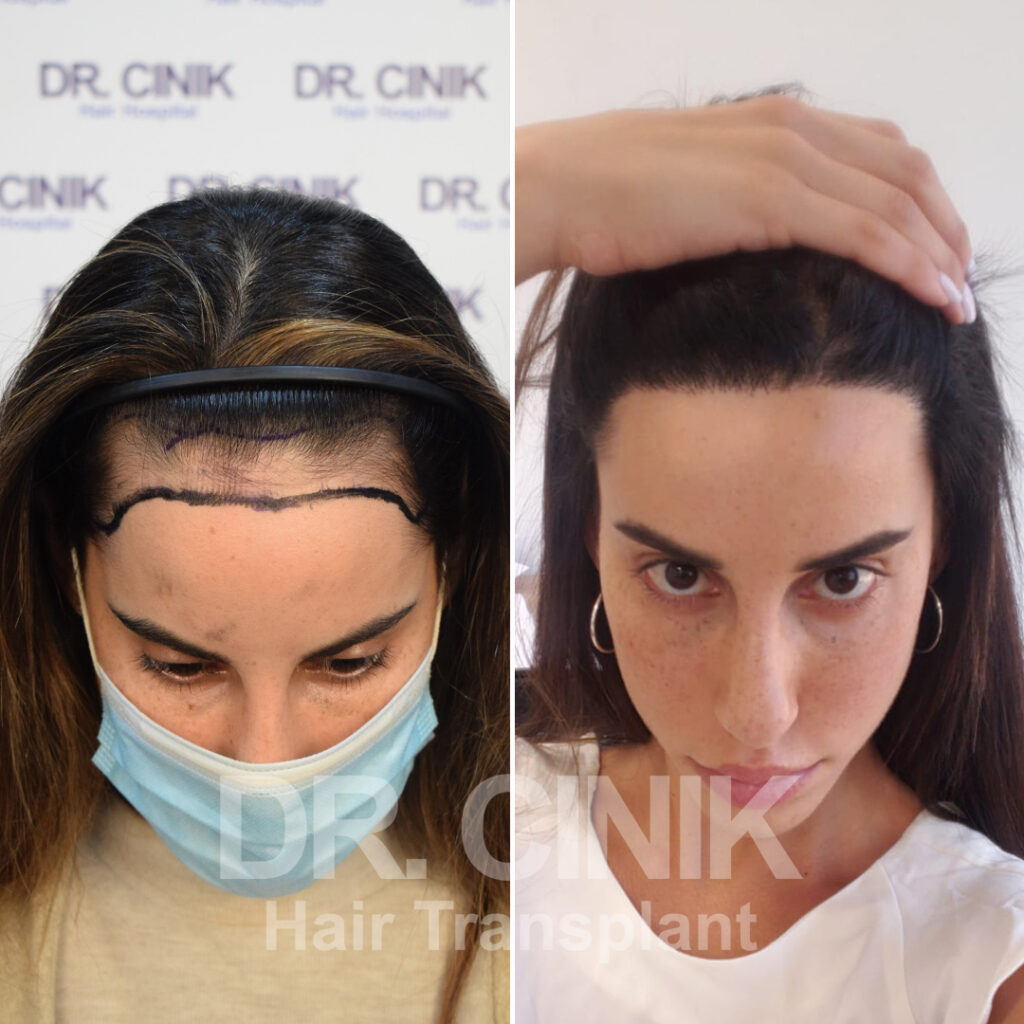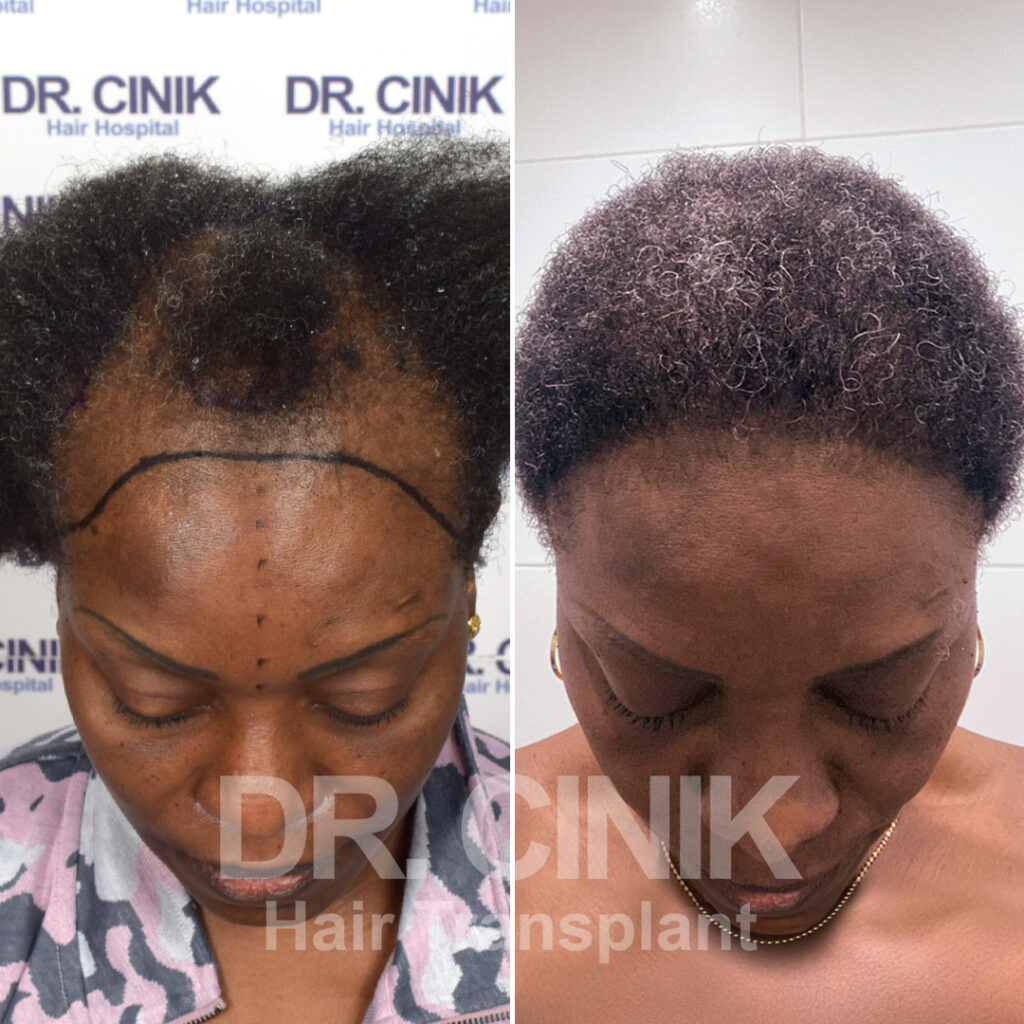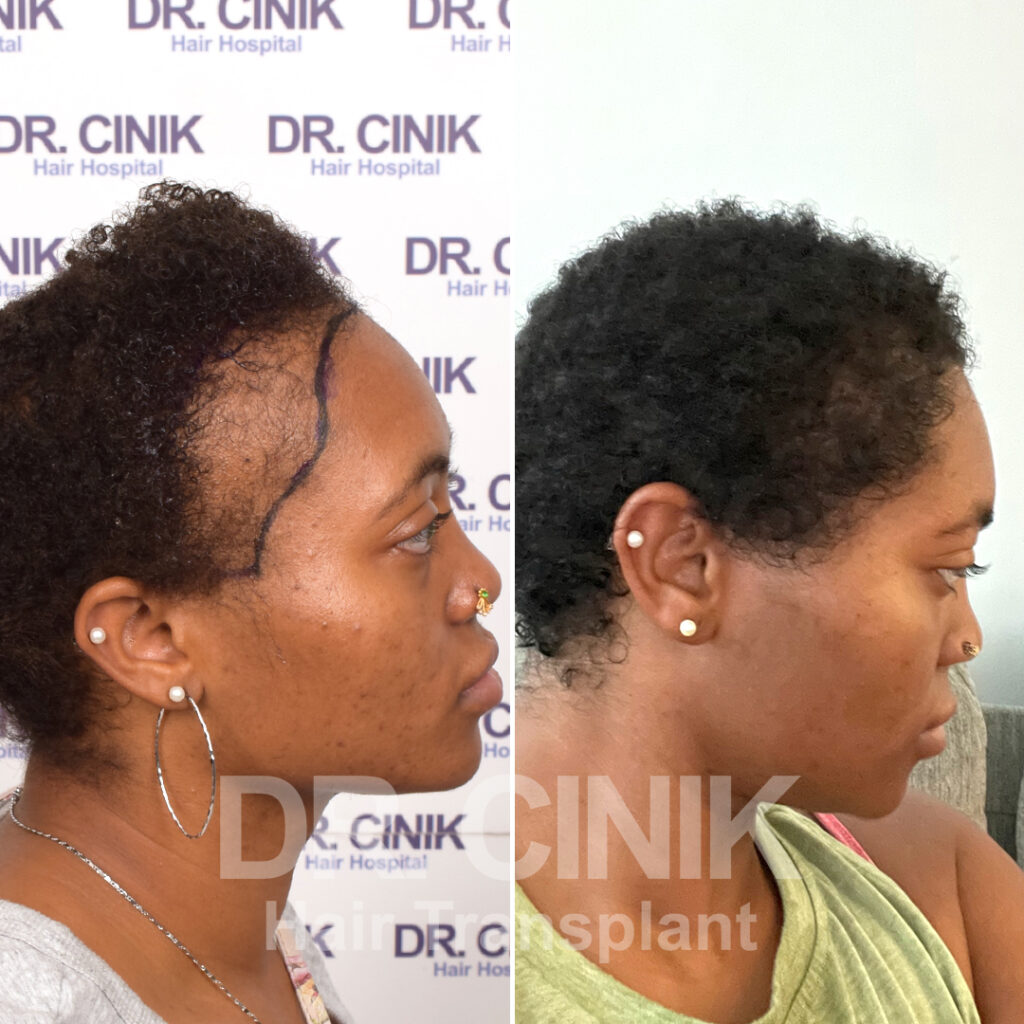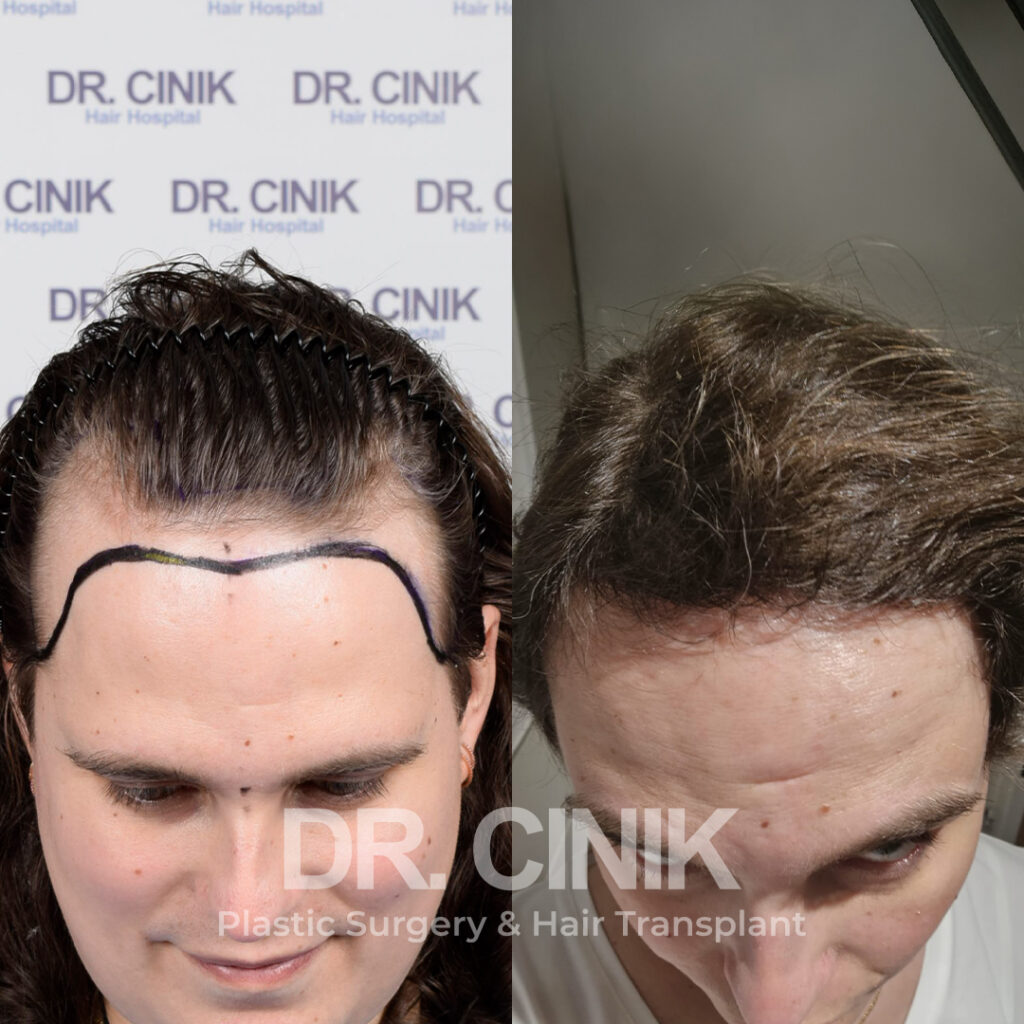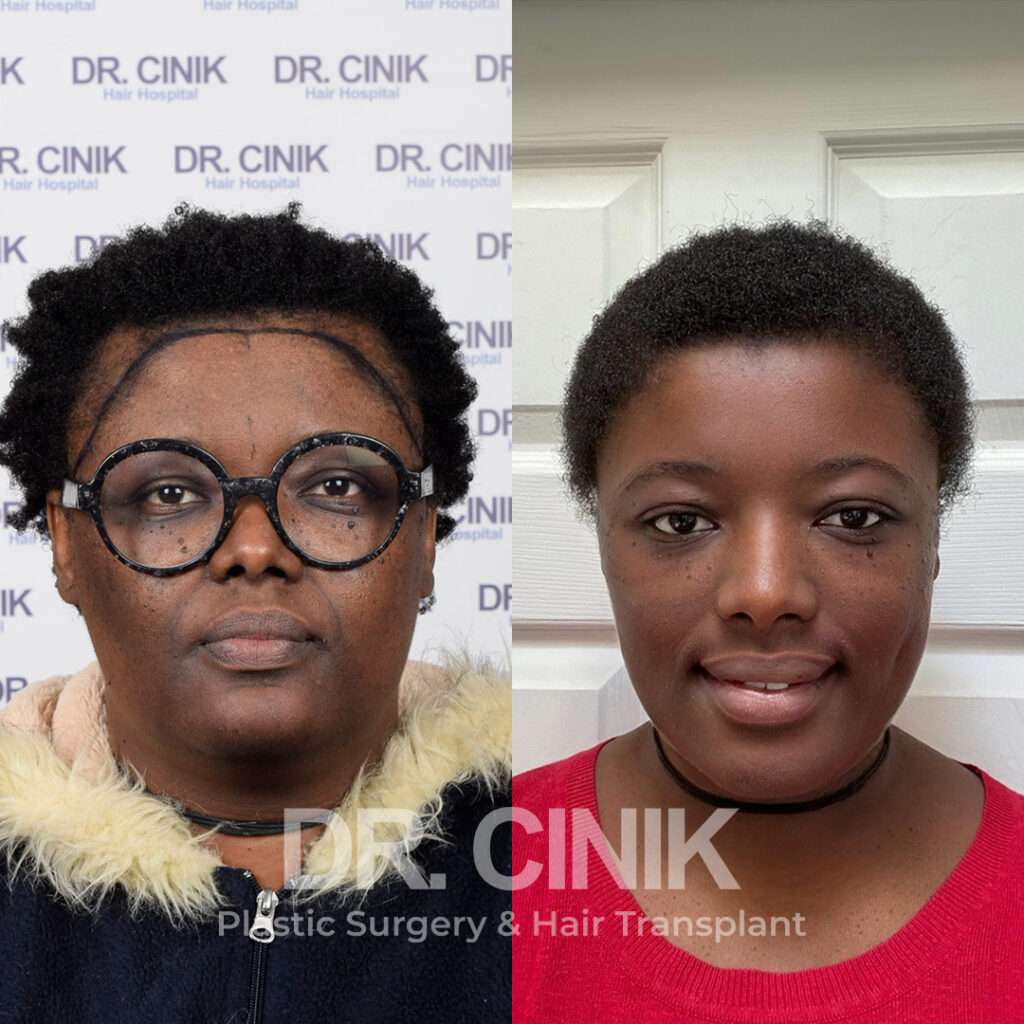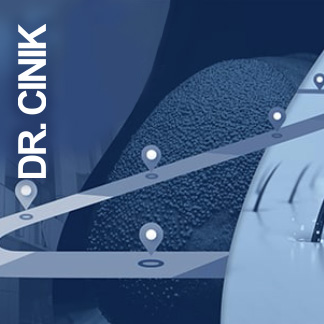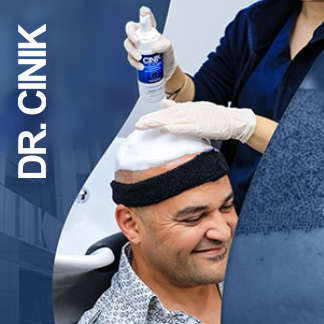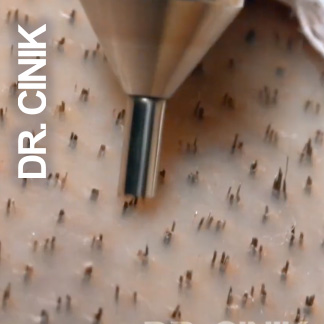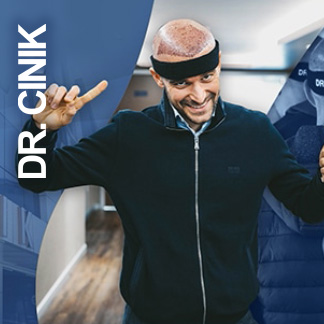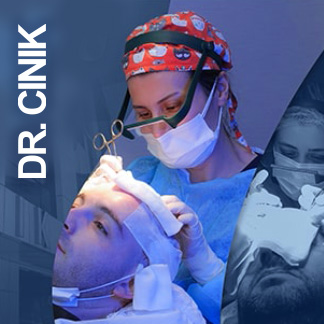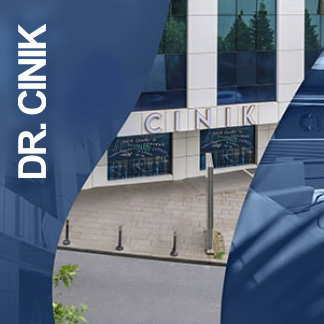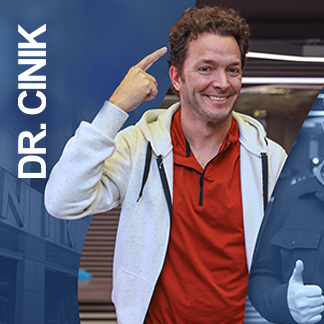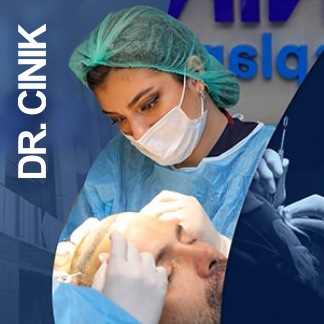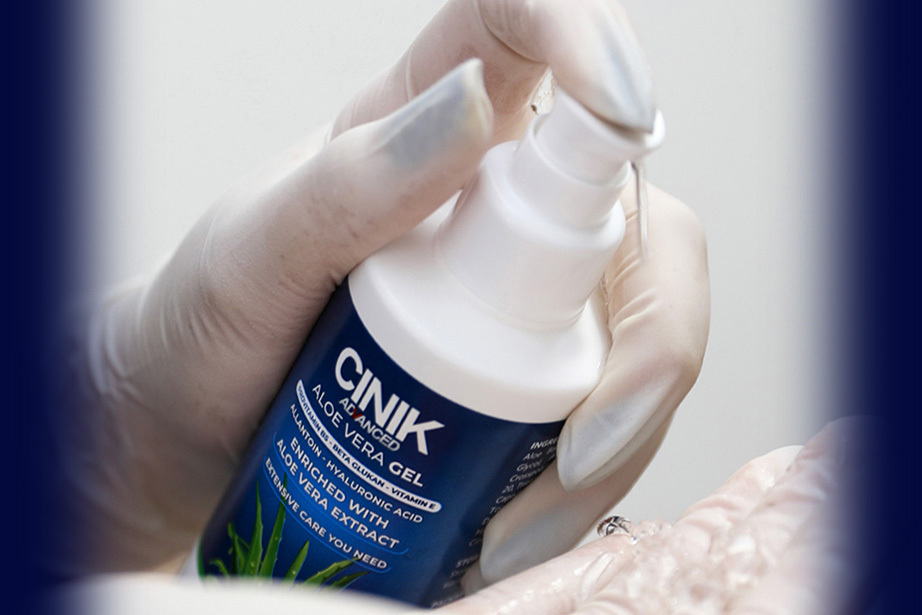
After a Hair Transplant: Your Complete Aftercare Guide
Our comprehensive recommendations to optimise your healing and ensure successful regrowth. Expert support for every stage of your hair transplant aftercare journey.
 ESSENTIAL AFTERCARE INSTRUCTIONS
ESSENTIAL AFTERCARE INSTRUCTIONS
HOW SHOULD I SLEEP AFTER A HAIR TRANSPLANT?
For the first 7 nights, your sleeping position will directly impact the success of your transplant. Try to maintain a semi-upright position at roughly 45° by propping 2-3 pillows behind your back and use a firm pillow to keep your head straight, preventing it from sinking into the bedding.
During this period, it’s absolutely crucial to avoid sleeping on your stomach or side, as any contact between the grafted area and your bedding could dislodge the newly implanted grafts. To improve your comfort whilst sleeping, a travel neck pillow (similar to those used on flights) works brilliantly.
HOW DO I WASH MY HAIR AFTER A TRANSPLANT?
Cleansing your scalp should begin the day after the procedure following a specific protocol. For the first 12 days, use only the special lotion provided by the clinic and follow your surgeon’s instructions precisely.
Apply the product extremely gently, without rubbing or scratching. Leave the foam on for the recommended time before rinsing with lukewarm water – never hot. Avoid direct, powerful shower spray – opt instead for a gentle flow or use a jug to pour the water carefully. Finish by patting gently with a clean towel, never rubbing the treated area.
WHAT ACTIVITIES SHOULD I AVOID AFTER HAIR TRANSPLANTATION?
Several activities should be strictly avoided to promote optimal healing:
- Intense physical activity: Put all sports on hold for at least 1 month after the procedure, as sweating and increased blood flow can compromise the anchoring of the grafts.
- Sexual relations: Best avoided for at least 10 days due to the increase in blood pressure and sweating they generate.
- Lengthy walks: Limit walking during the first week to prevent excessive sweating.
- Sun exposure: Off-limits for at least 1 month, as UV rays can damage fragile grafts and disrupt the natural healing process.
WHAT SUBSTANCES SHOULD I AVOID AFTER MY TRANSPLANT?
- Alcohol: Best avoided for at least 7 days as it causes dilation of blood vessels and increases the risk of bleeding.
- Coffee and caffeinated drinks: Avoid for at least 7 days to prevent excessive stimulation of blood circulation.
- Tobacco: Stop smoking completely for at least 7 days. Ideally, you should continue to abstain afterwards, as nicotine hampers tissue oxygenation and significantly slows down the healing process.
- Aspirin and anti-inflammatories: Steer clear of these for at least 7 days due to their blood-thinning properties, which increase the risk of post-operative bleeding.
WHEN CAN I SHAVE MY HAIR AFTER THE TRANSPLANT?
The recommended timings for shaving vary according to the areas concerned:
- Donor area: Wait at least 1 month before shaving this area. Even though it heals relatively quickly, a period of caution remains necessary.
- Recipient area: Wait at least 6 months before using a razor on this area, as the grafts must be fully established and the hair sufficiently mature to withstand this mechanical stress.
When you do start shaving again, use an electric trimmer rather than a manual razor to minimise the risk of irritation or follicular trauma.
 SIDE EFFECTS AFTER HAIR TRANSPLANTATION
SIDE EFFECTS AFTER HAIR TRANSPLANTATION
WHAT IS ‘SHOCK LOSS’ AND HOW CAN I MANAGE IT?
‘Shock loss’ (https://emrahcinik.com/shock-loss-after-a-hair-transplant/) refers to temporary hair loss occurring 2 to 8 weeks after the procedure. This physiological phenomenon mainly affects native hair located near the grafted area and results from trauma to the surrounding tissue during the operation.
Although worrying for many patients, this is a perfectly normal and temporary reaction. The follicles don’t suffer any permanent damage but simply enter a temporary resting phase before resuming their natural growth cycle.
To minimise its impact and speed up recovery:
- Strictly follow the post-operative care protocol
- Gently massage the scalp to stimulate local blood circulation
- Avoid any additional chemical or physical damage to your hair
- Be patient – normal regrowth will generally resume within 3-4 months
HOW DO I MANAGE POST-TRANSPLANT SCABBING?
The scabs that appear from the second day after the operation are part of the normal healing process. It’s essential that you never try to remove them manually, as you may dislodge the grafts, which remain quite fragile during the integration phase.
These protective formations will detach naturally between the 7th and 10th day if you follow the recommended washing protocol precisely. To facilitate their natural removal:
- Apply the specific cleansing lotion and follow the recommended application time
- Rinse with lukewarm water
- Use your fingertips (never your nails) to make gentle circular movements
- Moisturise your scalp with products specifically recommended by your surgeon
HOW CAN I REDUCE FACIAL SWELLING?
Facial swelling is a common inflammatory reaction after a hair transplant, particularly around the forehead and eye areas. It usually appears between the 2nd and 3rd day and can persist for up to a week.
To effectively reduce this inflammation:
- Maintain a semi-upright sleeping position (45°) during the first week
- Apply cold compresses to the forehead and temples, carefully avoiding the grafted area
- Limit movements that involve bending forward
- Reduce your salt intake to limit water retention
- Drink plenty of fluids to help flush out excess fluids
- Take the anti-inflammatory medication prescribed by your surgeon as directed
HOW CAN I RELIEVE ITCHING OF THE SCALP?
Itching generally occurs between the 5th and 15th day post-operation and is part of the normal healing process. Despite the discomfort it causes, it’s absolutely essential never to scratch the treated area.
To naturally relieve these uncomfortable sensations:
- Use the specific soothing sprays provided by the clinic
- Apply the recommended moisturising serum after each cleaning session
- Keep your environment at a moderate temperature to limit perspiration
- Avoid any activity that causes excessive sweating
- If recommended, apply pure aloe vera gel for its soothing properties
- Use prescribed antihistamines if itching becomes particularly intense
WHAT SHOULD I DO IF I DEVELOP AN INFECTION AFTER HAIR TRANSPLANTATION?
Infectious complications are rare after a properly performed hair transplant but remain possible. Warning signs include: intense and progressive redness, unusual warmth to the touch, worsening pain, pus, fever or generally feeling unwell.
If you suspect an infection:
- Contact your surgeon or the medical team that treated you without delay
- Avoid applying any non-prescribed products to the affected area
- Take clear photographs of the area for medical documentation
- Don’t self-medicate with antibiotics that haven’t been specifically prescribed
- Follow the medical treatment prescribed to the letter, completing the full course
WHAT ARE WHITE SPOTS/MILIA AND HOW ARE THEY TREATED?
Milia, commonly known as ‘whiteheads’, can appear 1 to 2 months after the procedure. These small whitish or yellowish spots result from keratin accumulating around the follicles in the growth phase.
Although visually concerning, they are generally harmless and temporary. To manage them effectively:
- Absolutely avoid any attempt at squeezing or piercing them
- Maintain excellent hygiene of your scalp
- Use only the specific cleansing products recommended by your surgeon
- Apply gentle exfoliating lotions specially adapted for this situation if prescribed
- Consult your practitioner if these formations persist beyond 3 months without improvement
 FREQUENTLY ASKED QUESTIONS ABOUT GROWTH AND LONG-TERM HAIR TRANSPLANT AFTERCARE
FREQUENTLY ASKED QUESTIONS ABOUT GROWTH AND LONG-TERM HAIR TRANSPLANT AFTERCARE
WHEN WILL MY TRANSPLANTED HAIR BEGIN TO GROW?
The regrowth process follows a relatively predictable timeline:
- 1-2 weeks: Natural shedding of the transplanted hair (normal and expected phenomenon)
- 2-3 months: Emergence of the first fine, downy hairs
- 4-6 months: Gradual increase in density and thickness
- 6-9 months: Noticeable improvement in hair density (60-70% of final result)
- 12-15 months: Final result with optimal density and texture
Each patient experiences individual variations in this timeline, influenced by personal factors such as age, the intrinsic quality of the follicles and metabolic profile. Patience is key to success, complemented by monthly photographic documentation of your progress.
WILL MY DONOR AREA GROW BACK?
The hair taken from the donor area will not grow back. However, the sophisticated extraction technique used by Dr Cinik preserves the natural appearance of this region.
The hair is removed in a sparse and strategic distribution, allowing the adjacent hair to naturally cover the tiny extraction scars. When expertly performed, the extraction maintains a reduction in density that’s imperceptible to the naked eye in the donor area, even with a short haircut.
CAN I CONTINUE TAKING FINASTERIDE AFTER A HAIR TRANSPLANT?
Finasteride can and generally should be continued after a hair transplant if you were already using it before the procedure. This medical treatment helps to:
- Protect your remaining native hair against the progression of androgenetic alopecia
- Preserve the overall density of your hair
- Maintain the aesthetic harmony between transplanted and native hair
- Potentially reduce the need for future additional procedures
The transplanted hair itself, which is genetically resistant to the action of (DHT), will continue to grow even without finasteride. However, stopping treatment could accelerate the loss of non-transplanted native hair in areas susceptible to baldness.
Always consult your doctor before deciding to continue, stop or change your finasteride treatment.
IS IT POSSIBLE OR NECESSARY TO HAVE A SECOND HAIR TRANSPLANT?
A follow-up procedure may be considered in several scenarios:
- To increase the hair density achieved during the first procedure
- To treat new areas that have become bald with the natural progression of hair loss
- To optimise or refine the results of a partially satisfactory first transplant
If a second transplant is indicated, a minimum period of 12 months after the first procedure is generally recommended. This period allows for:
- Accurate evaluation of the final results of the first procedure
- Ensuring complete regeneration of the donor area
- Strategic planning of the prioritisation of the areas to be treated
Dr Cinik evaluates each situation individually, taking into consideration the evolution of your hair loss pattern and the availability of grafts in your donor reserve.
IS IT ADVISABLE TO FOLLOW A SPECIFIC DIET TO IMPROVE REGROWTH?
A balanced diet plays a significant role in optimising the regrowth process. In particular, prioritise:
- Quality proteins: Fundamental components of keratin, the main hair protein (eggs, fish, lean meats, pulses)
- Iron-rich foods: Essential for optimal oxygenation of follicular tissue (red meat, green vegetables, lentils)
- Zinc sources: Actively supports cell division necessary for hair growth (seafood, pumpkin seeds, nuts)
- B vitamins: Promotes blood circulation to the scalp (whole grains, green vegetables, nutritional yeast)
- Natural antioxidants: Protect follicles against cellular oxidative stress (berries, brightly coloured vegetables, green tea)
- Omega-3 fatty acids: Reduce tissue inflammation and maintain scalp hydration (oily fish, flaxseed, walnuts)
Try to limit ultra-processed foods, refined sugars and alcohol, which promote inflammation and can hamper the natural healing process.
WHAT SUPPLEMENTS ARE RECOMMENDED AFTER A HAIR TRANSPLANT?
Some nutritional supplements can effectively support hair health and optimise the quality of regrowth:
- Biotin (vitamin B7): Promotes keratin synthesis and strengthens the structural architecture of the hair
- B vitamin complex: Supports the cellular energy metabolism of the follicles
- Zinc and selenium: Essential minerals involved in the hair growth cycle
- MSM (methylsulfonylmethane): Improves the biochemical properties of keratin
- Organic silica: Strengthens the structural matrix of growing hair
- Sulphur-containing amino acids: Essential building blocks of keratin (L-cysteine, L-methionine)
- Saw palmetto extract: May help to naturally inhibit the action of DHT on sensitive native hair
It’s essential that you consult your doctor before starting any supplementation, as some supplements may interact with medications or prove unsuitable for your specific clinical profile.

Our team of experts analyses your situation and offers a bespoke solution.
BEFORE AND AFTER
Natural and lasting results validated by our patients
OUR VIDEOS
Optimise your recovery and results after a hair transplant
The weeks following your hair transplant play a decisive role in the long-term success of your procedure. Every precaution and bit of care you take contributes directly to the quality and durability of your final results.
The importance of the post-operative headband
During the first 48 hours after the operation, it’s essential to wear the therapeutic headband provided by the clinic. This medical device serves several important functions:
- It provides effective protection for the recently harvested donor area
- It prevents or significantly limits frontal swelling thanks to its moderate compression
- It absorbs potential post-surgical fluid
- It maintains controlled pressure which helps to prevent minor bleeding
This bandage should be worn continuously for at least 2 full days, carefully repositioning it after each cleaning session.
The fundamental principles of successful hair transplant aftercare
To maximise your chances of achieving optimal results, certain essential principles should guide your behaviour throughout the post-operative period:
- Patience and diligence: Complete regrowth takes time (12-15 months). Follow all recommendations meticulously, even if some seem rather restrictive.
- Handle with extreme care: During the first few days, the grafts are held in place only by a particularly delicate fibrin network. The slightest trauma can compromise their integration.
- Impeccable hygiene: Keeping the area clean is crucial for preventing any infections, whilst respecting the sensitivity of the operated areas.
- Close monitoring of your progress: Document your journey with regular photographs and never hesitate to contact the medical team if you have any concerns whatsoever.
By adhering to these fundamental principles and scrupulously following your surgeon’s personalised recommendations, you’ll significantly improve your chances of achieving the best possible aesthetic results from your hair transplant.
